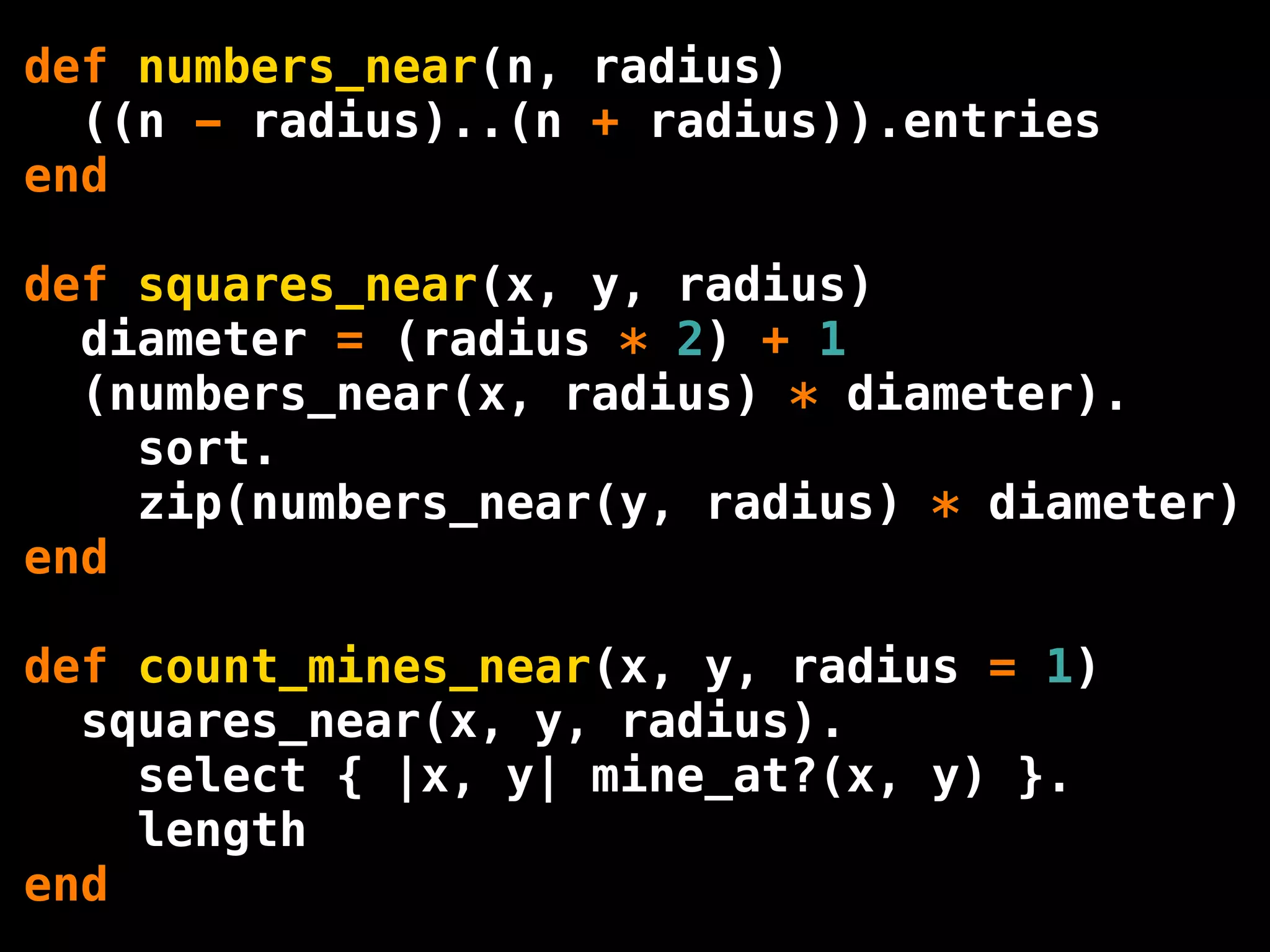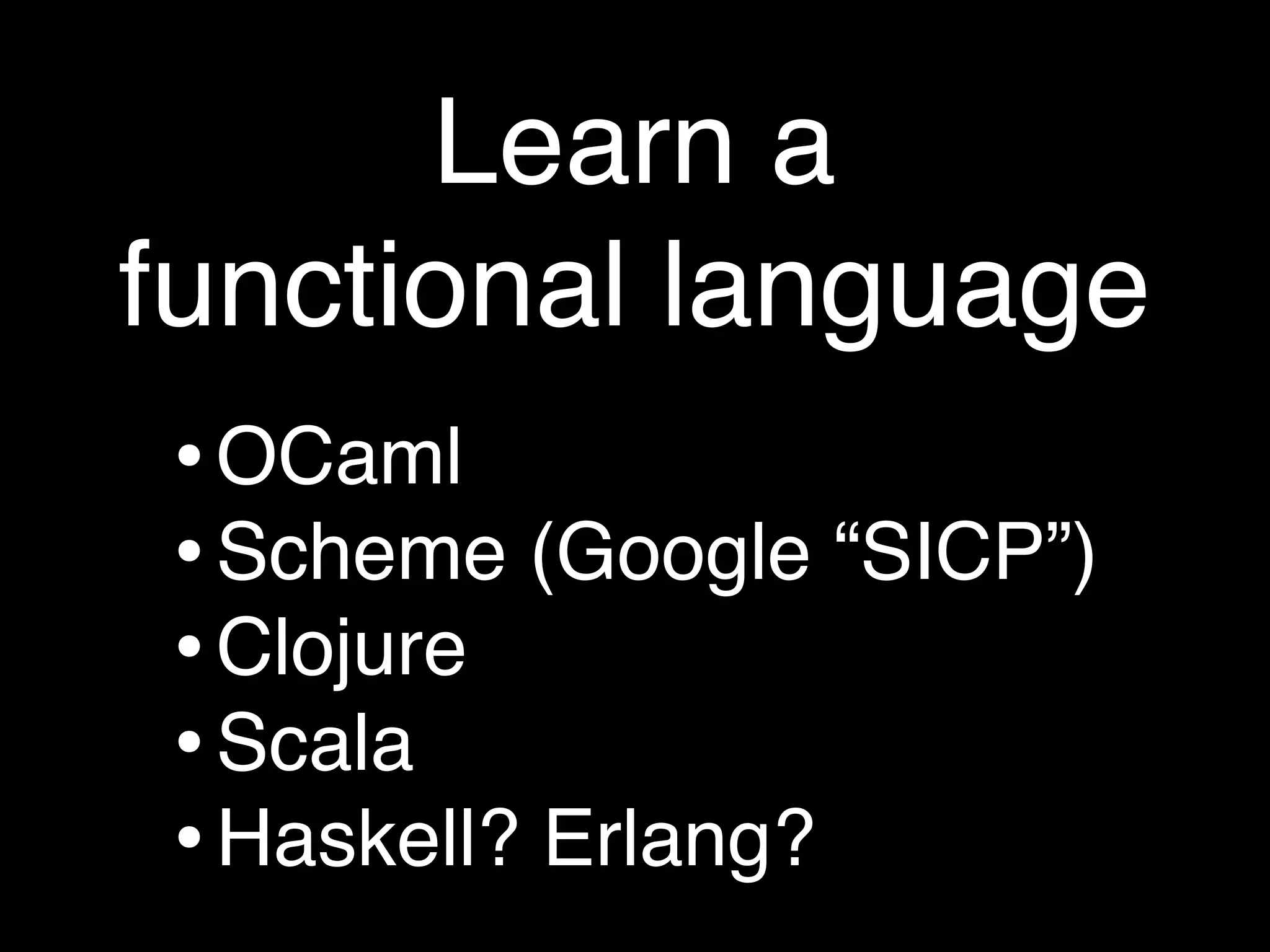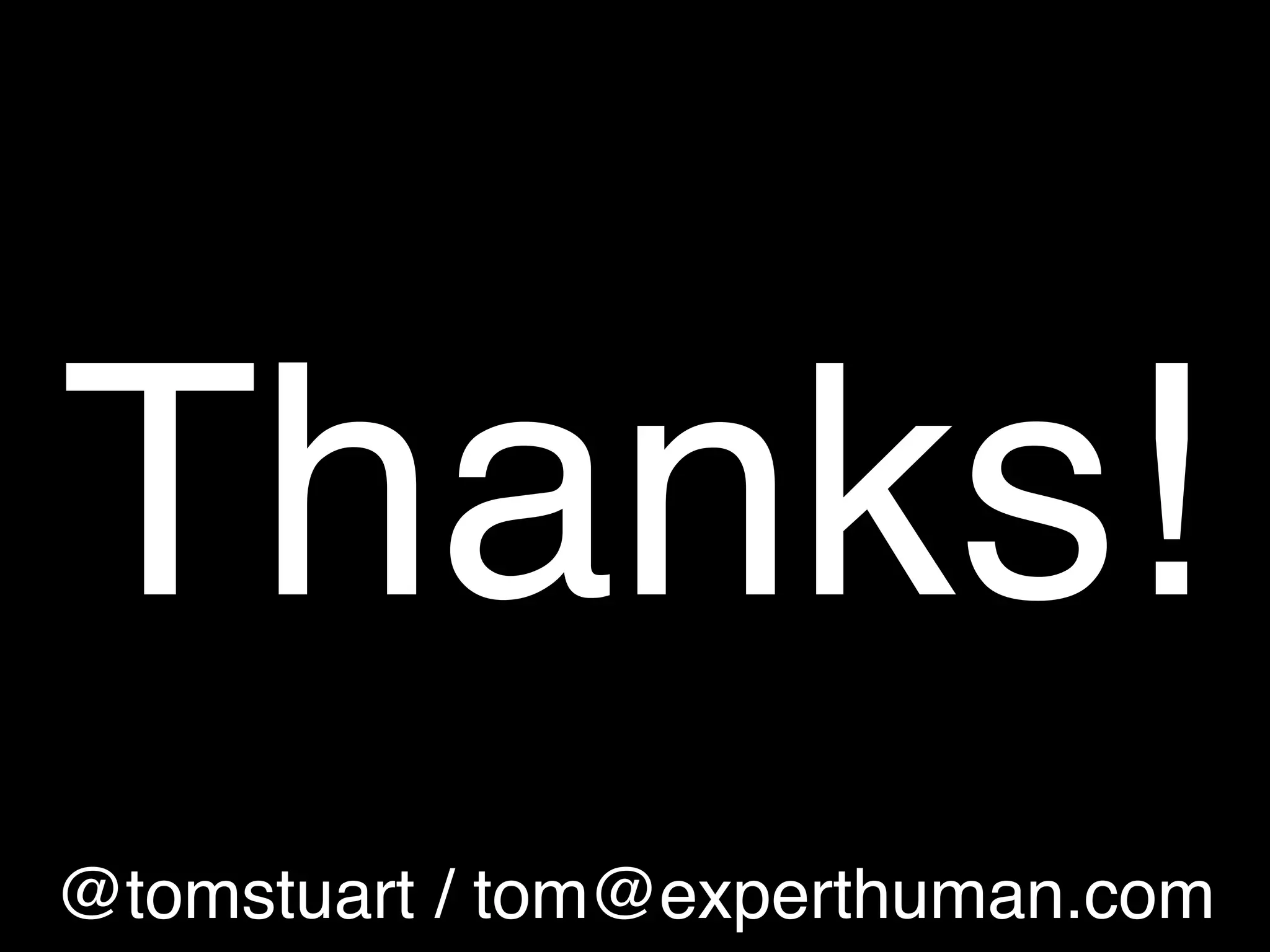The document discusses functional programming concepts in Ruby. It begins by stating that functional programming and Enumerable methods can be useful in Ruby. It then provides examples of various Enumerable methods like zip, select, partition, map, and inject. It encourages thinking functionally by avoiding side effects, mutating values, and using functional parts of the standard library. The document concludes by suggesting learning a true functional language to further improve functional programming skills.

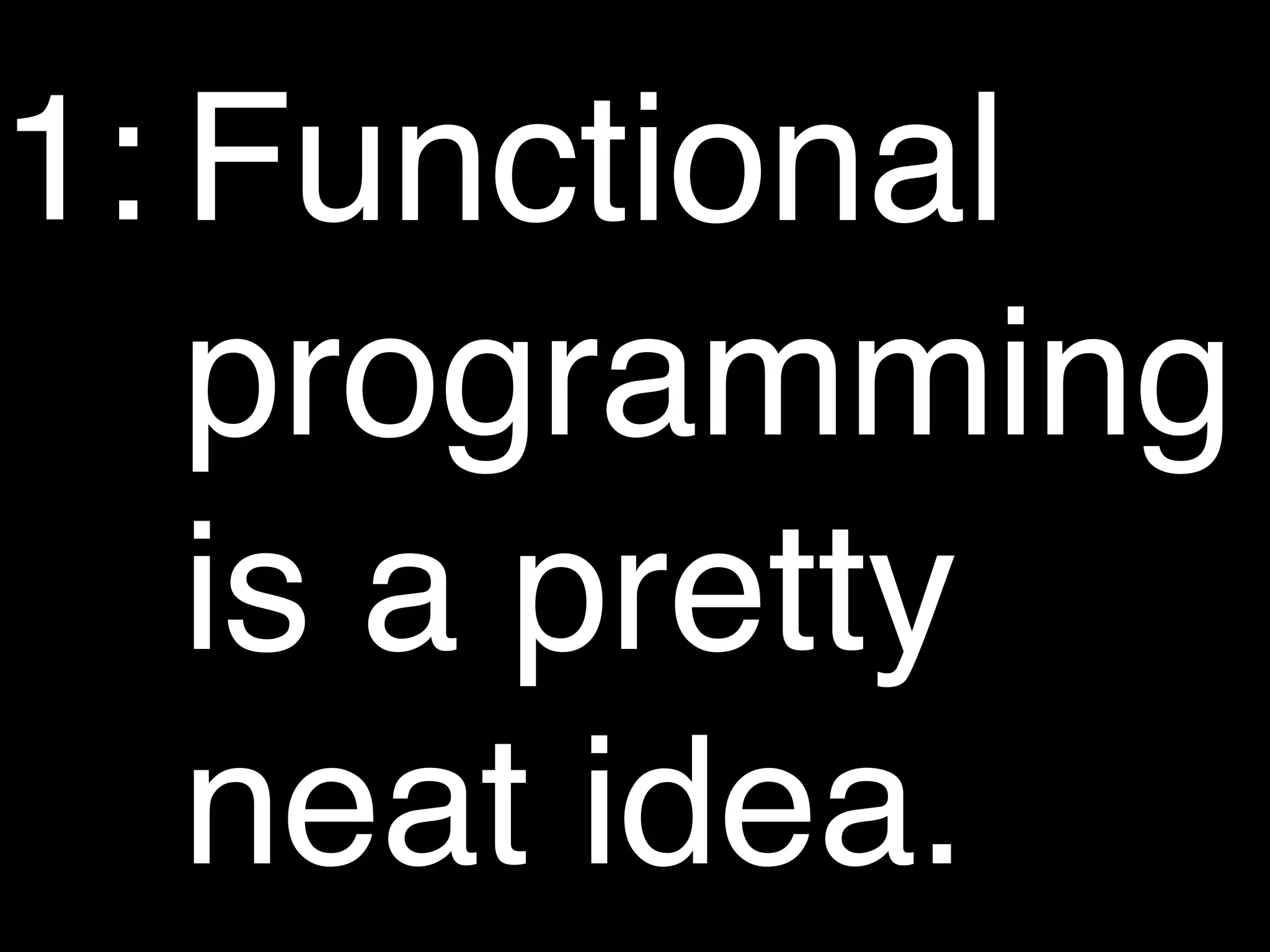
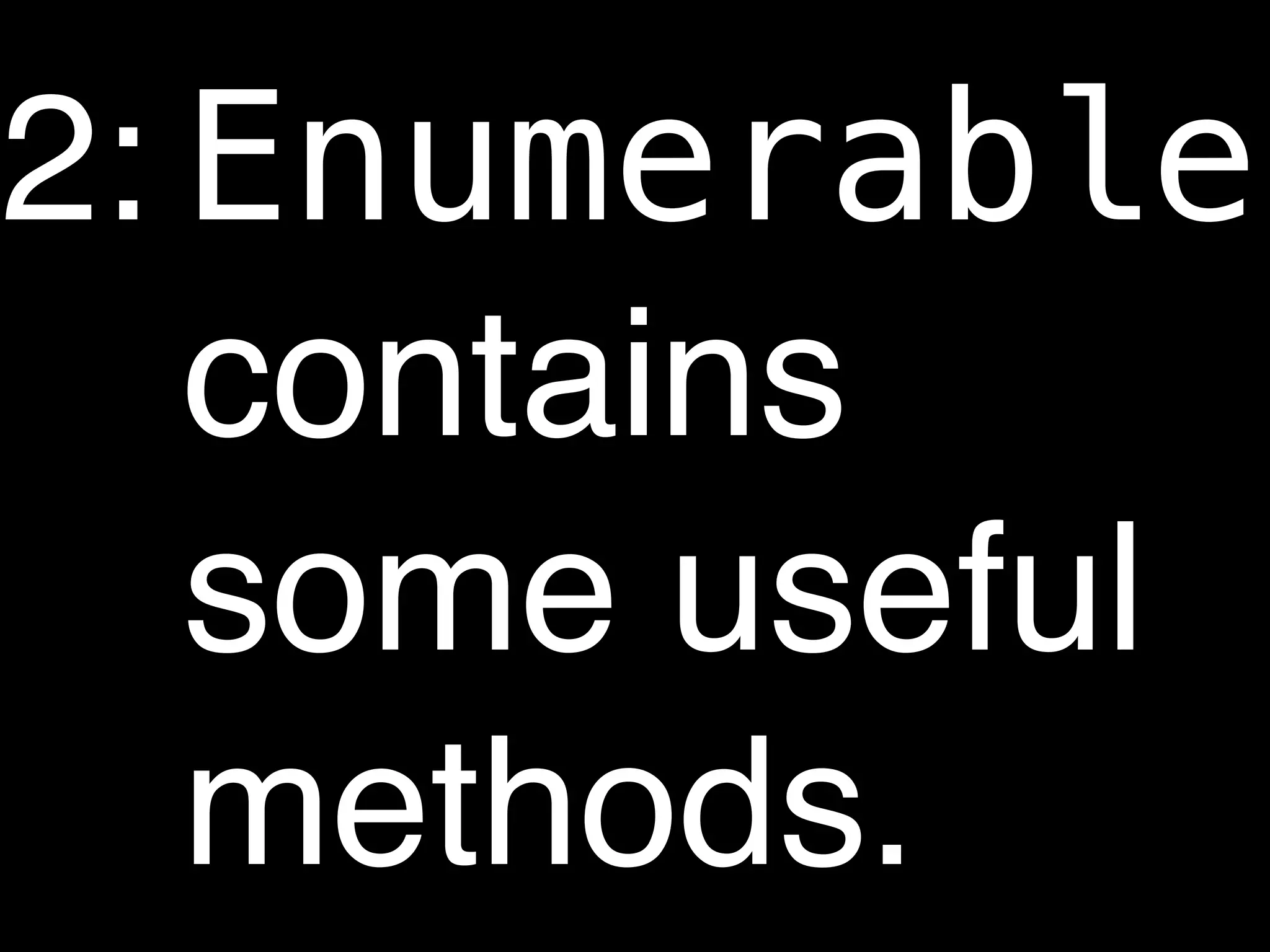

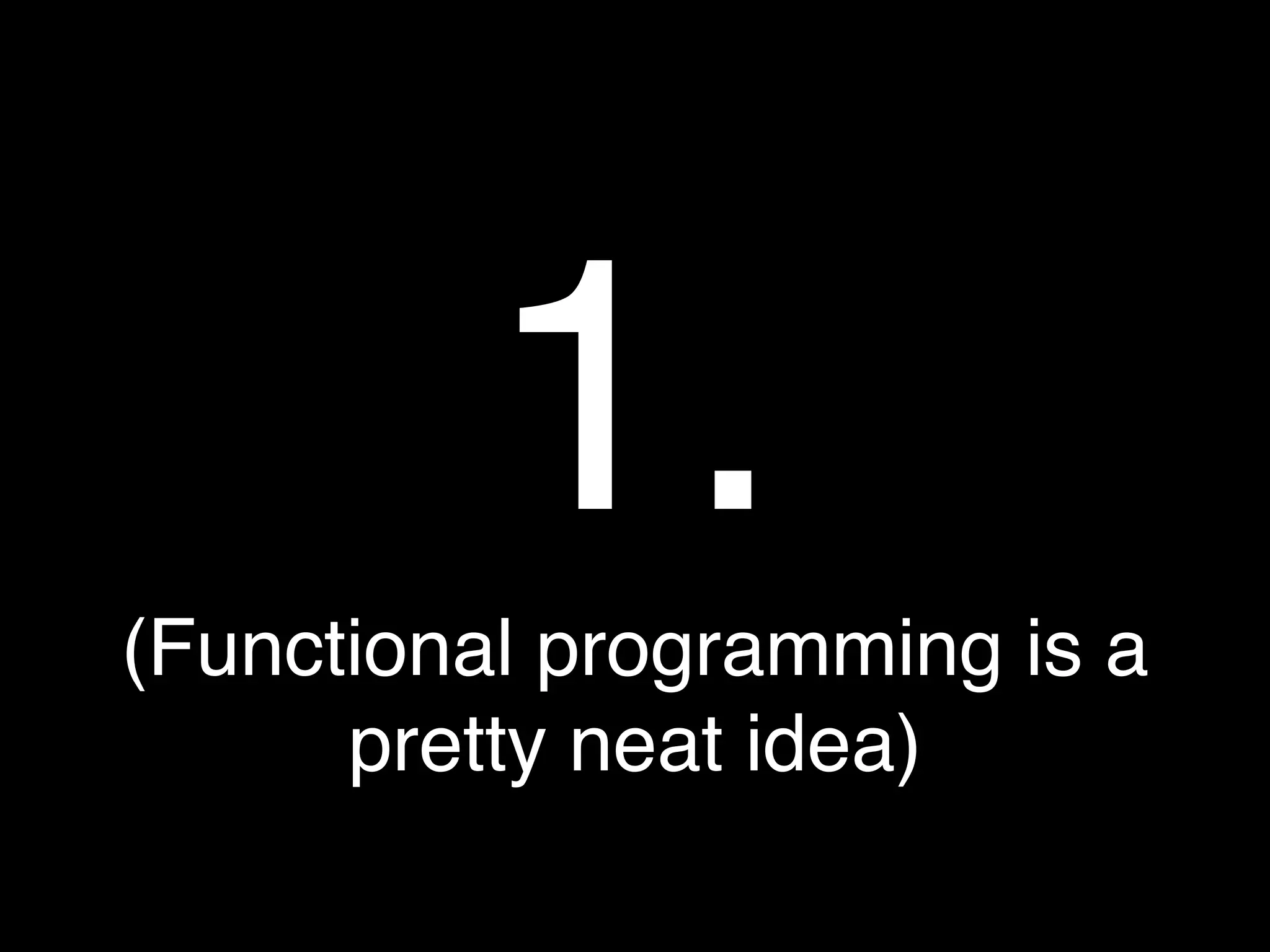
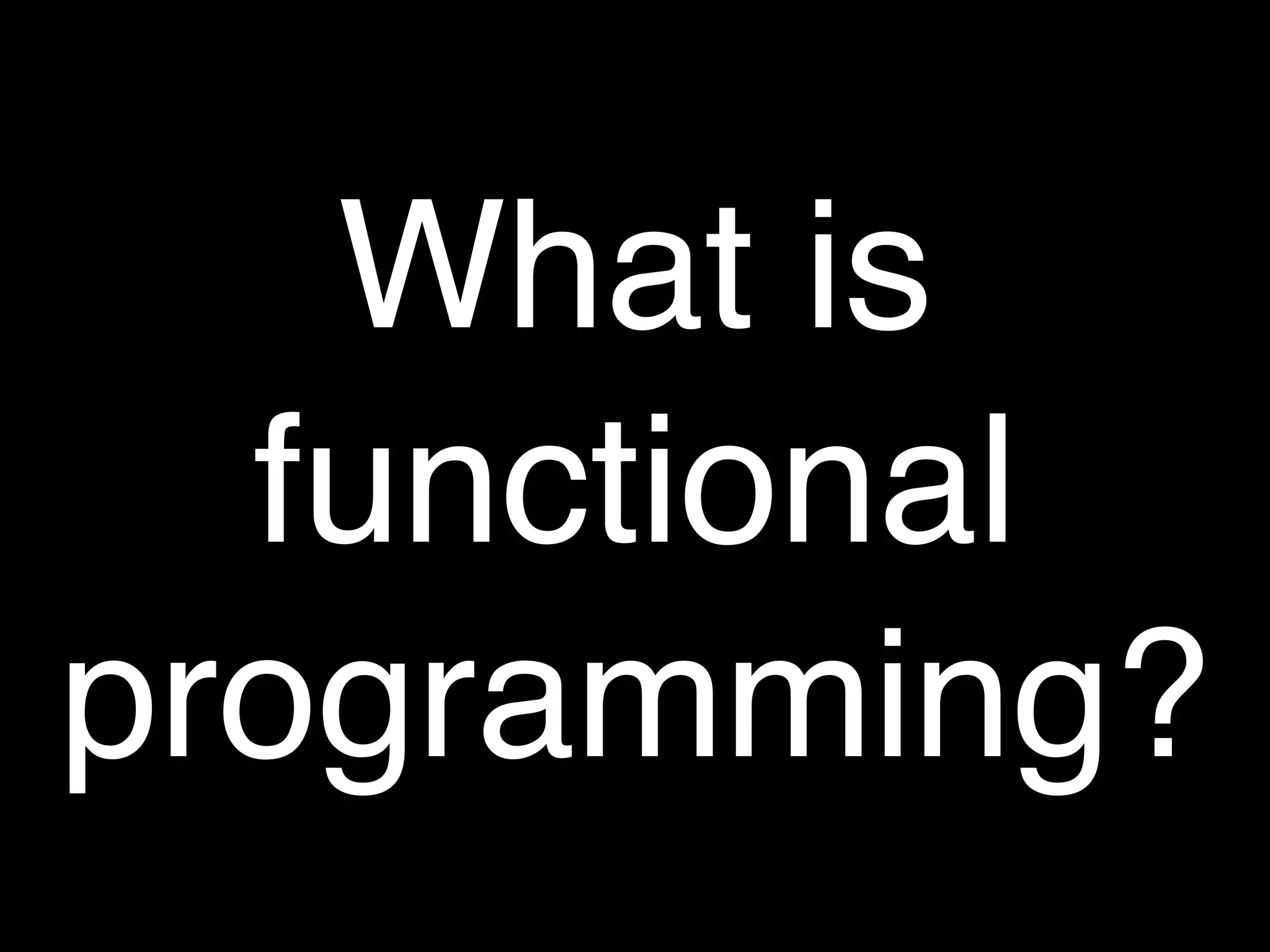
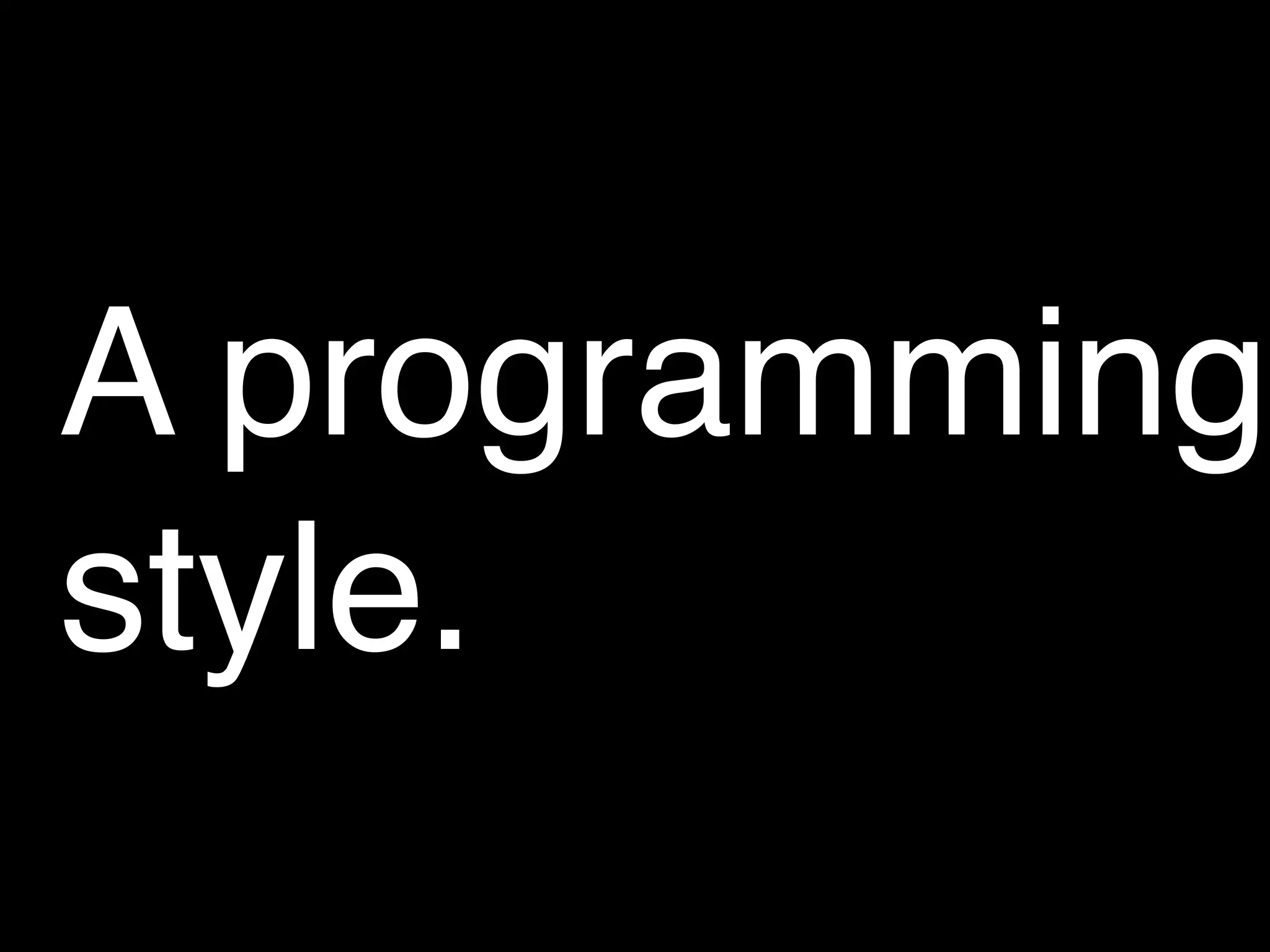
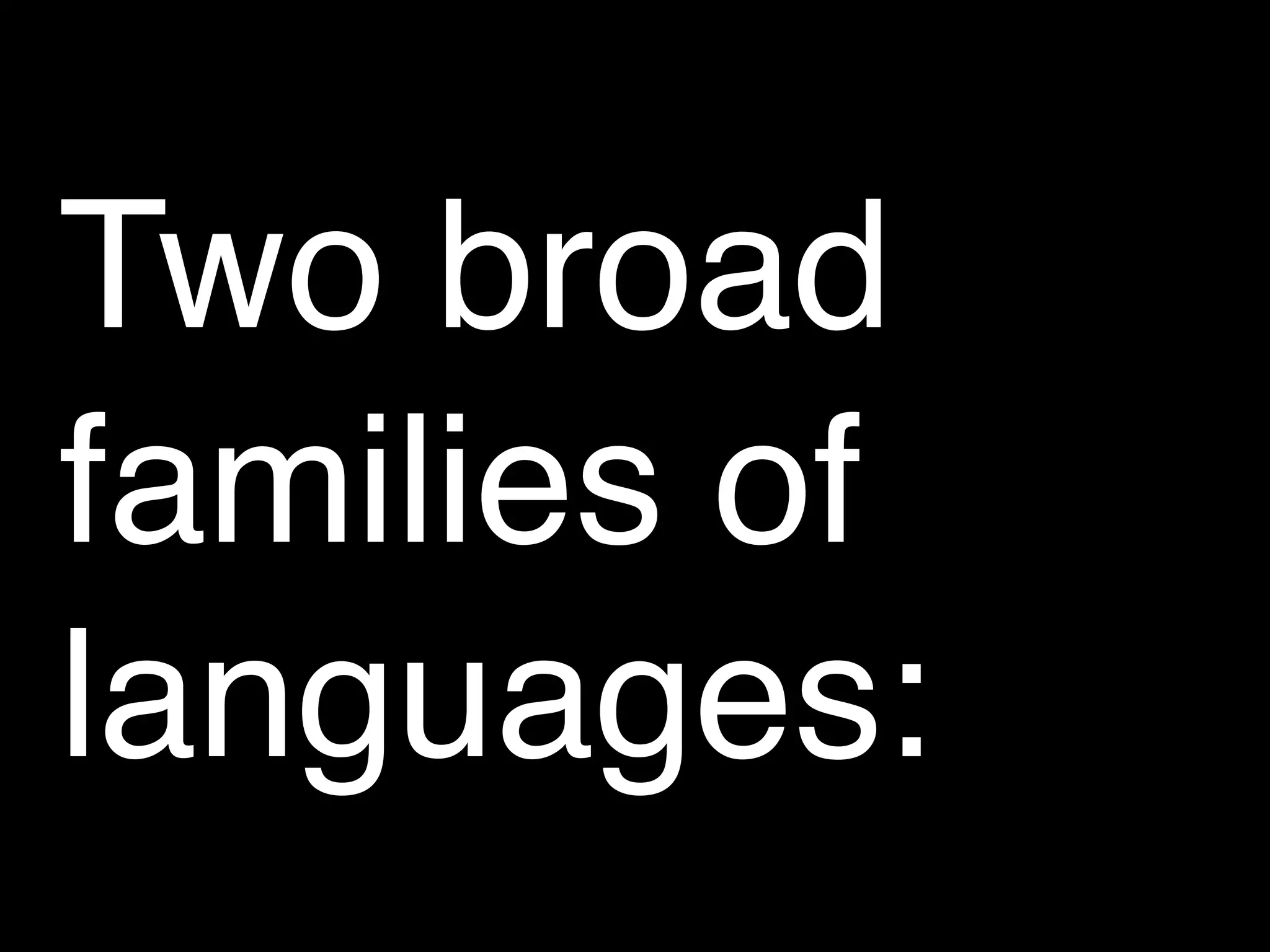
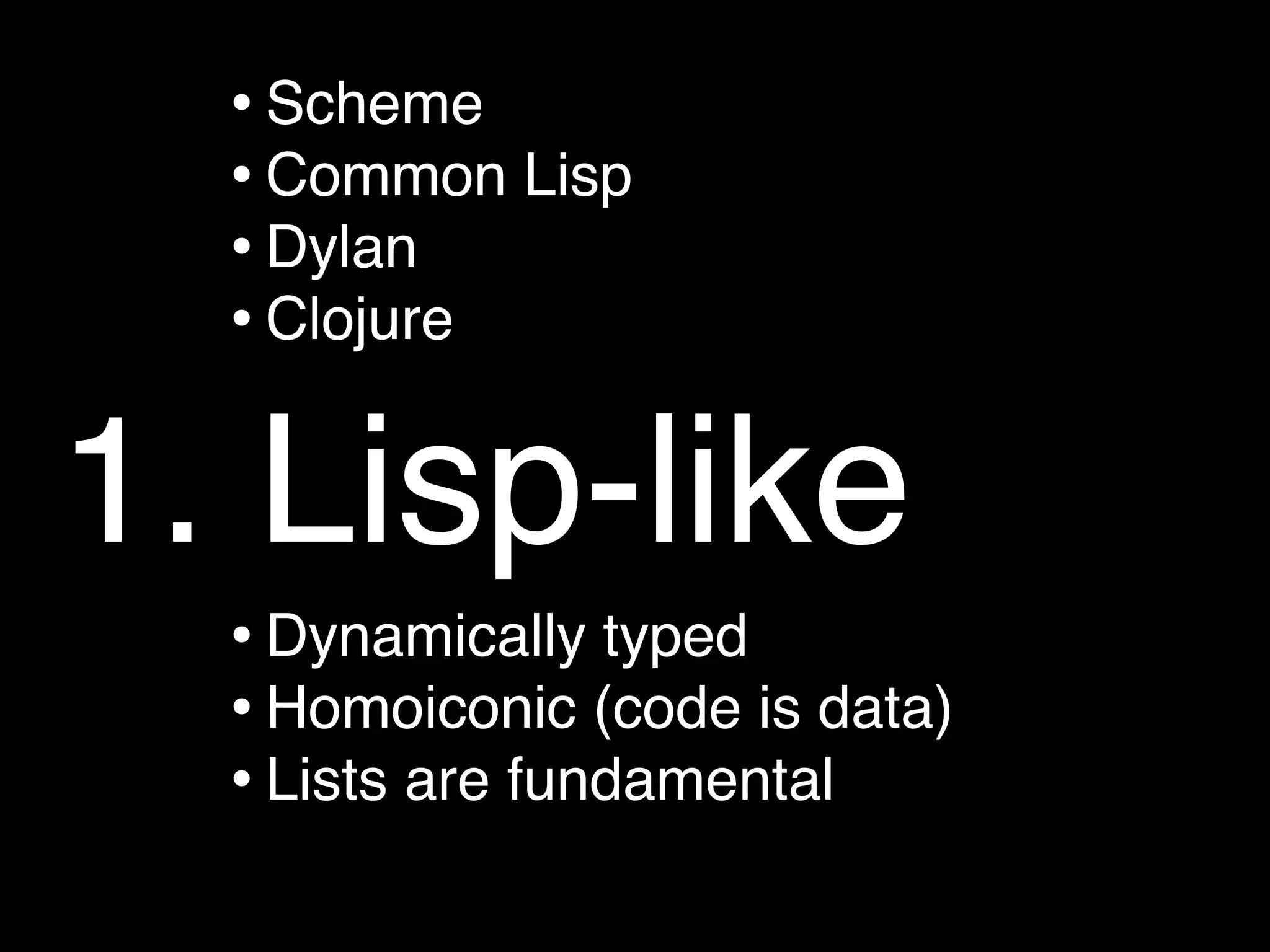
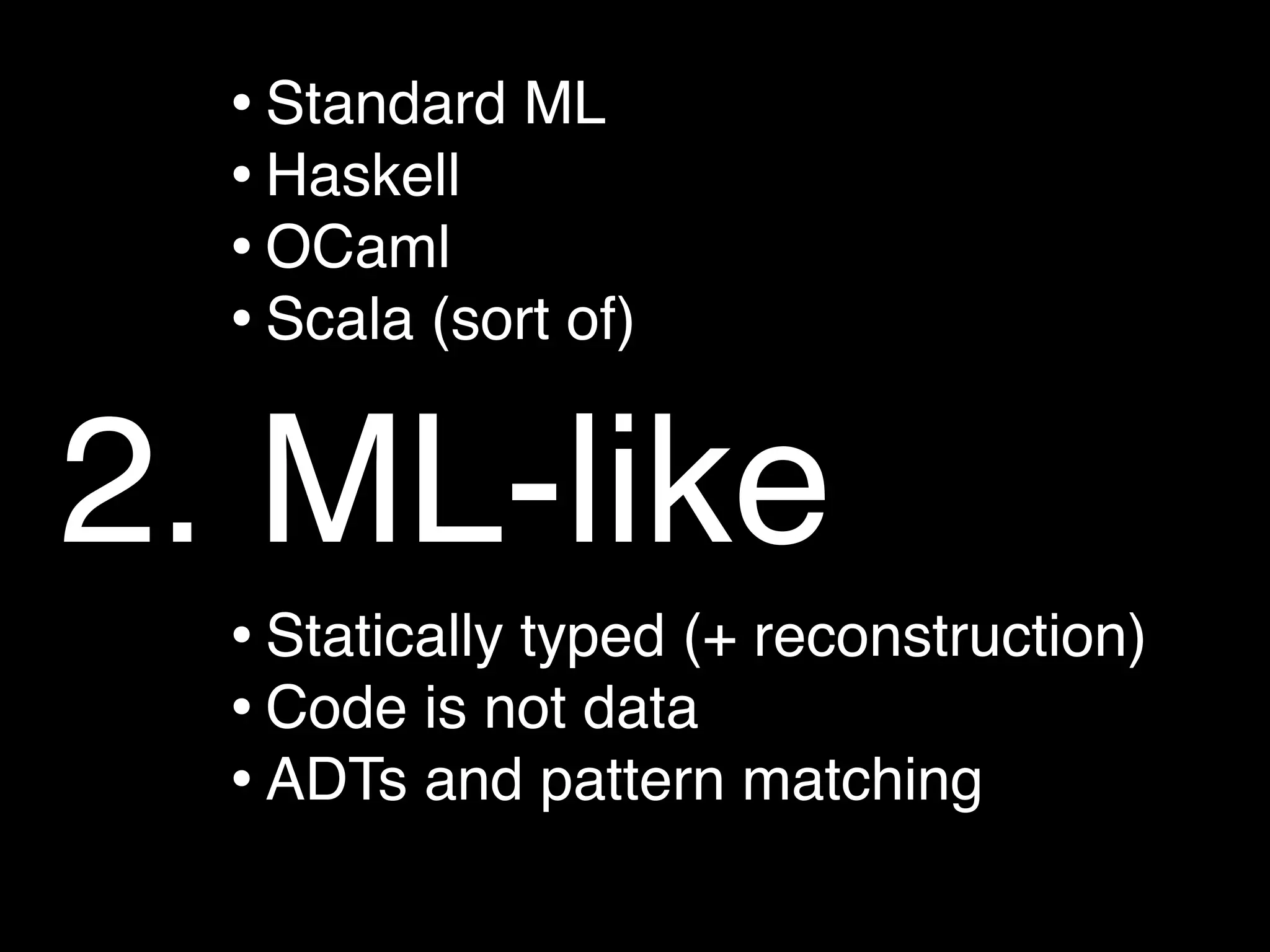
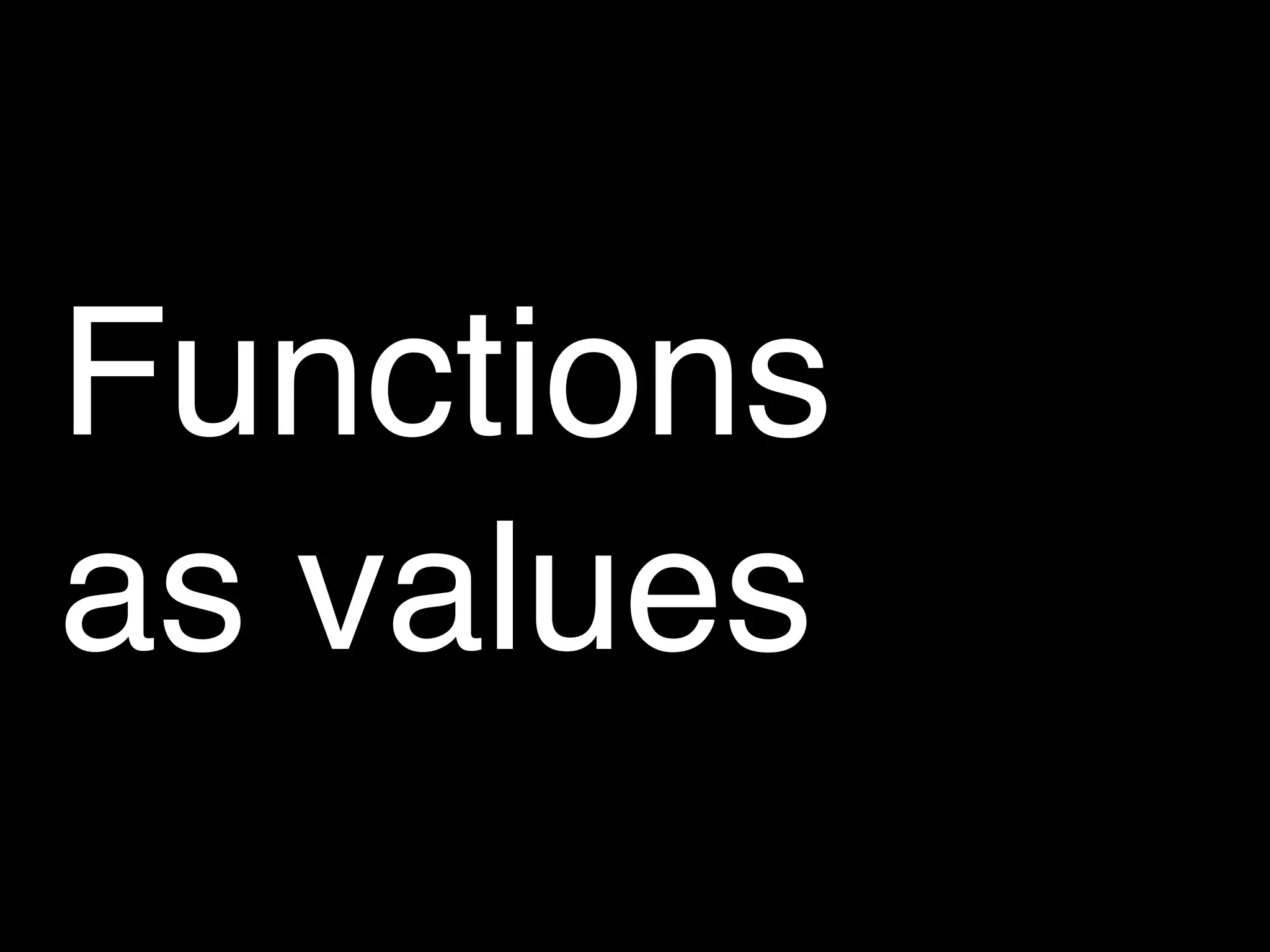
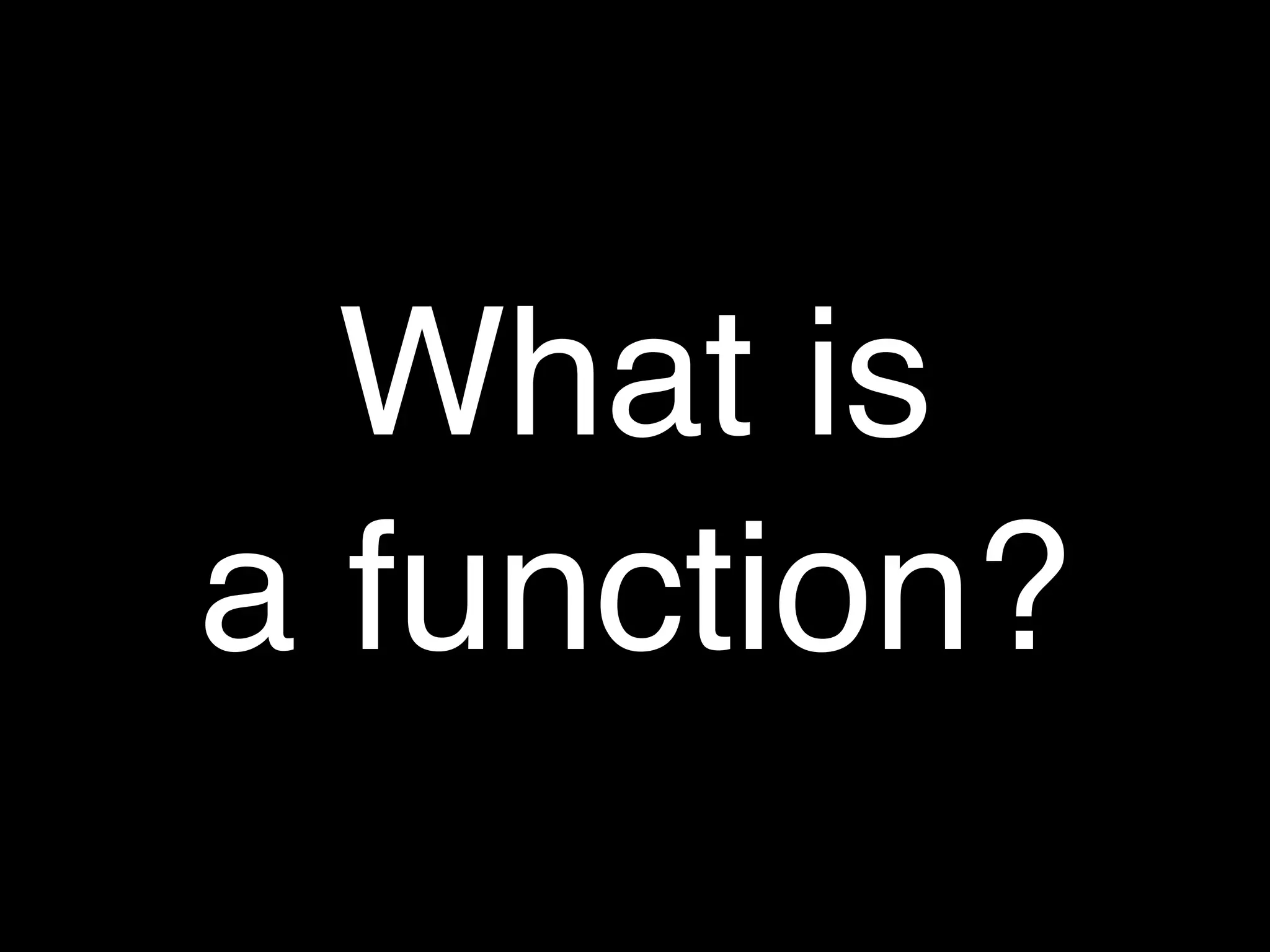
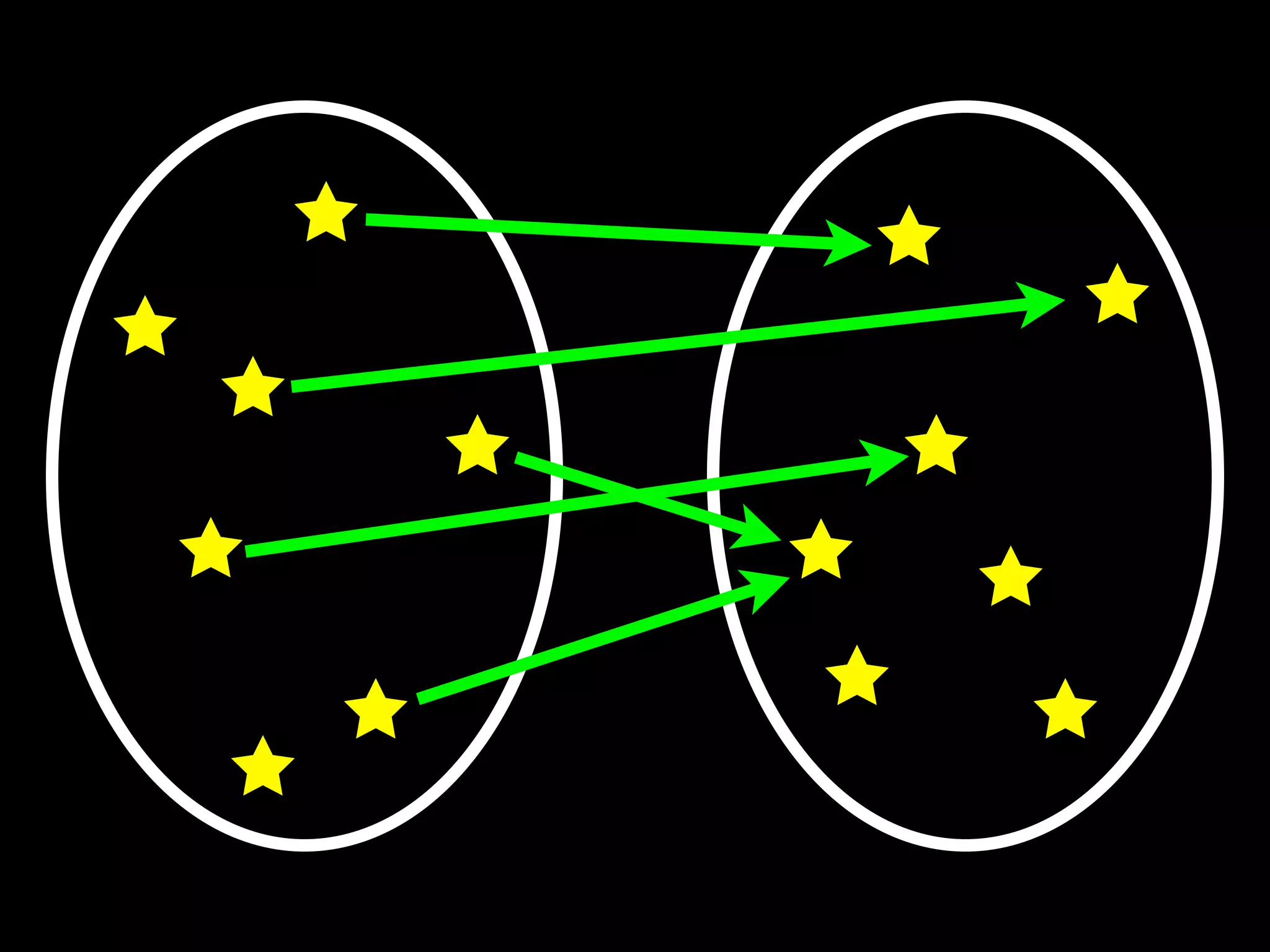
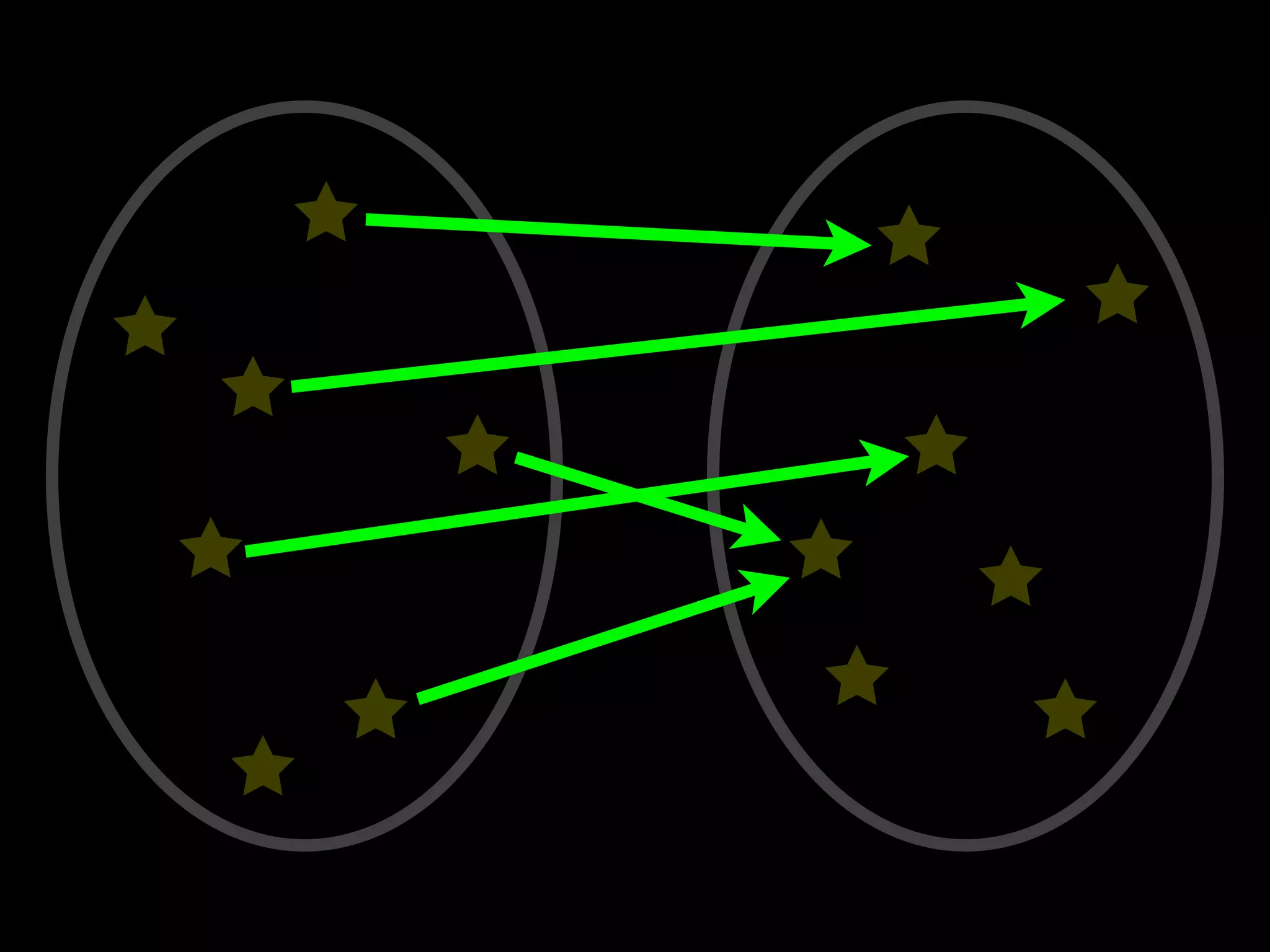
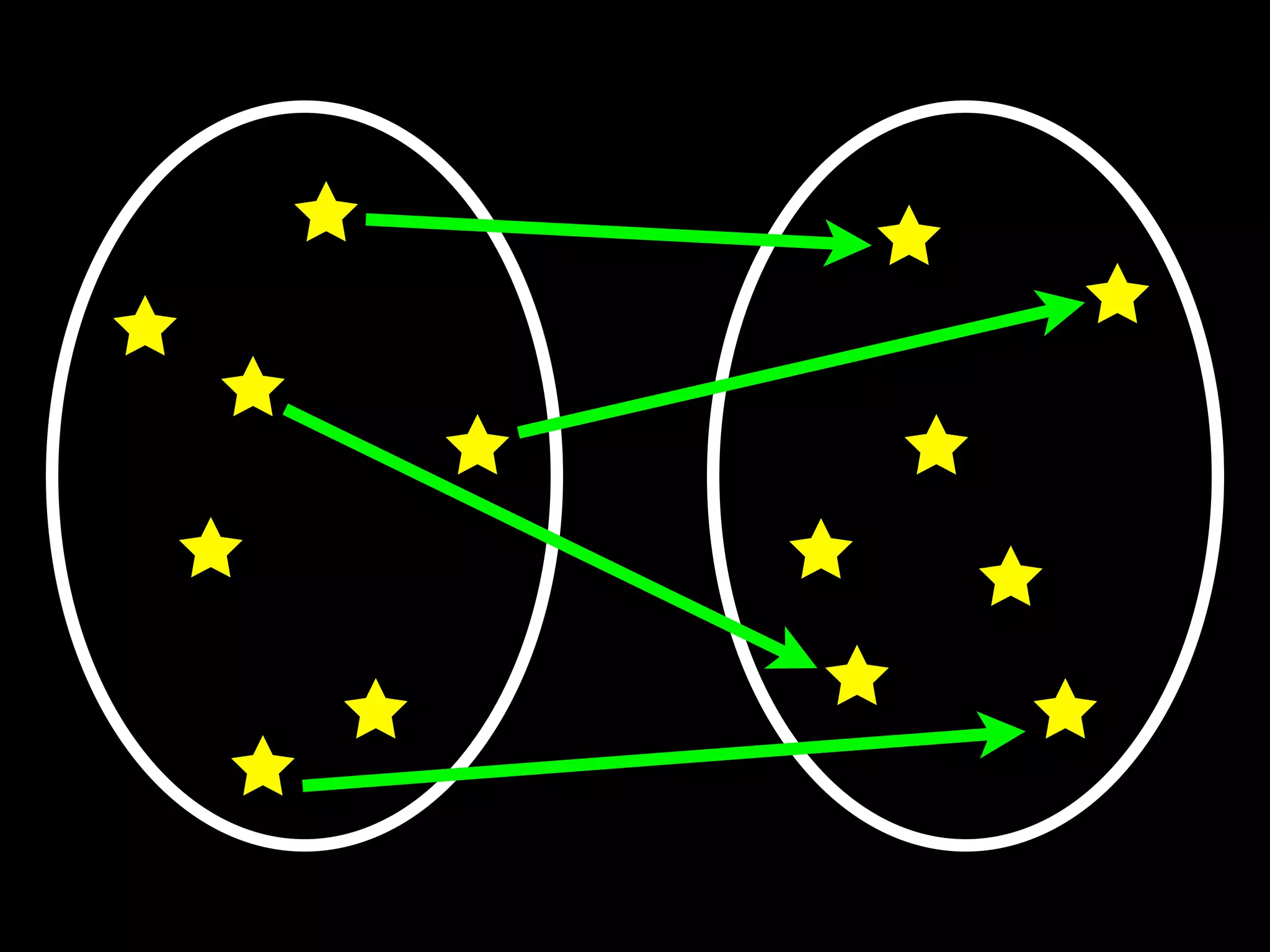
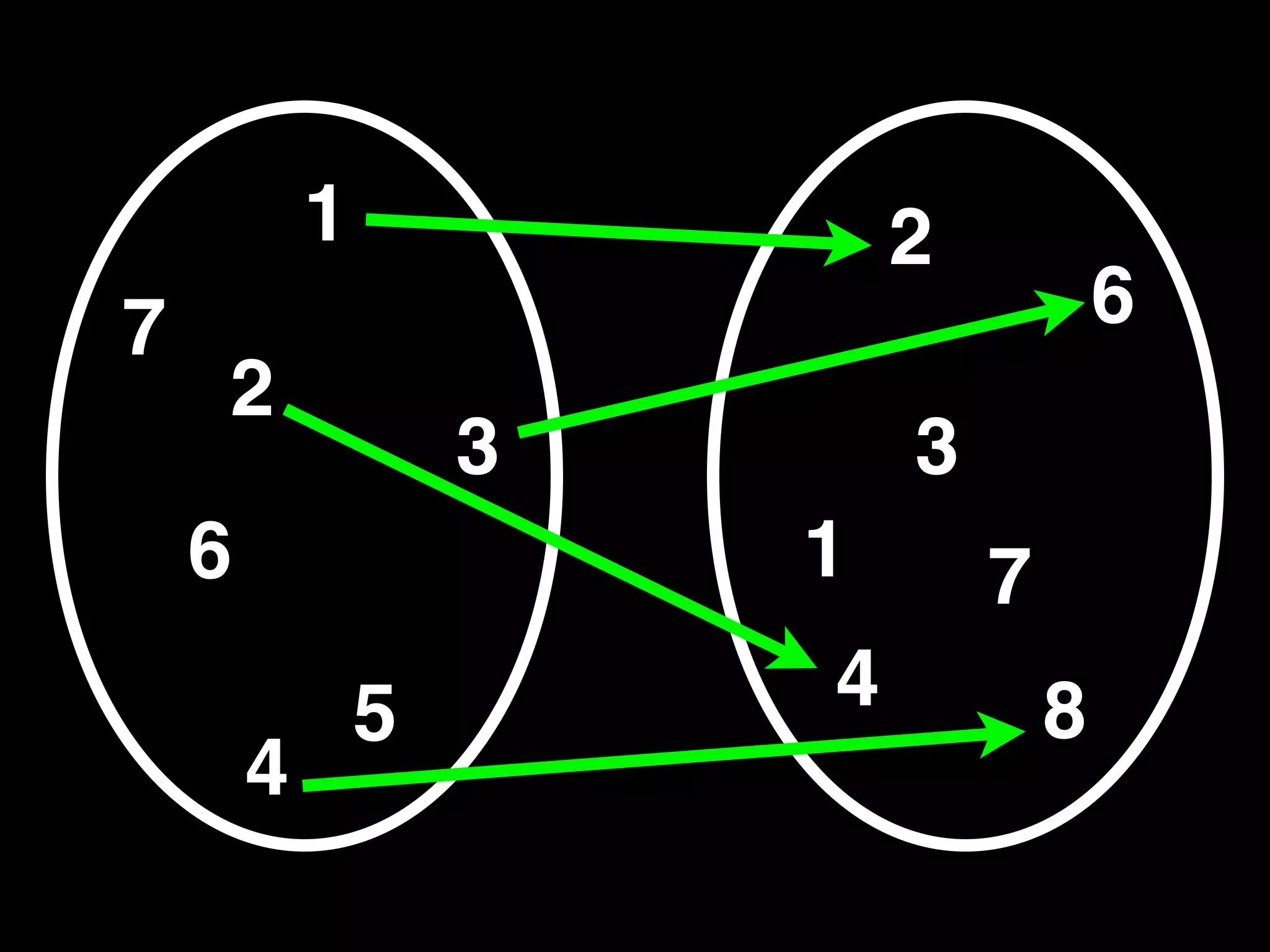
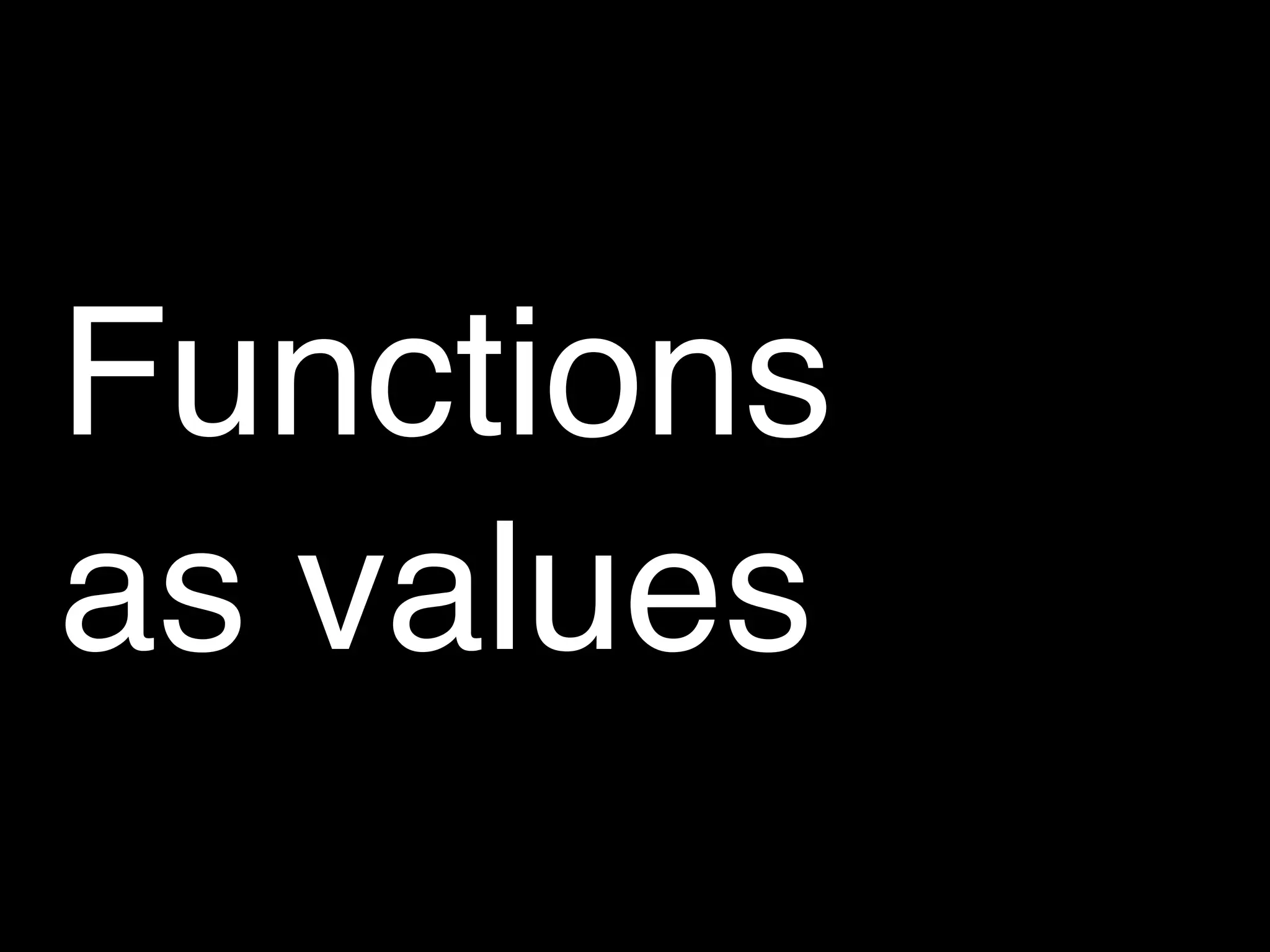
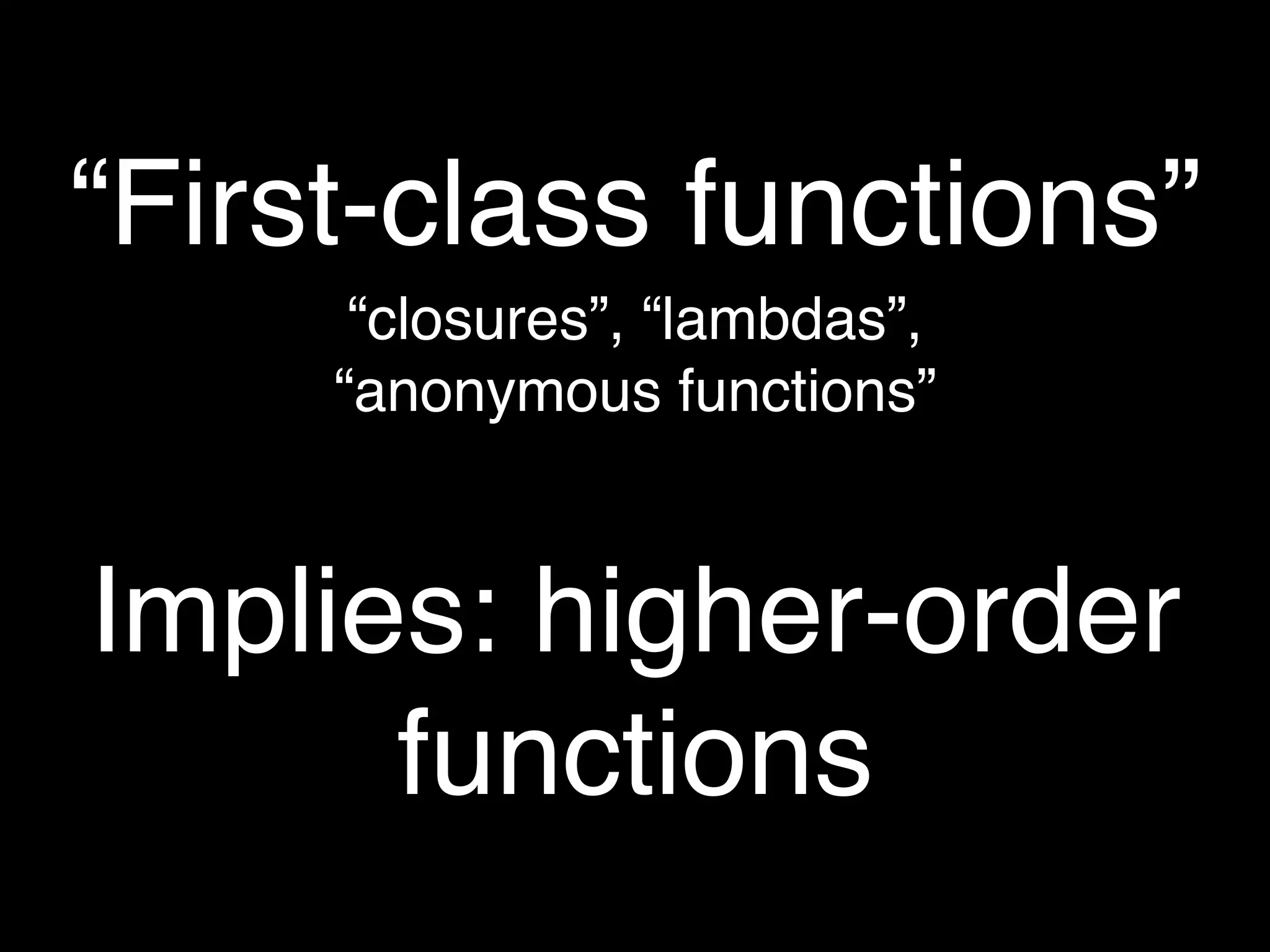
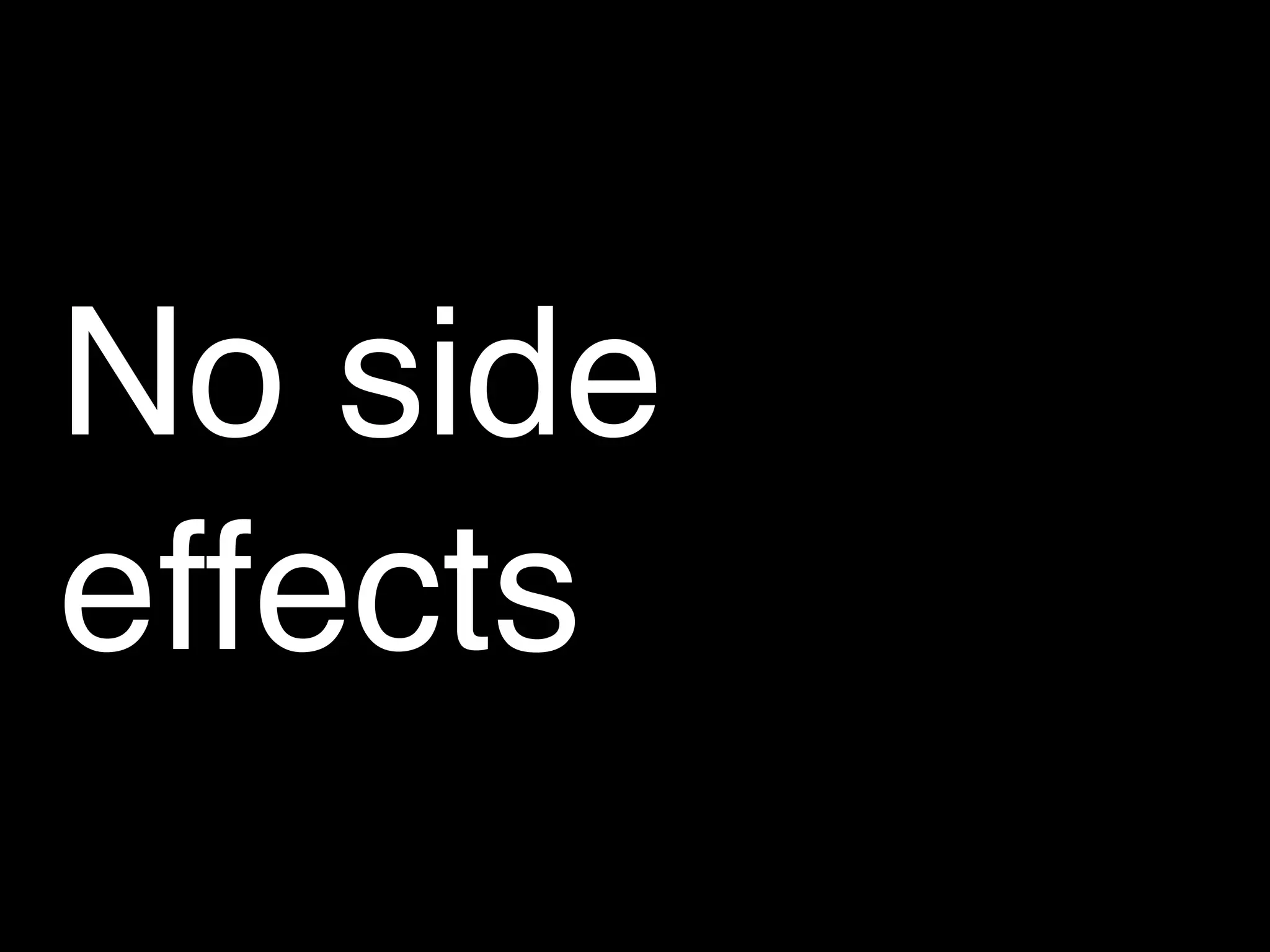
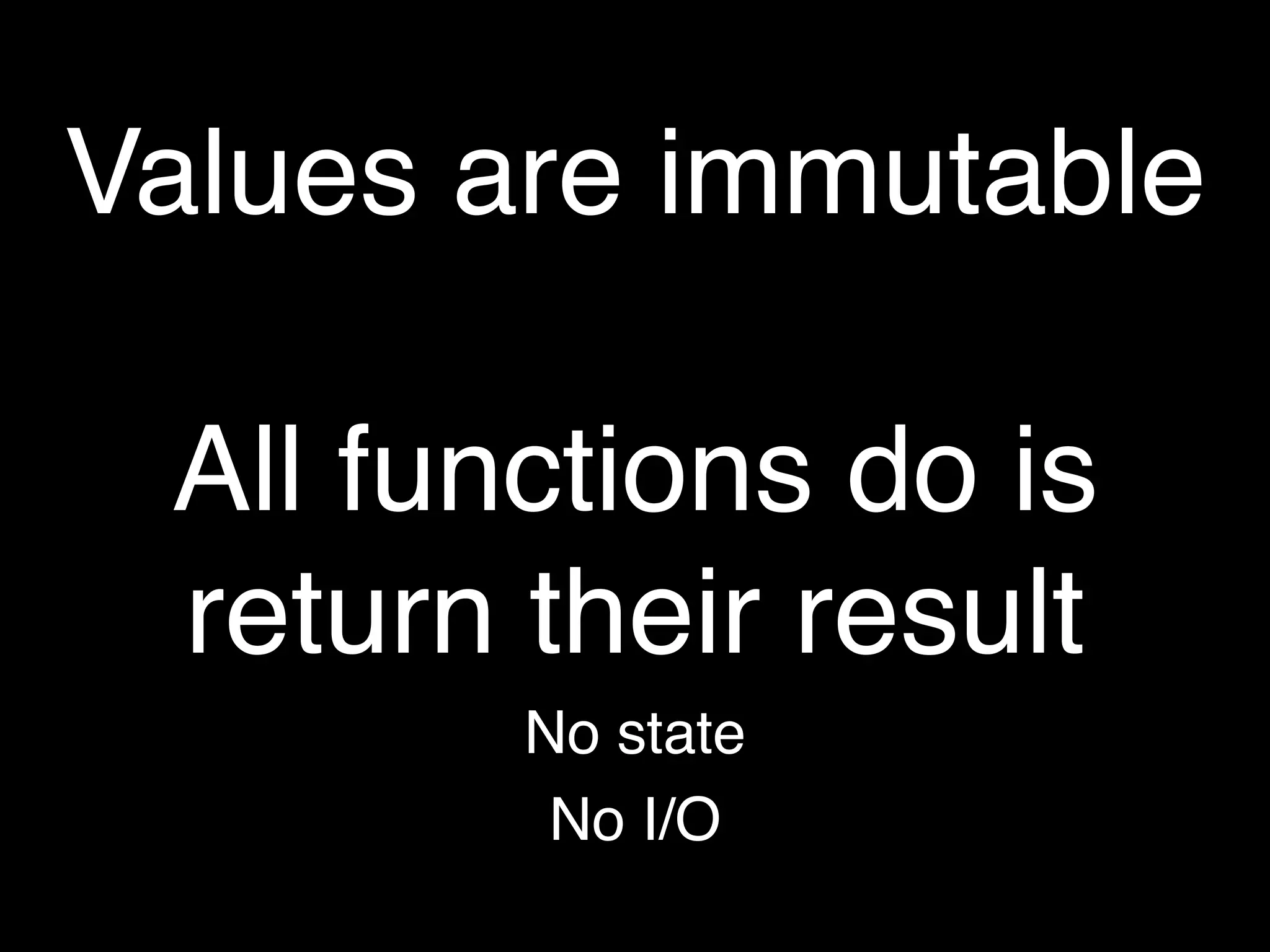
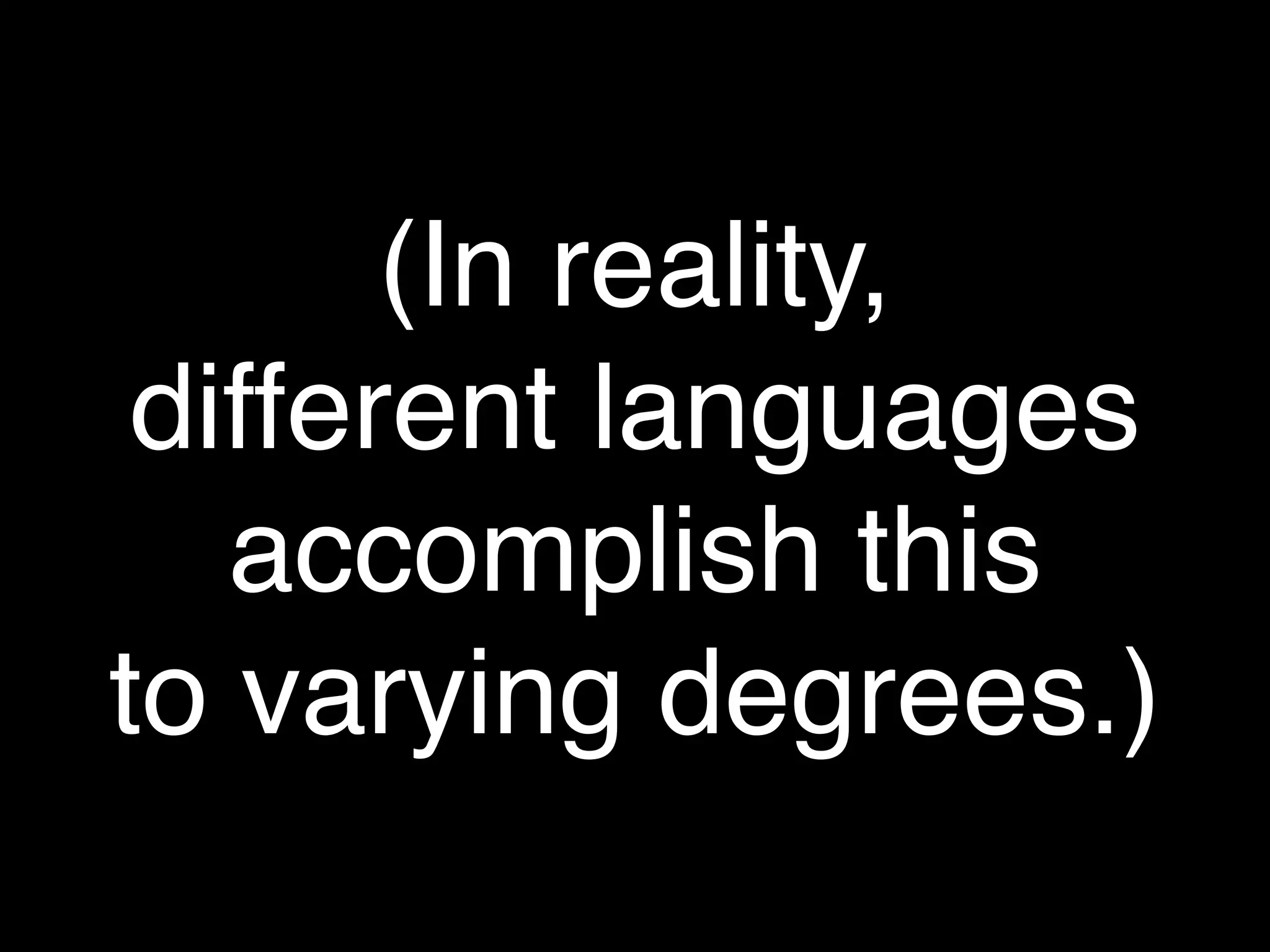
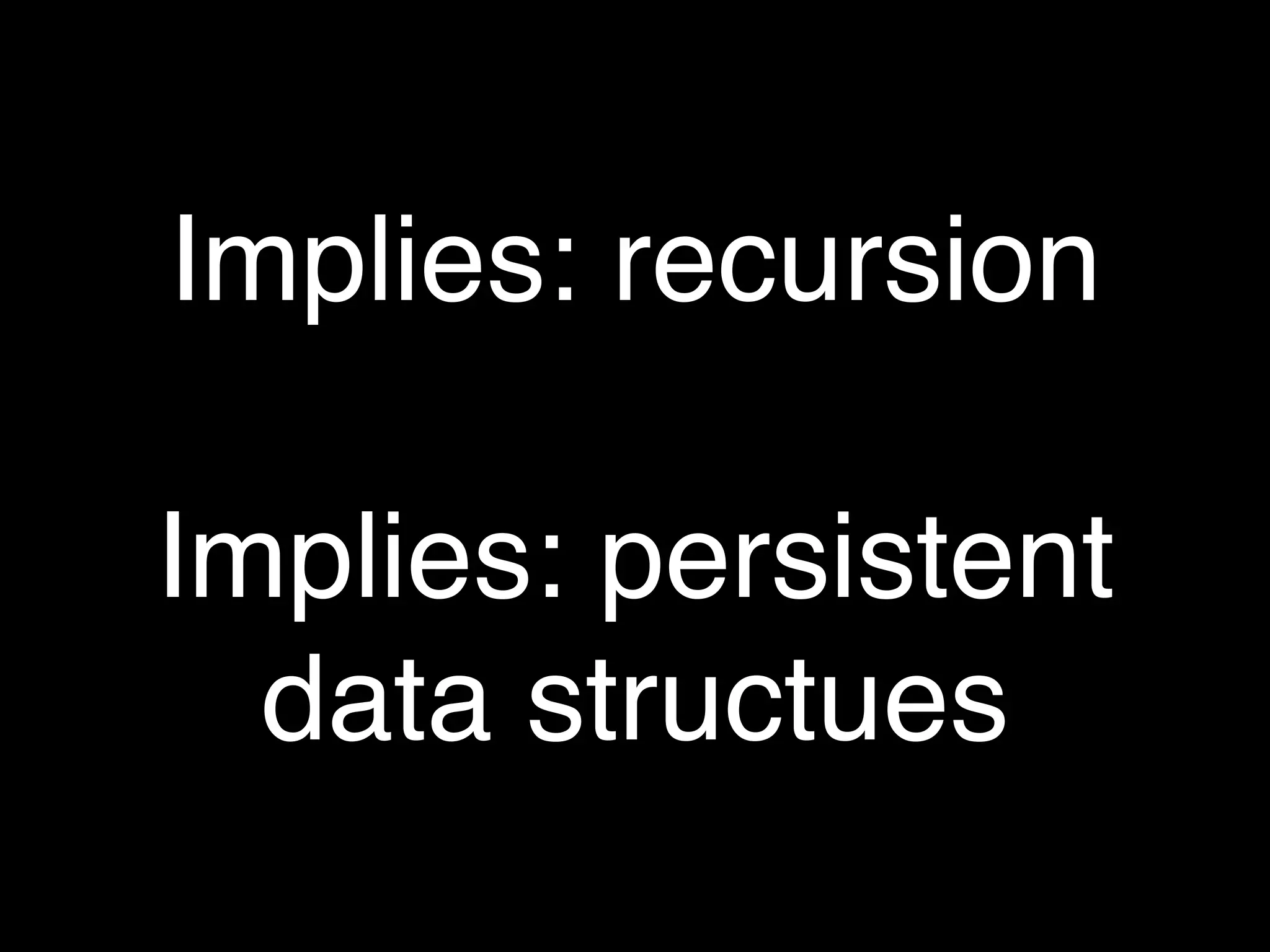


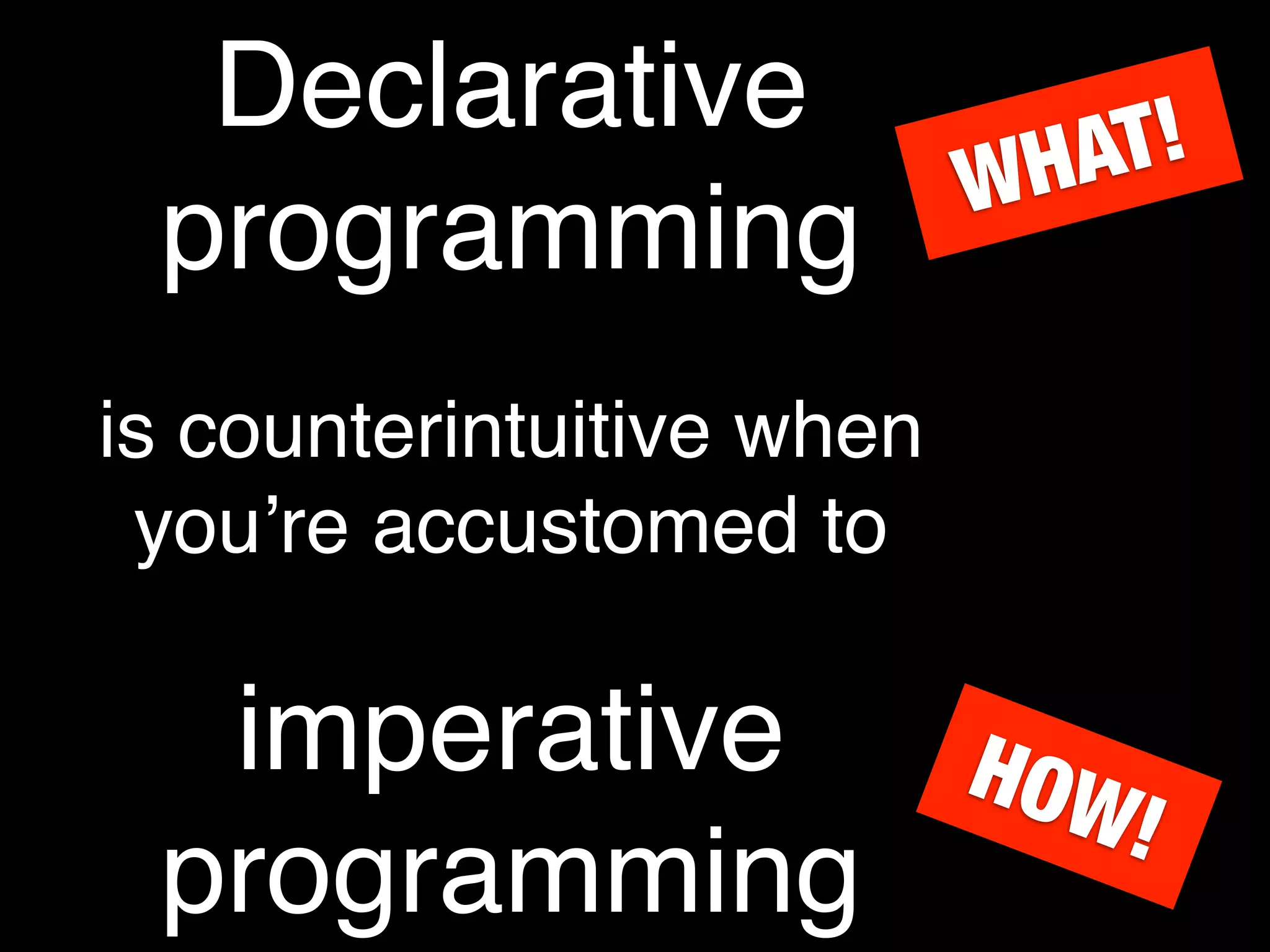
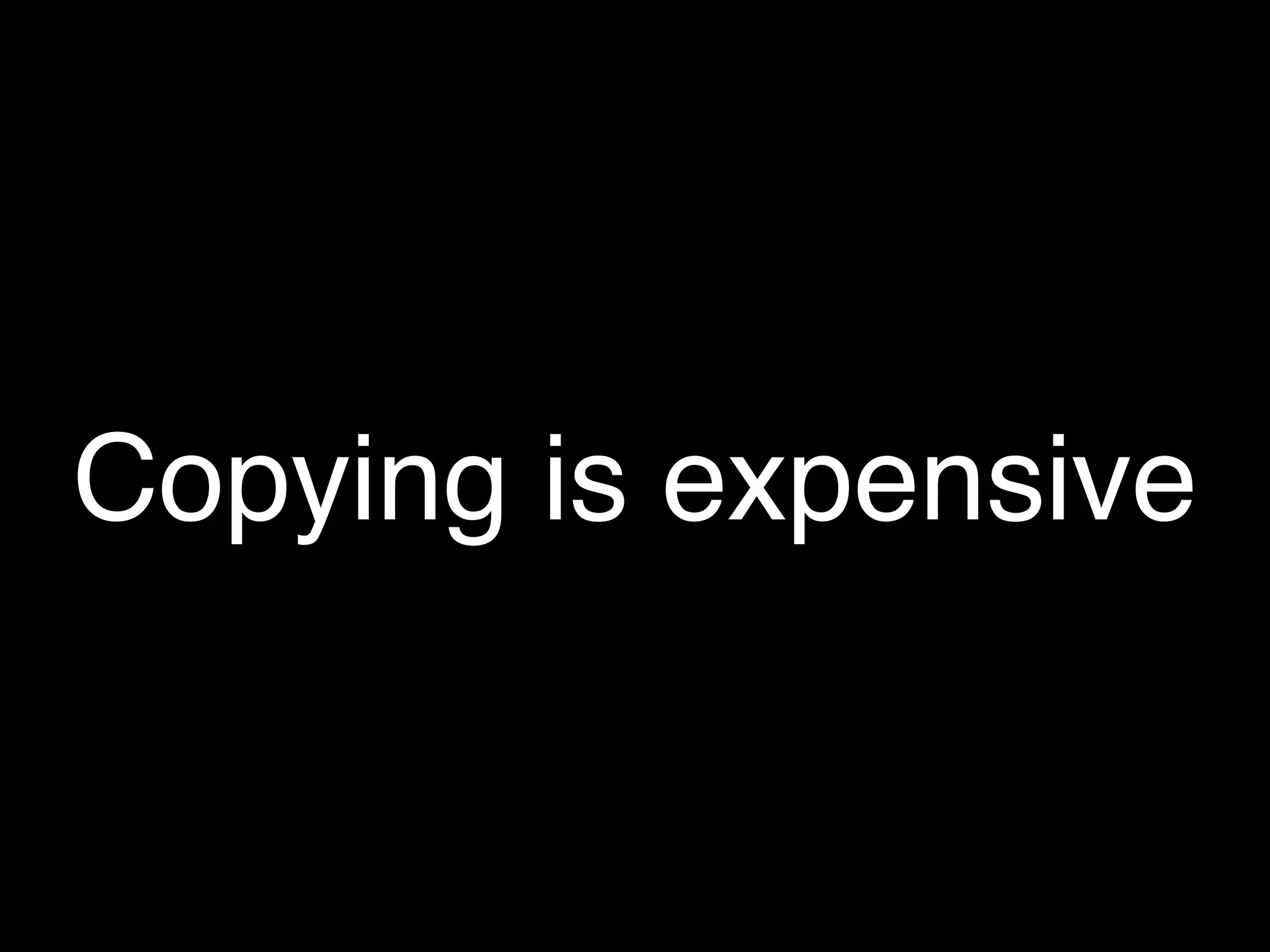
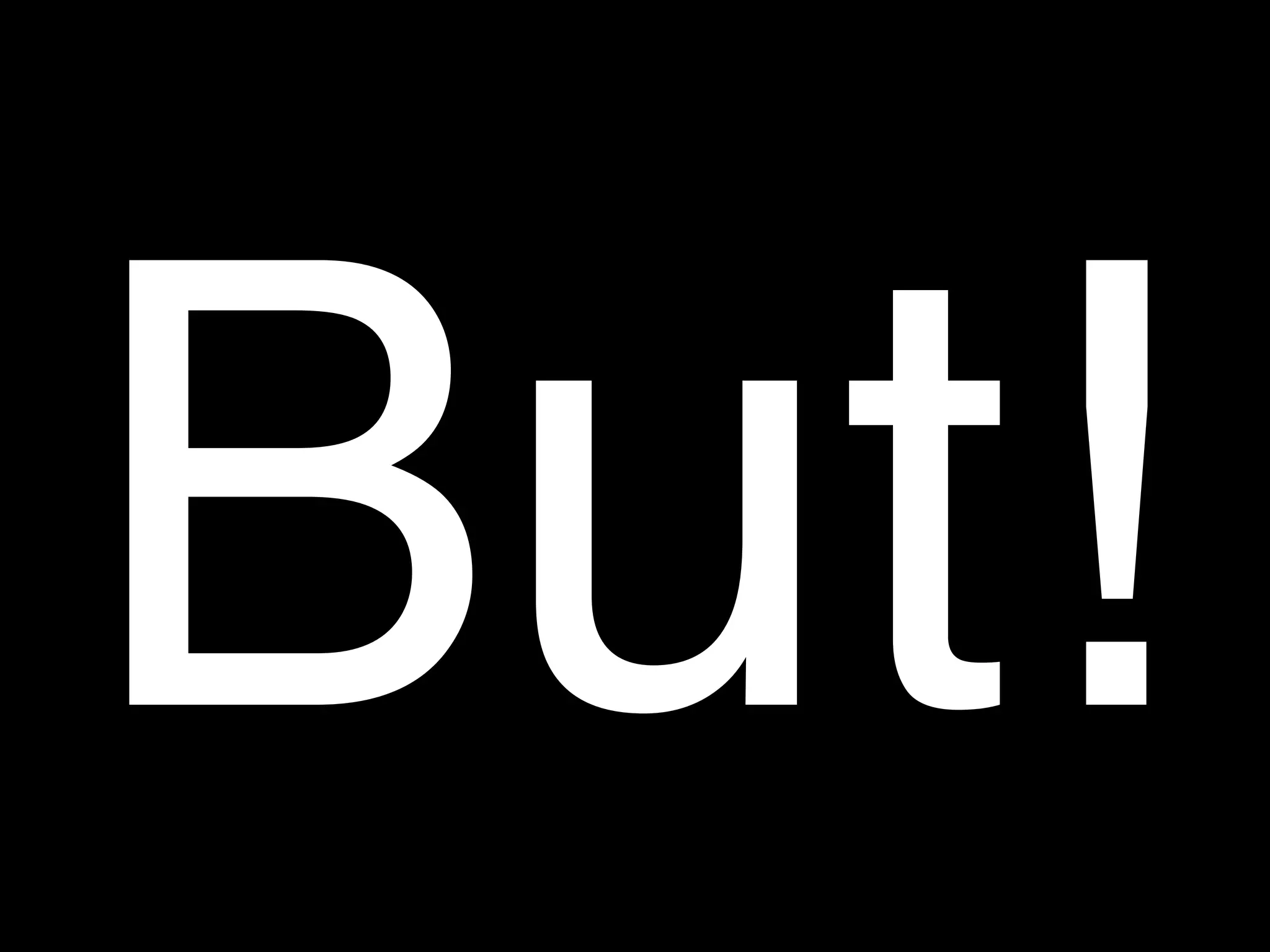
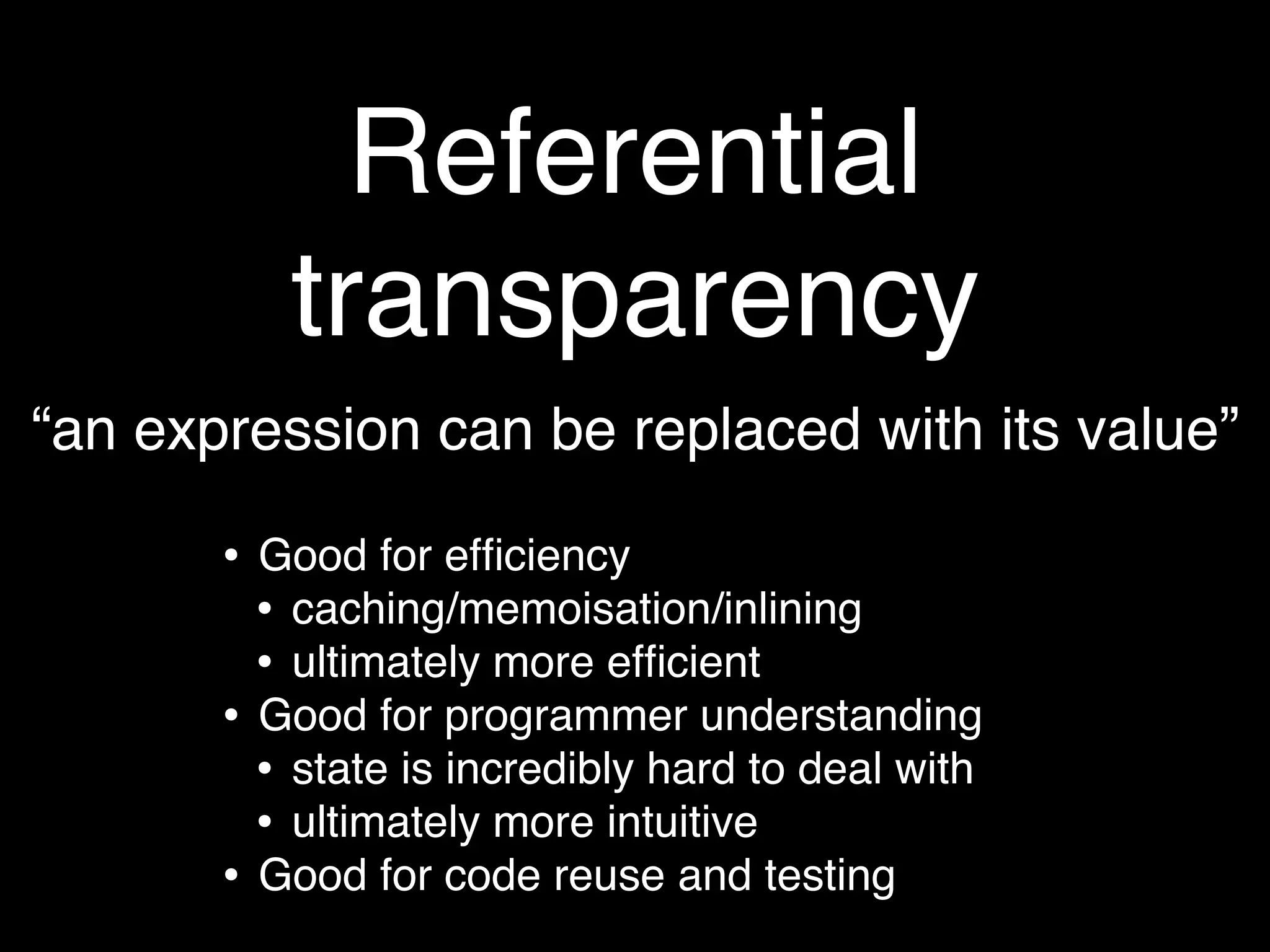
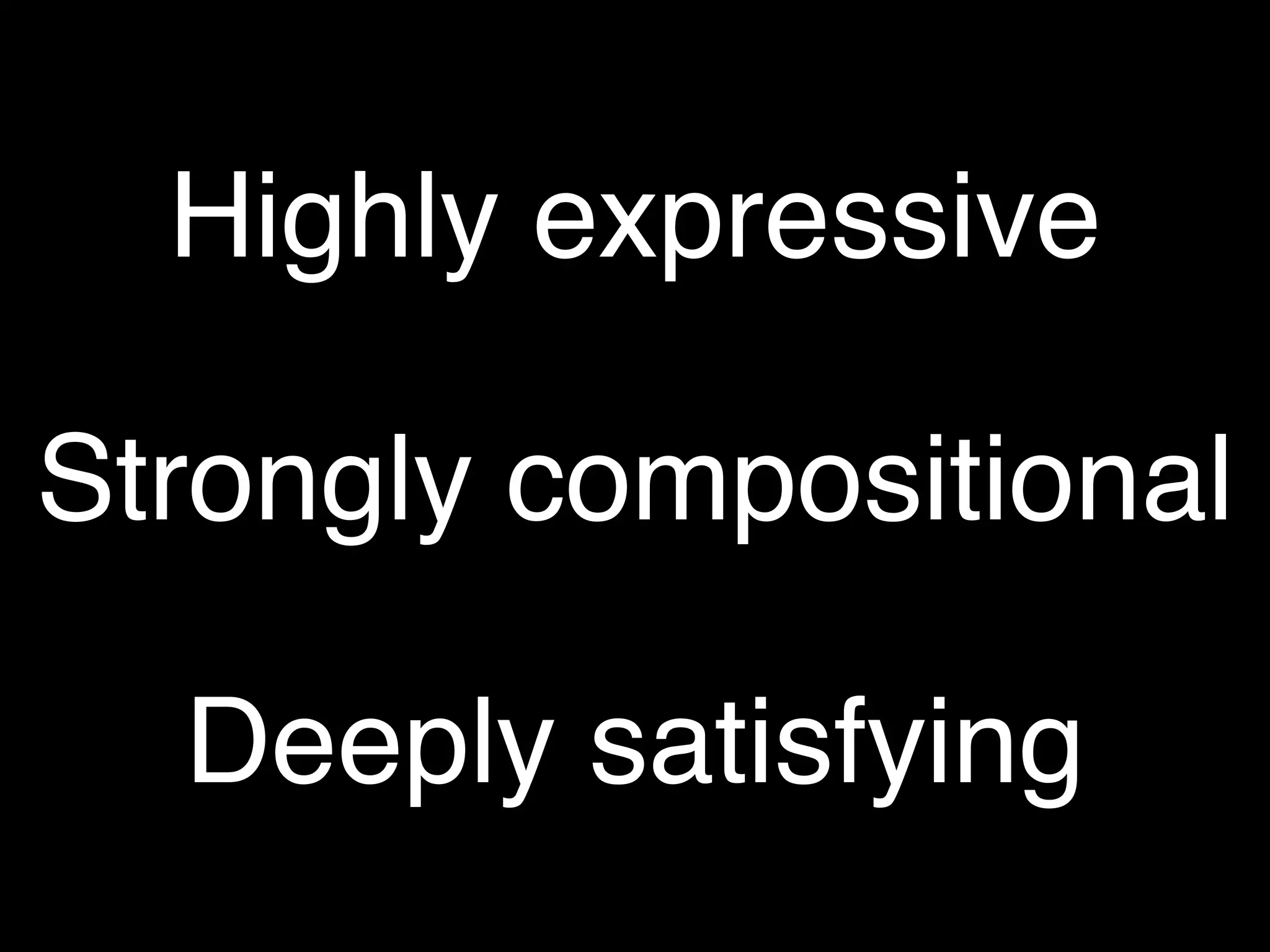
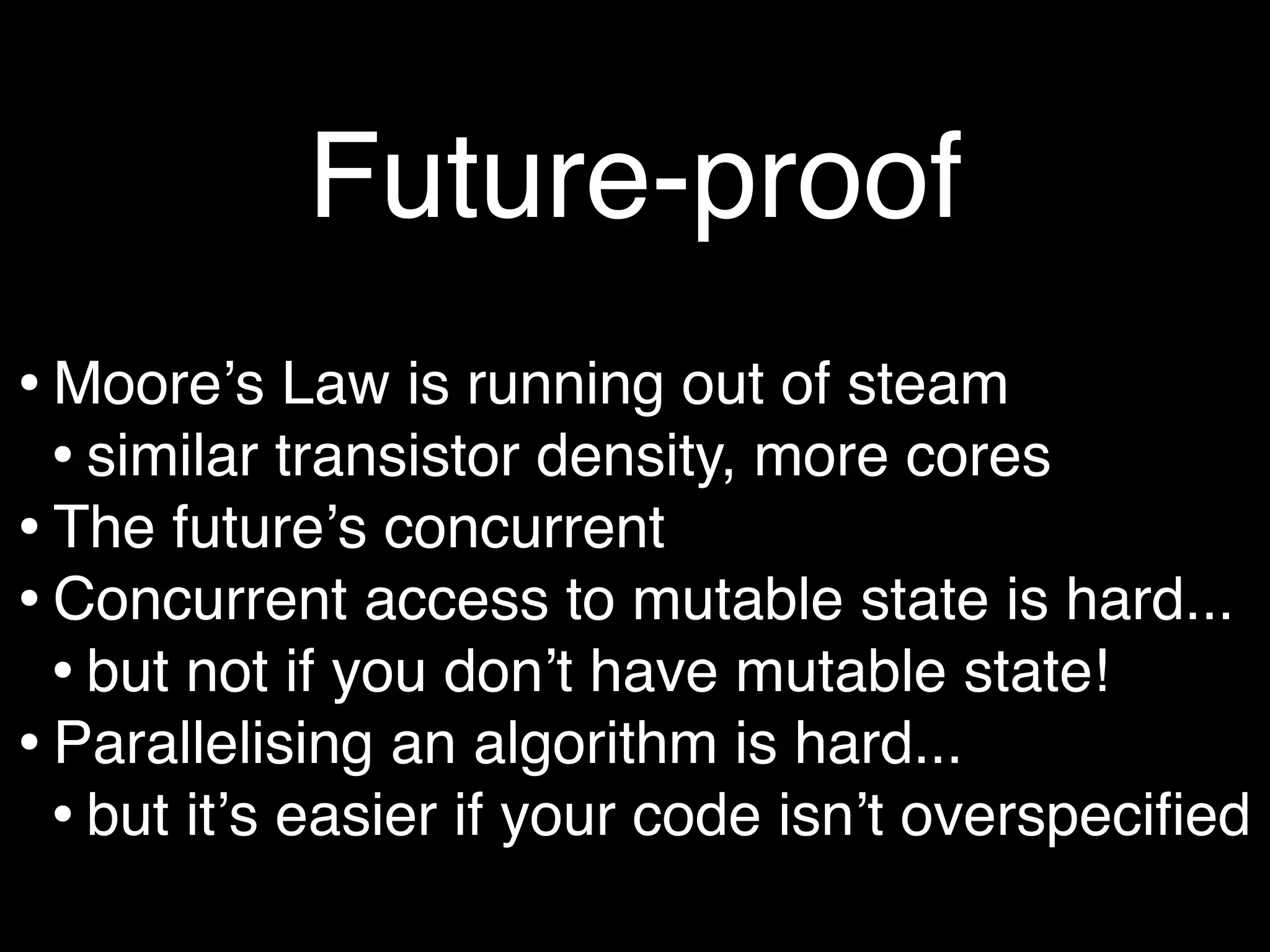


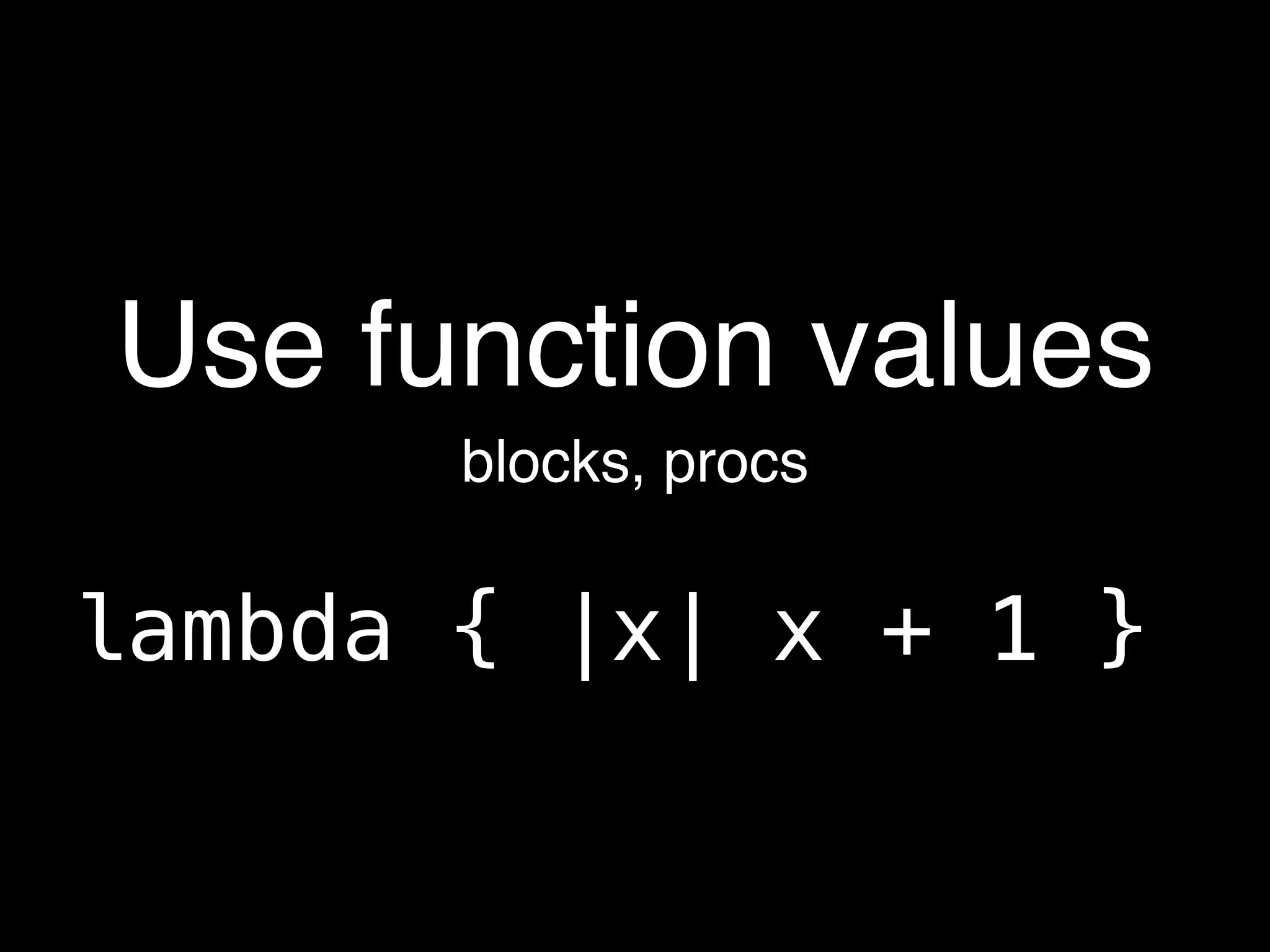
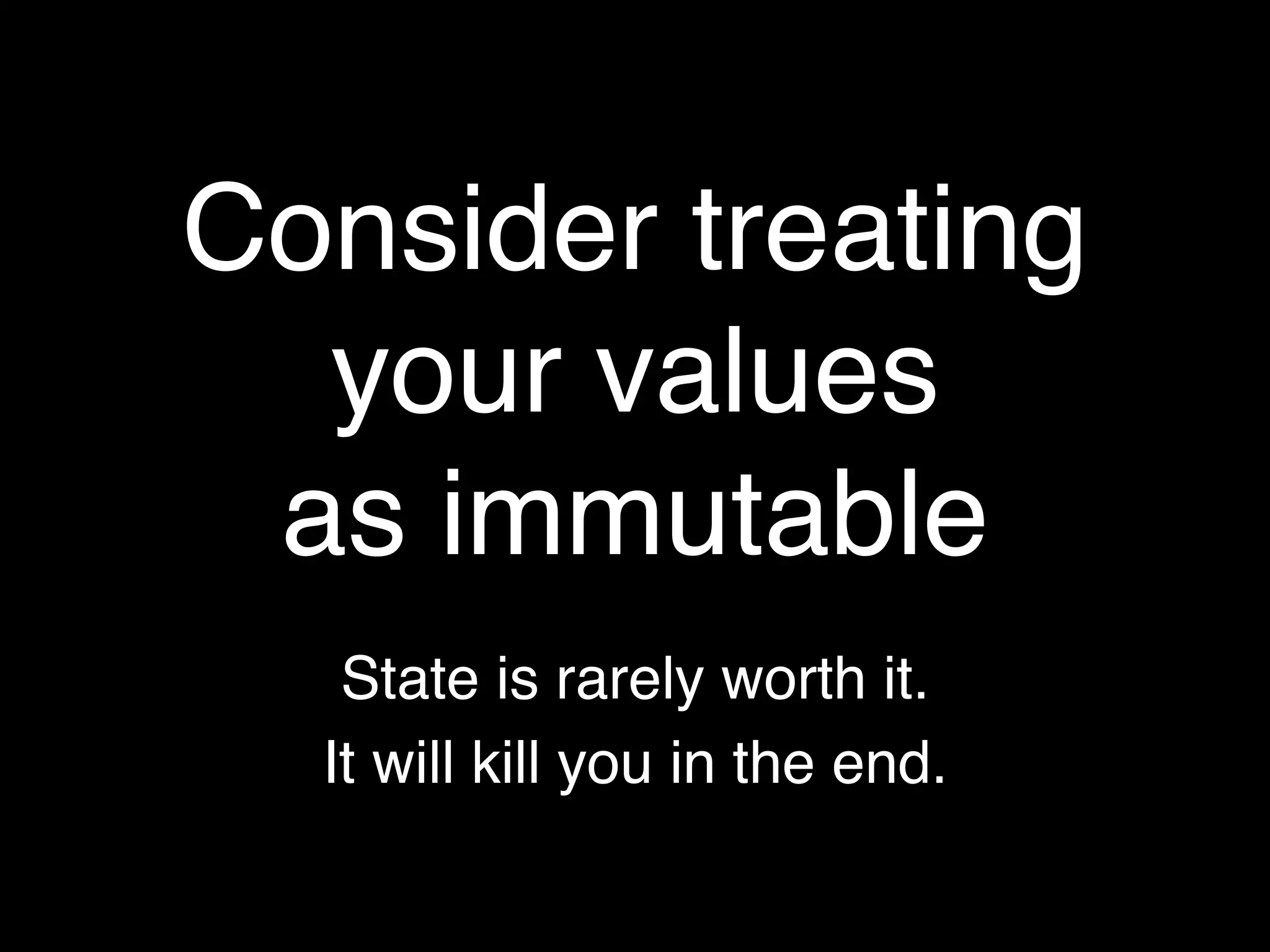


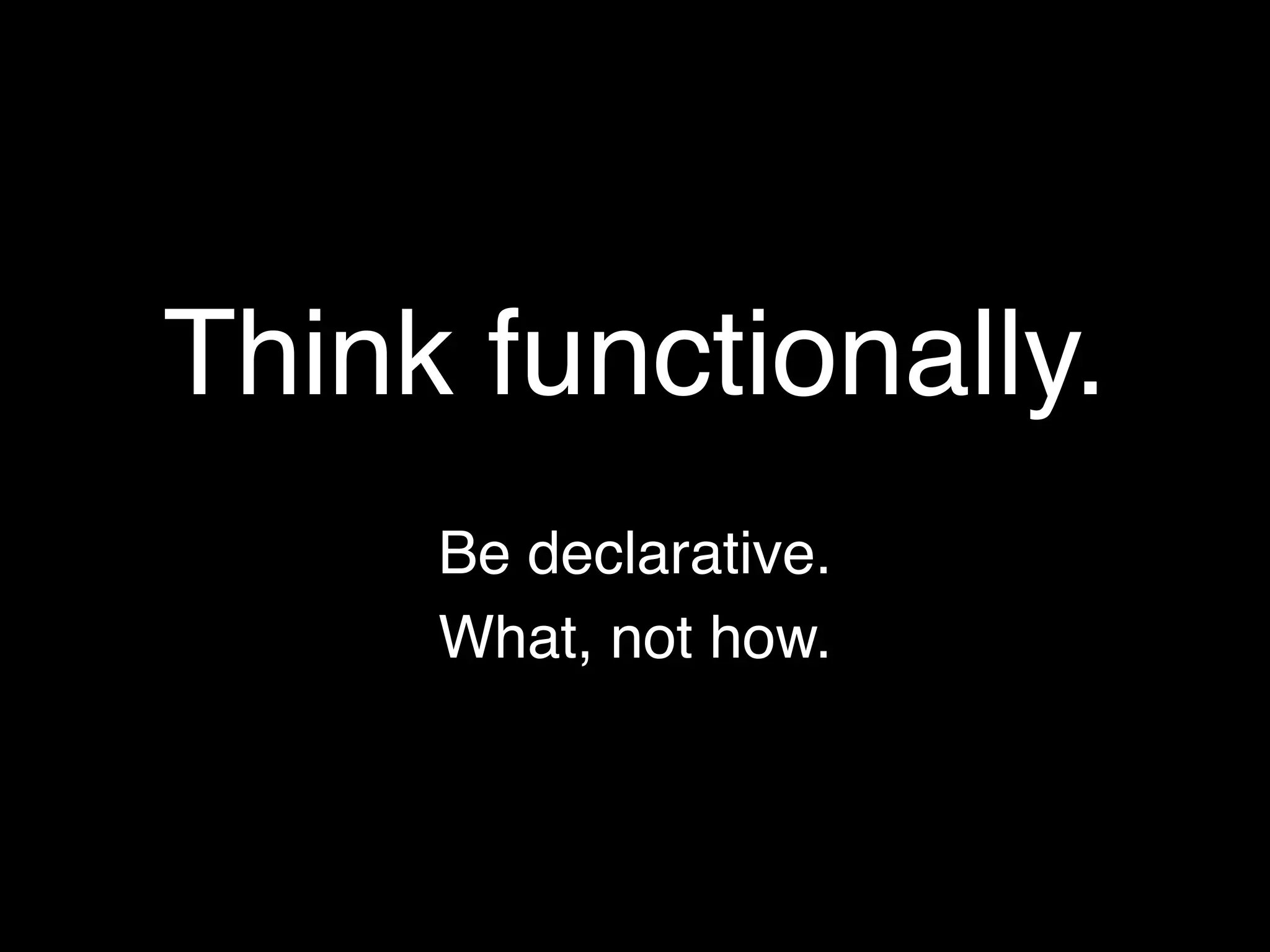
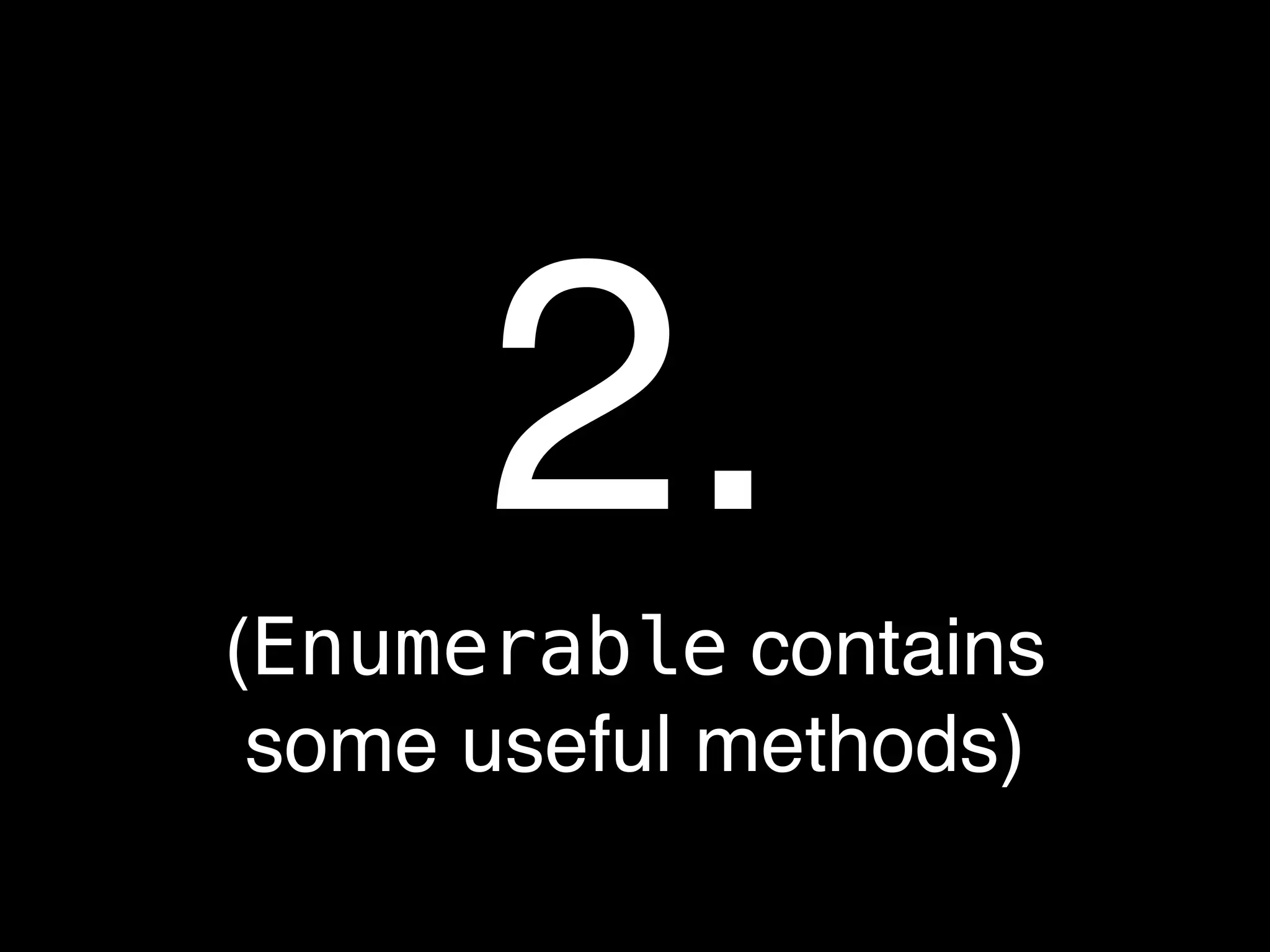
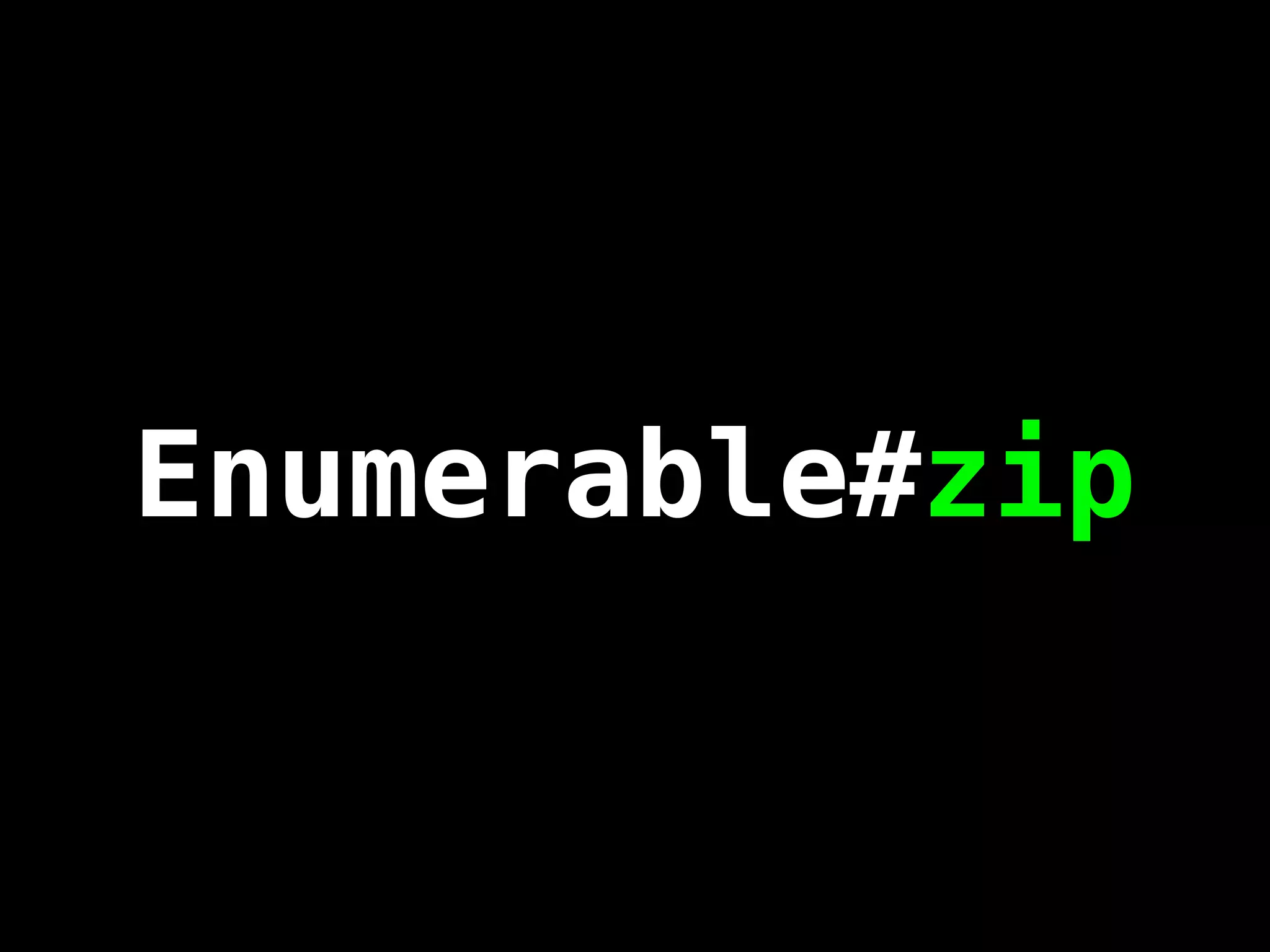
![[1, 2, 3, 4].
zip([5, 6, 7, 8])](https://image.slidesharecdn.com/thinking-functionally-in-ruby-091016082812-phpapp02/75/Thinking-Functionally-In-Ruby-40-2048.jpg)
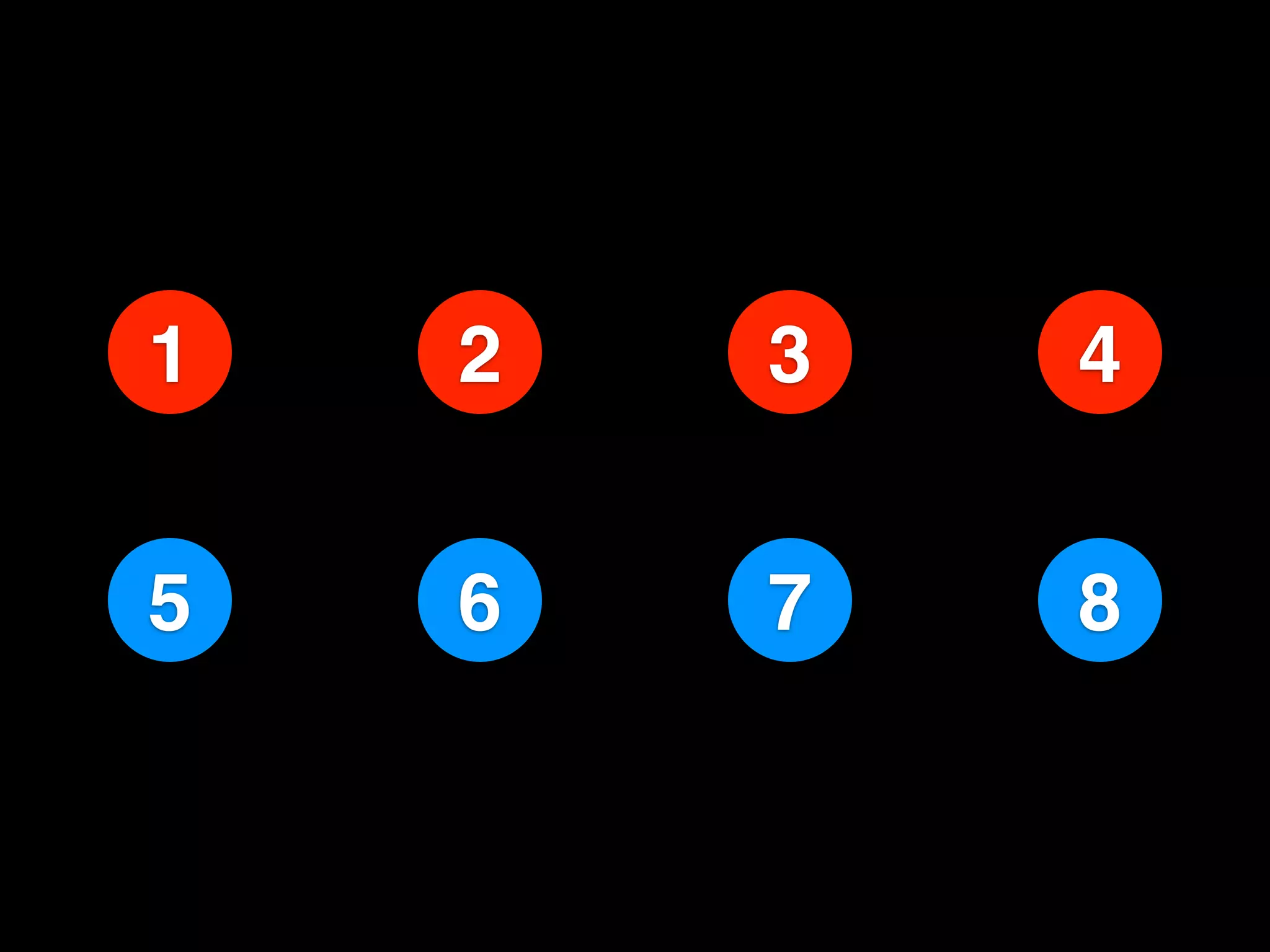
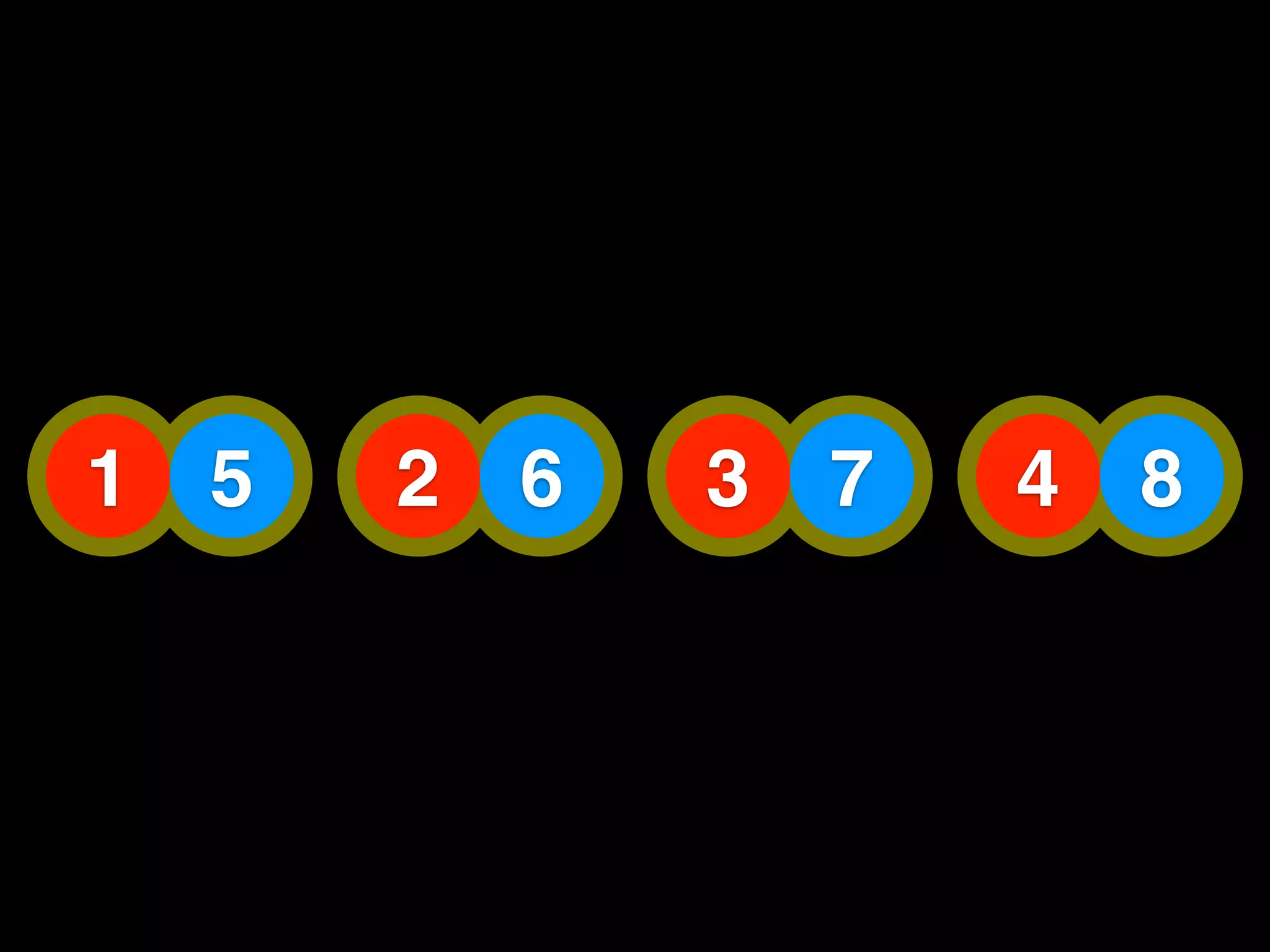
![[ ]
[1 , 5],[2 , 6],[3 , 7],[4 , 8]](https://image.slidesharecdn.com/thinking-functionally-in-ruby-091016082812-phpapp02/75/Thinking-Functionally-In-Ruby-43-2048.jpg)
![[1, 2, 3, 4].
zip([5, 6, 7, 8],
[9, 10, 11, 12])](https://image.slidesharecdn.com/thinking-functionally-in-ruby-091016082812-phpapp02/75/Thinking-Functionally-In-Ruby-44-2048.jpg)
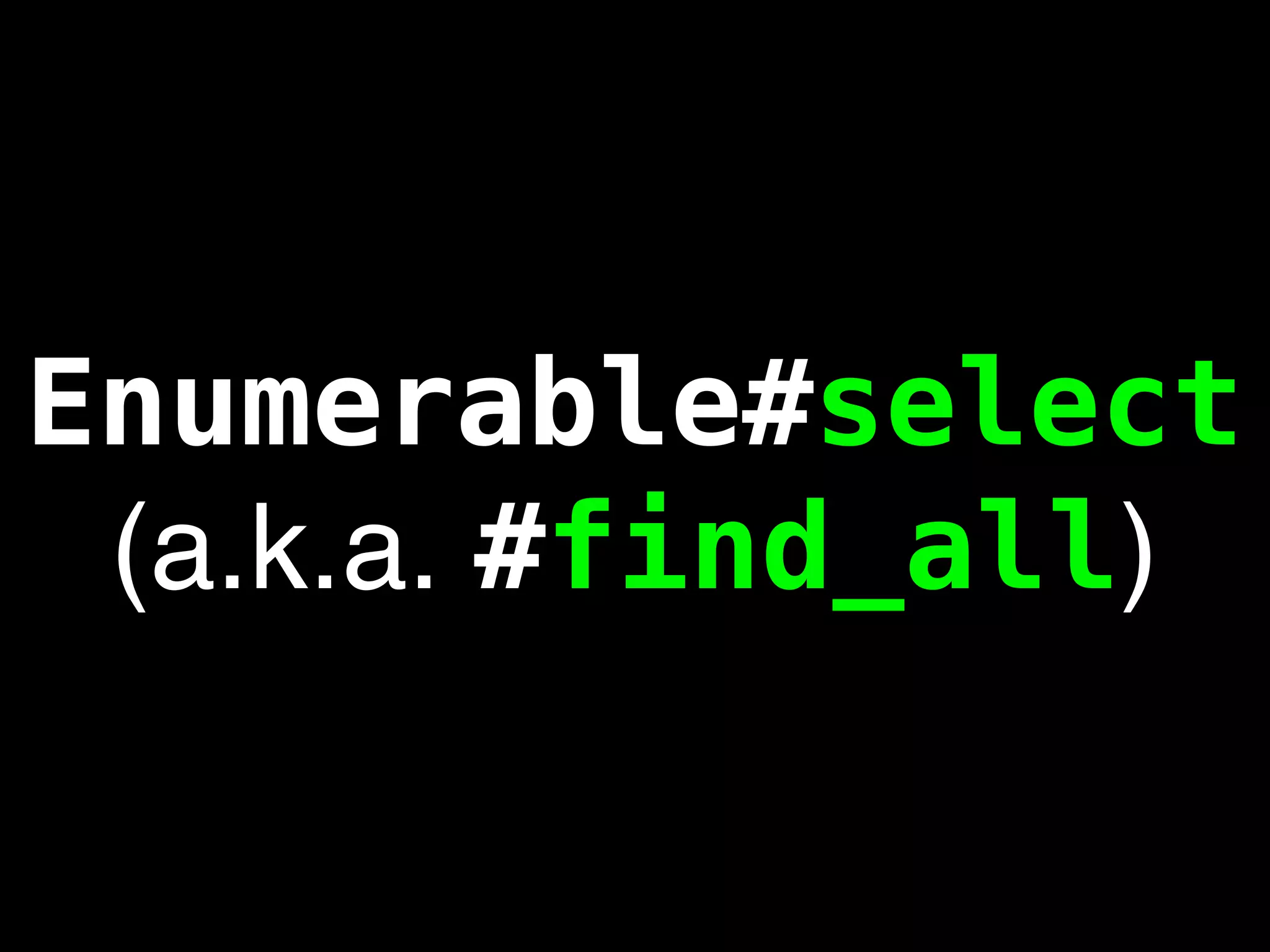
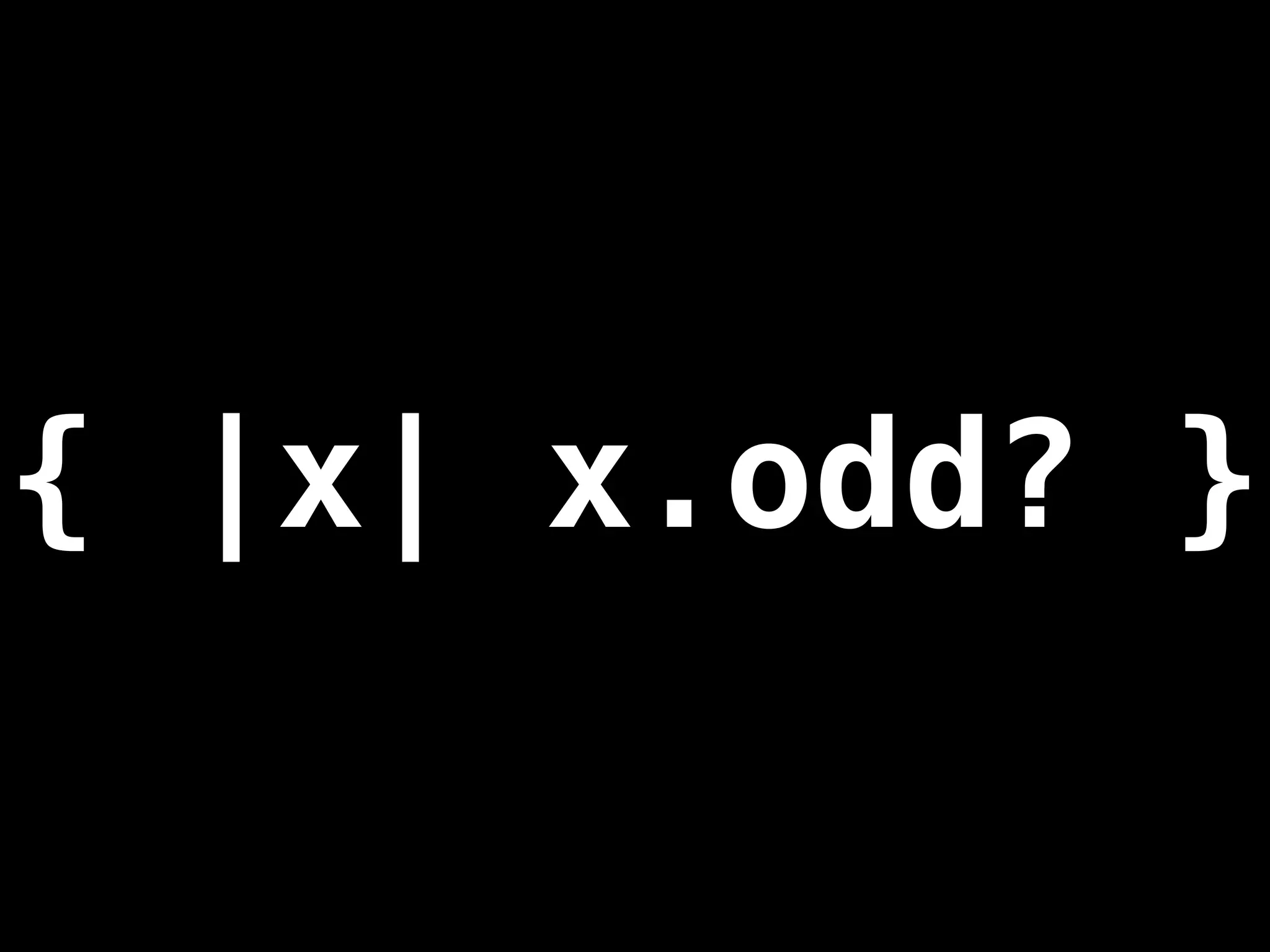
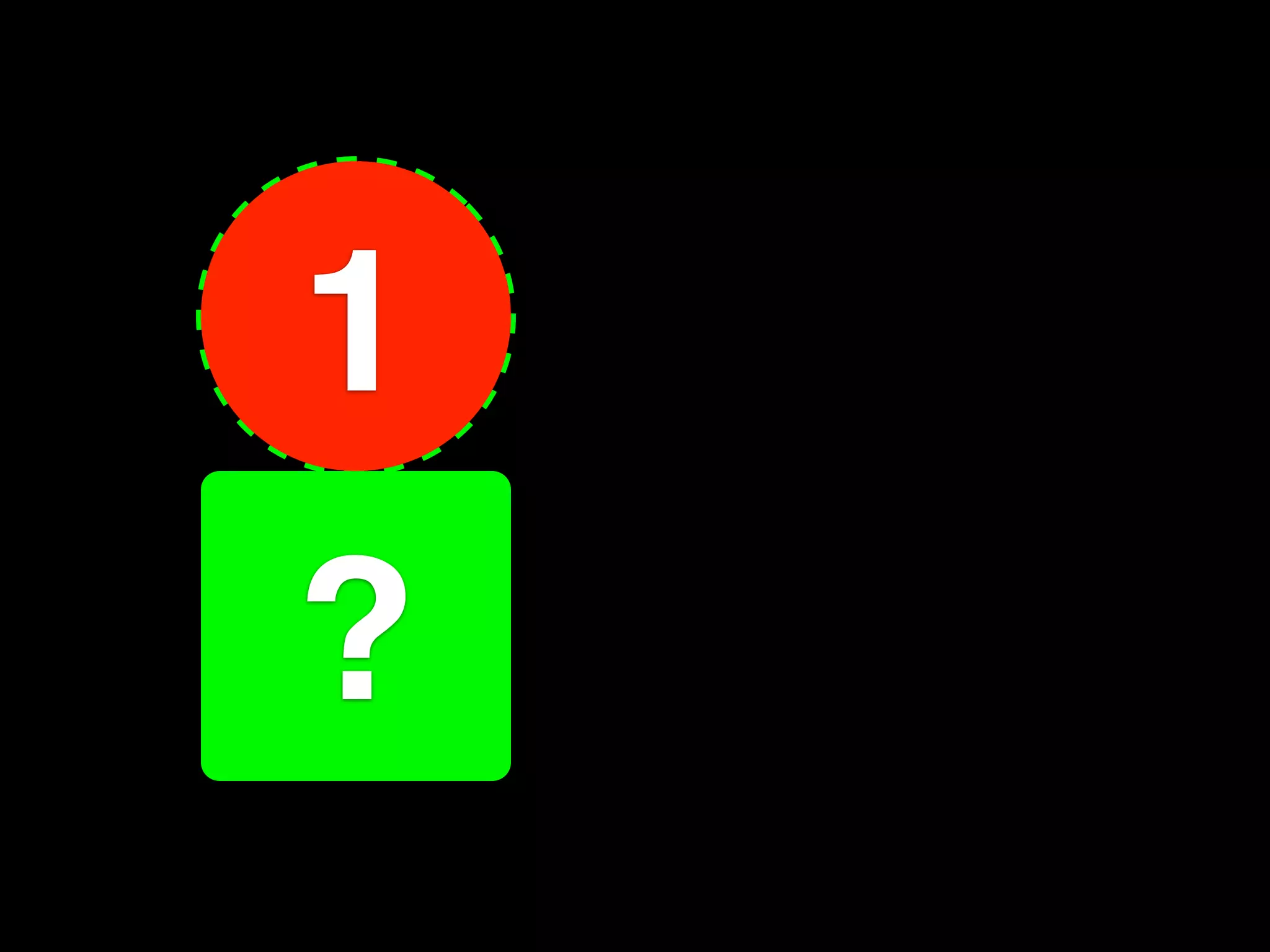
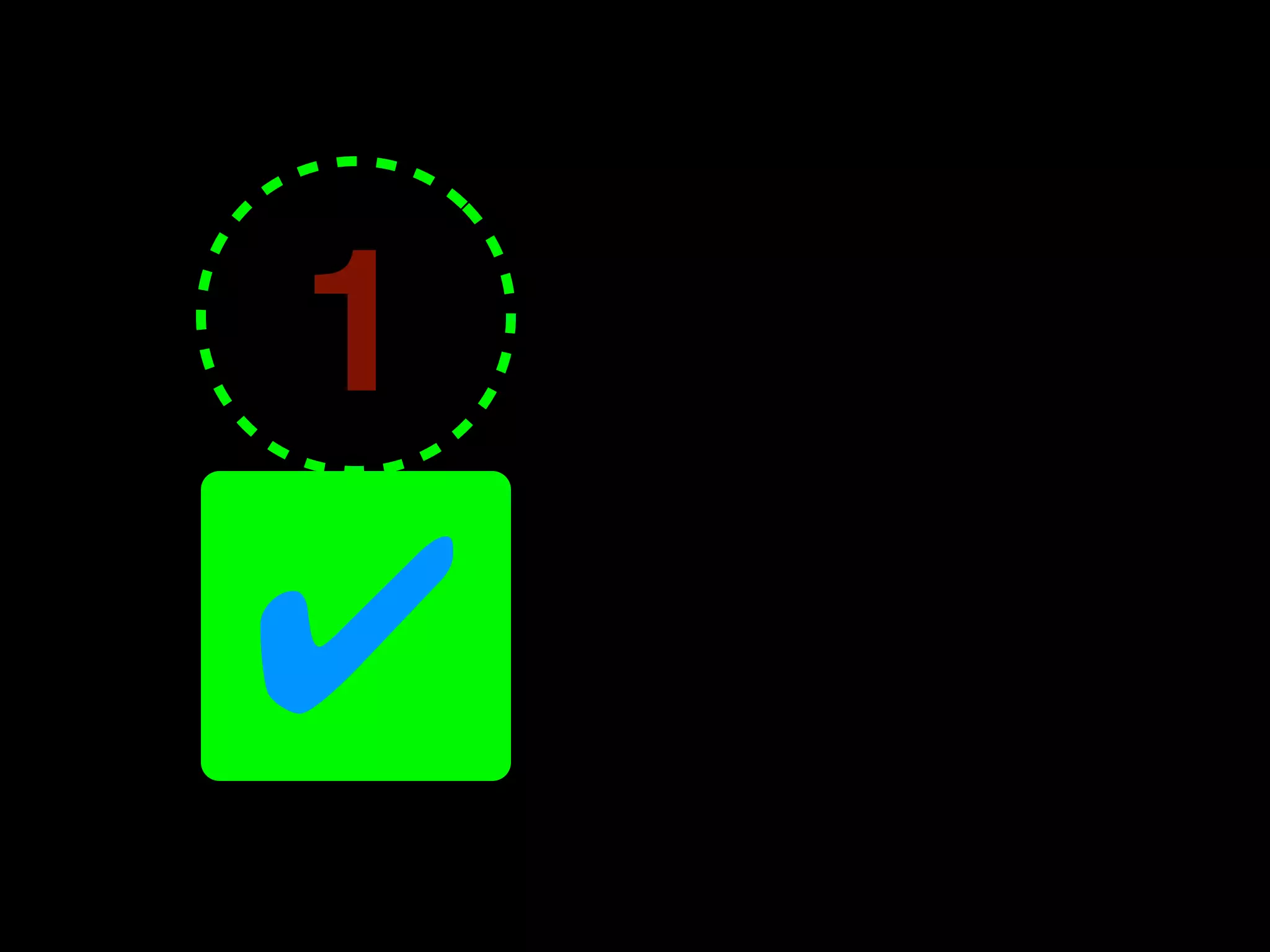
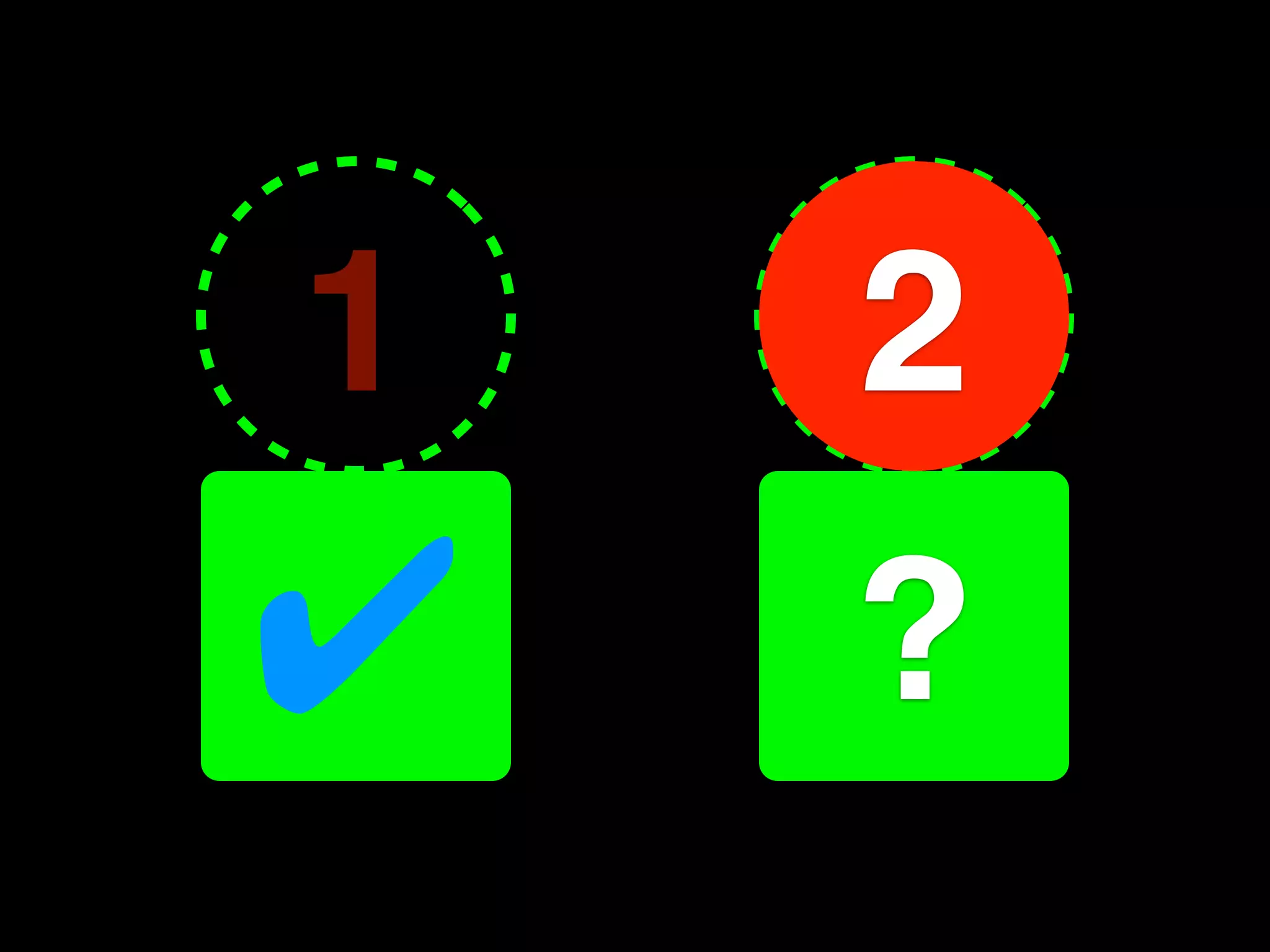
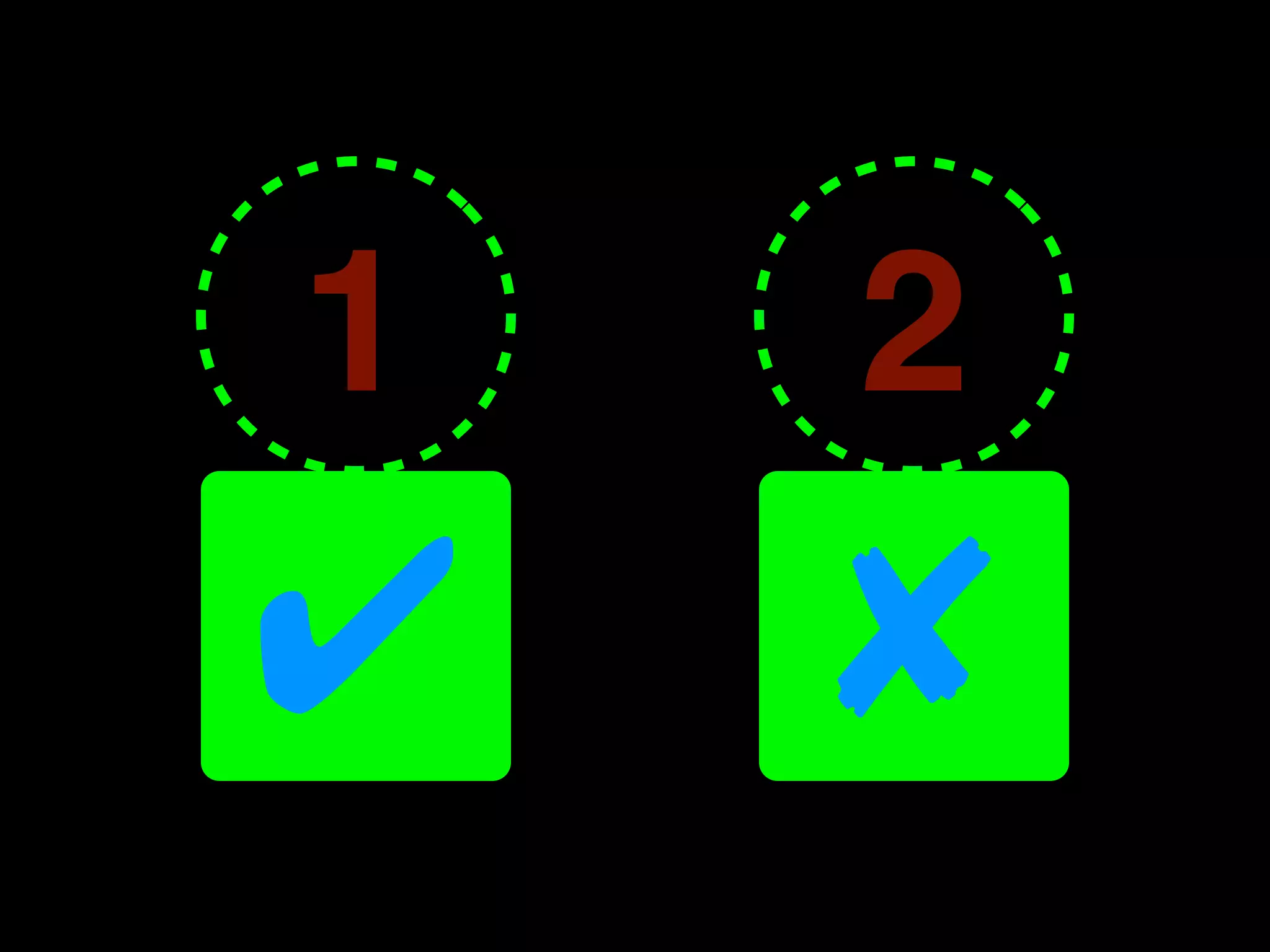
![[1, 2, 3, 4].
select { |x| x.odd? }](https://image.slidesharecdn.com/thinking-functionally-in-ruby-091016082812-phpapp02/75/Thinking-Functionally-In-Ruby-51-2048.jpg)
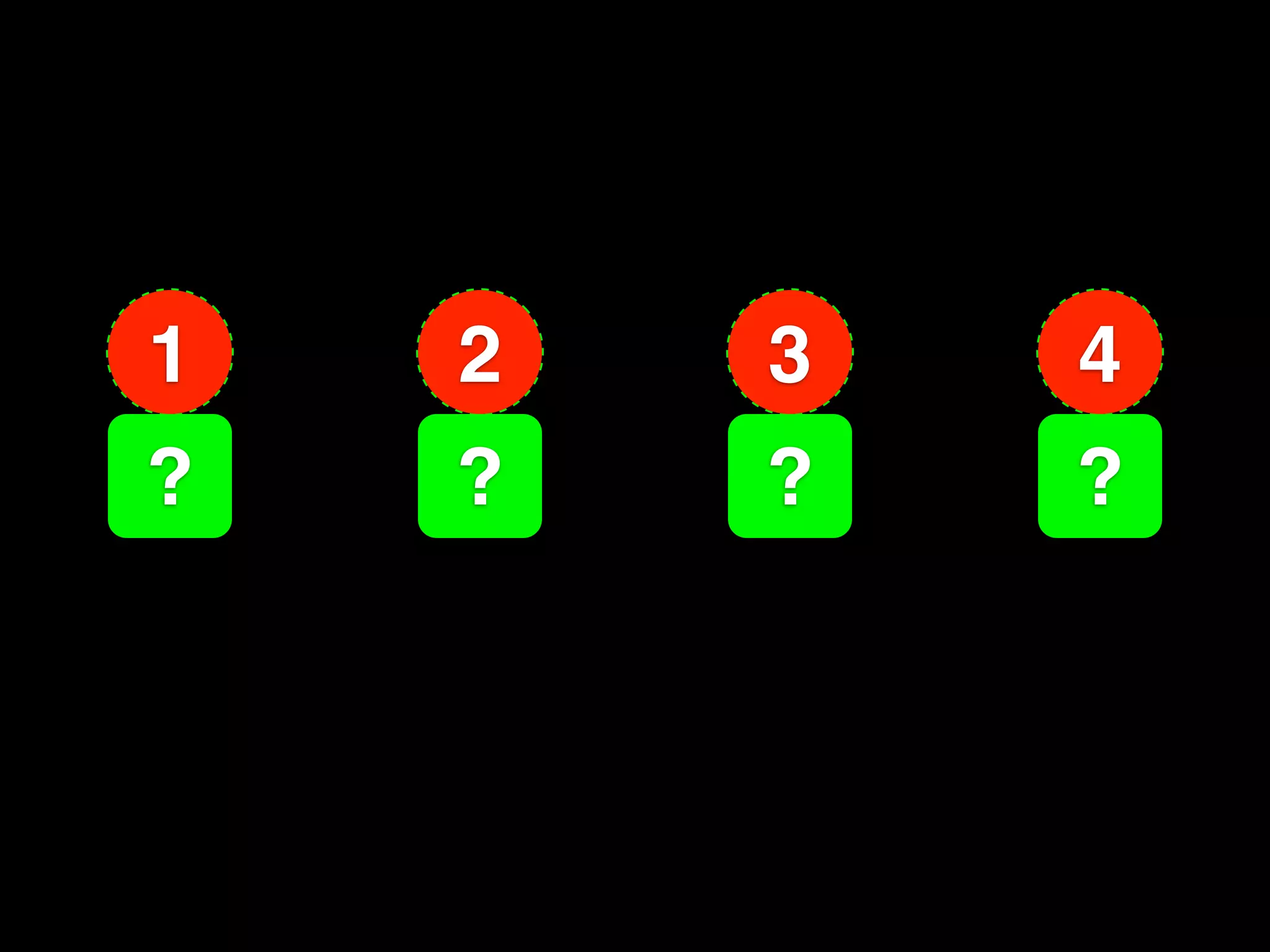
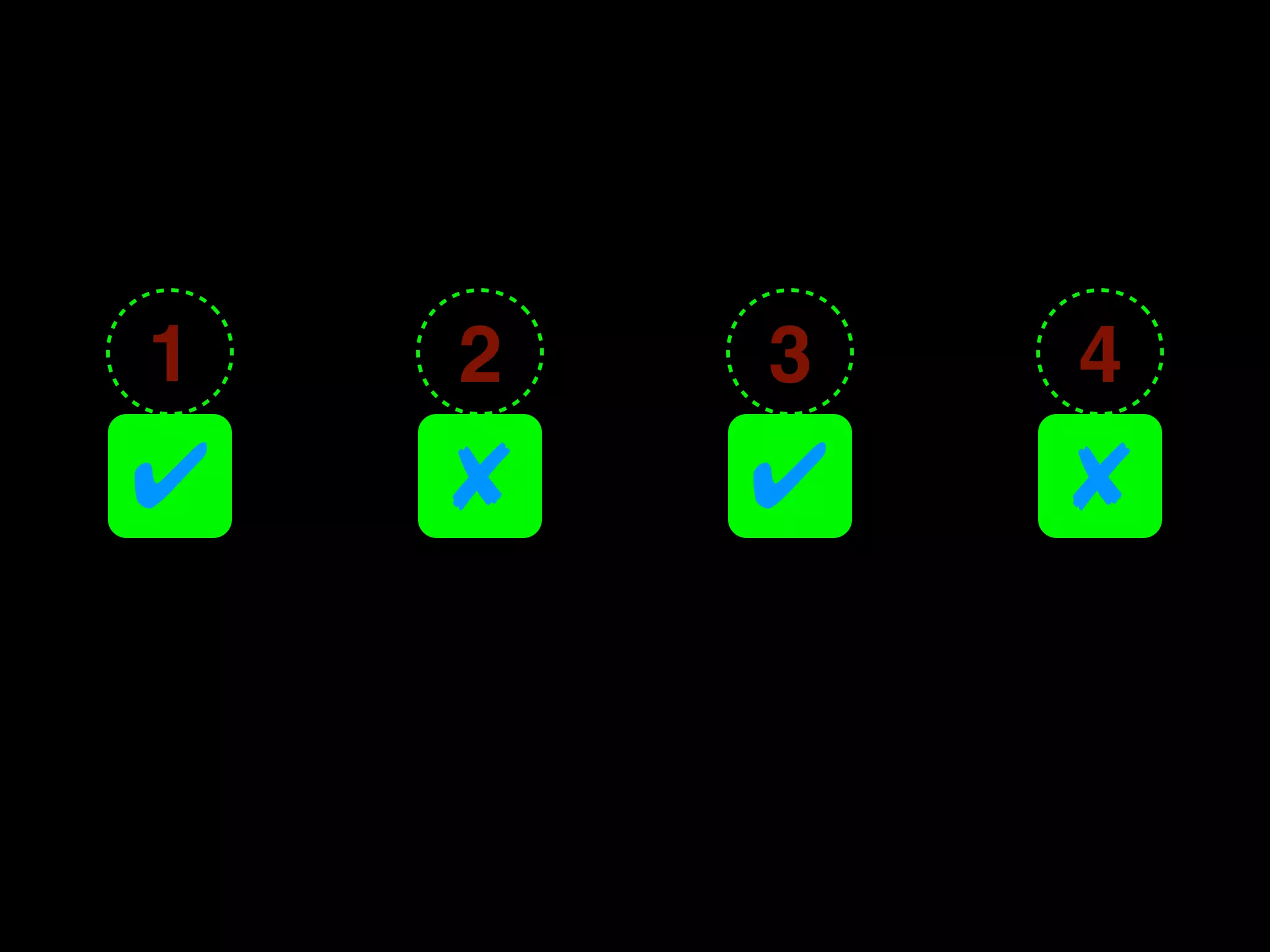
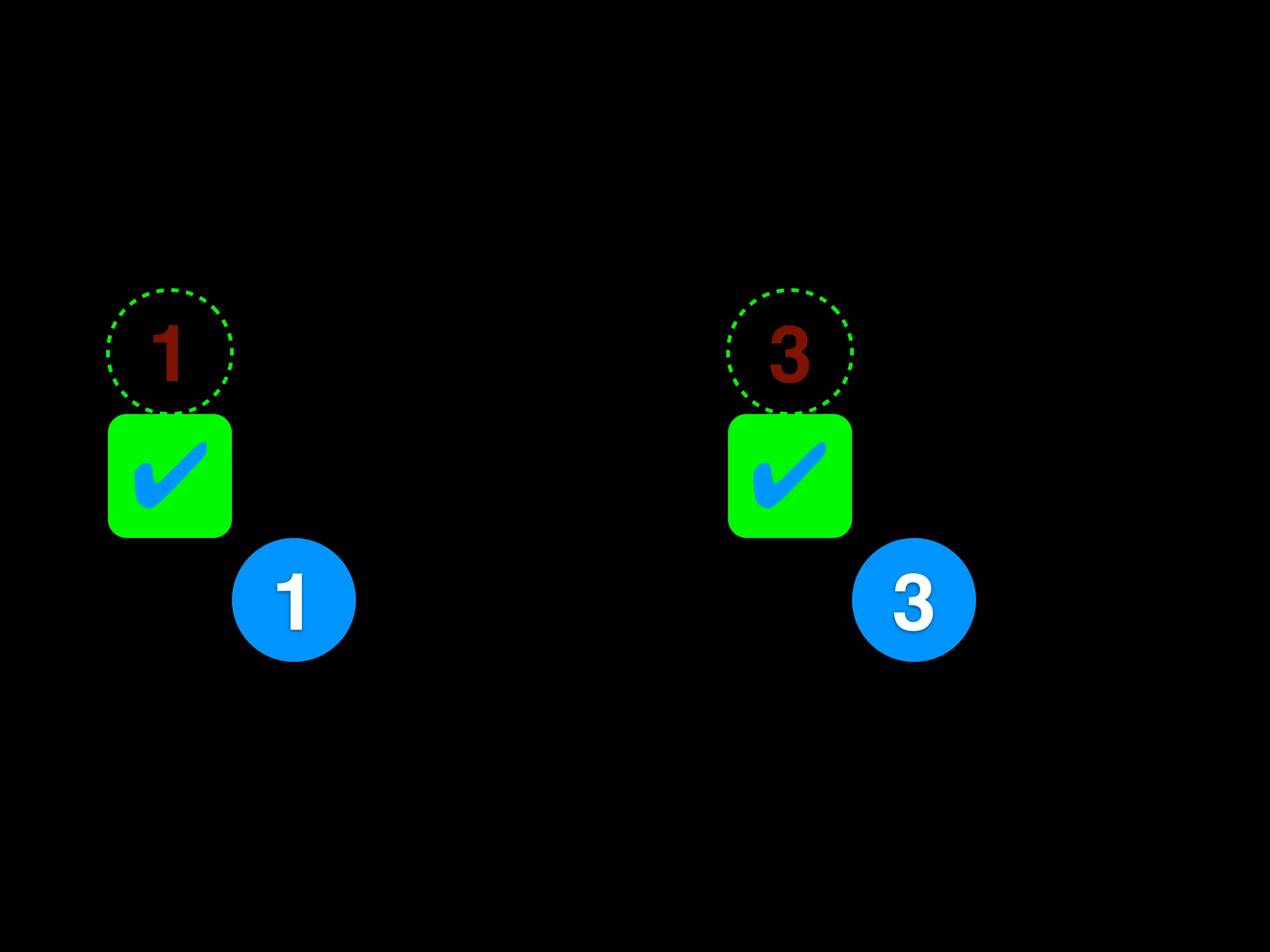
![[ 1, 3 ]](https://image.slidesharecdn.com/thinking-functionally-in-ruby-091016082812-phpapp02/75/Thinking-Functionally-In-Ruby-55-2048.jpg)
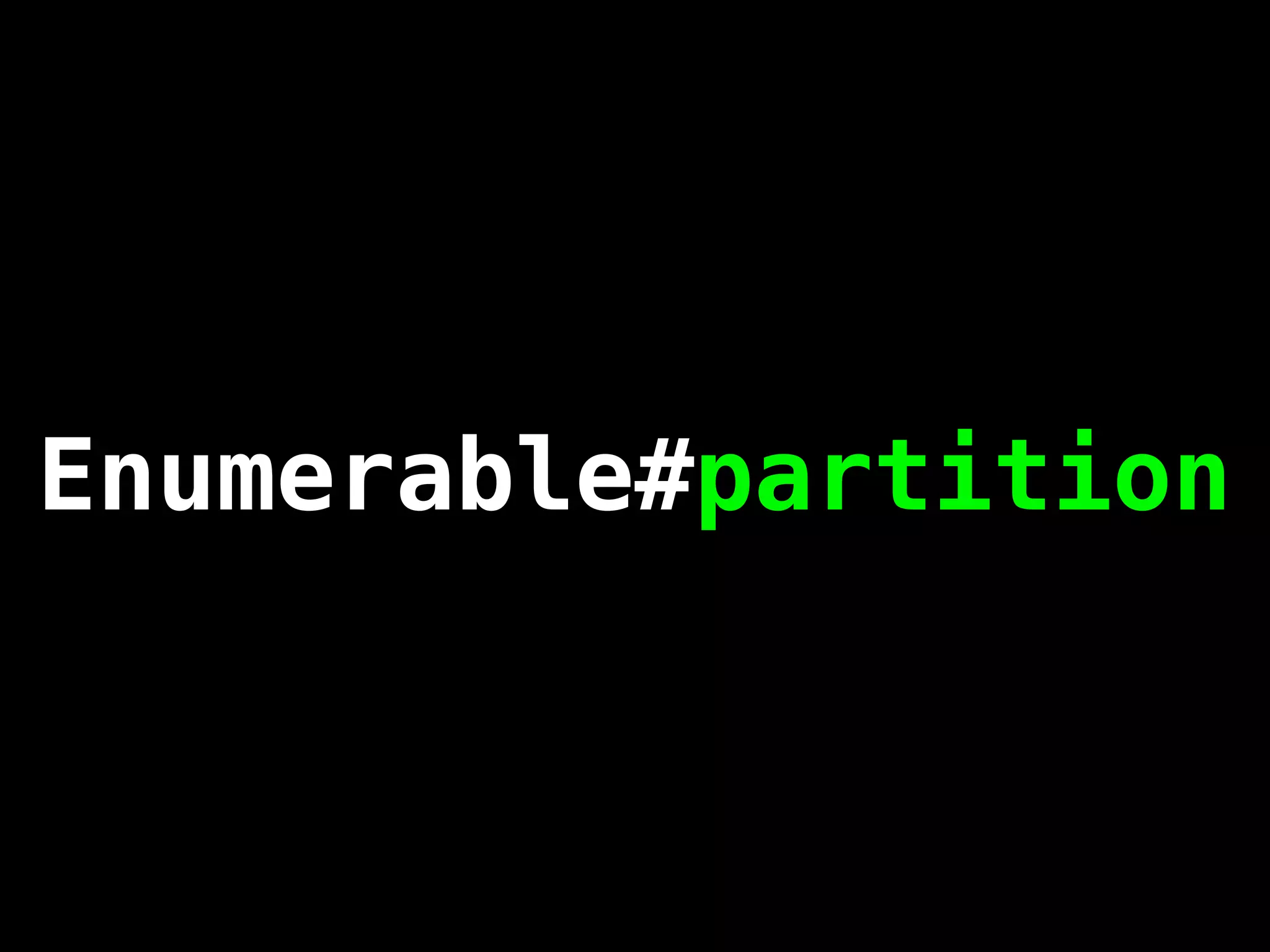
![[1, 2, 3, 4].
partition { |x| x.odd? }](https://image.slidesharecdn.com/thinking-functionally-in-ruby-091016082812-phpapp02/75/Thinking-Functionally-In-Ruby-57-2048.jpg)
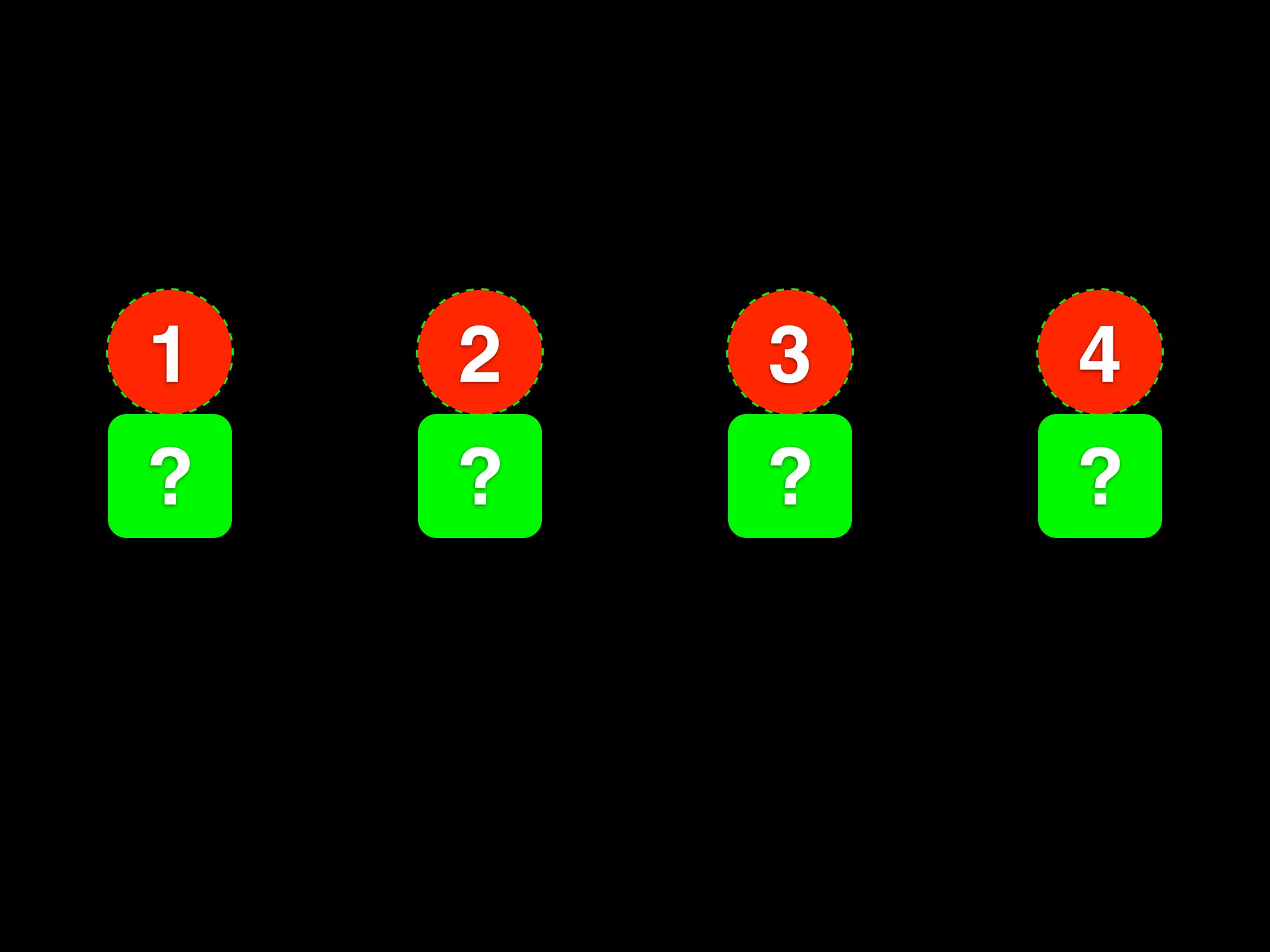
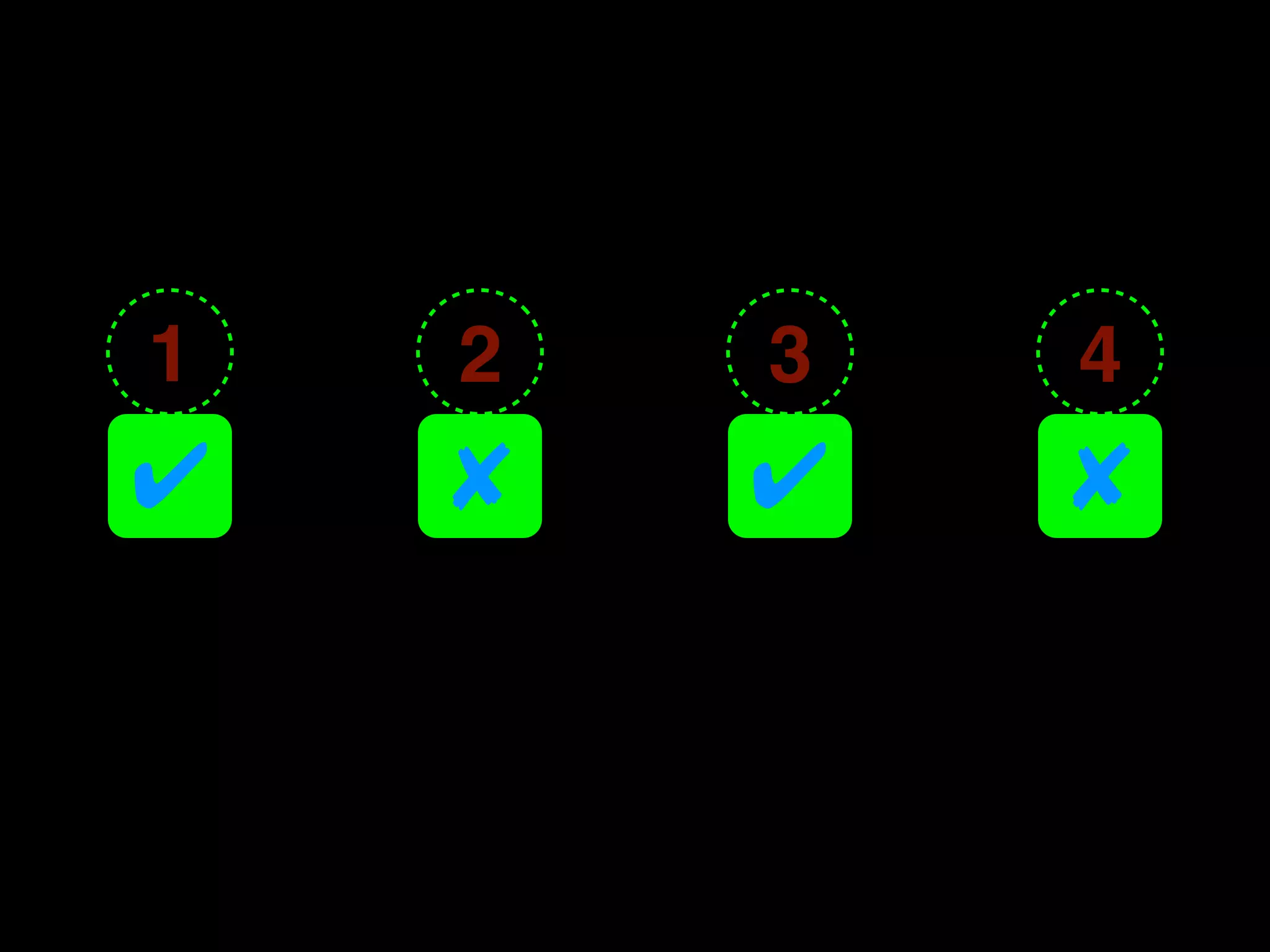
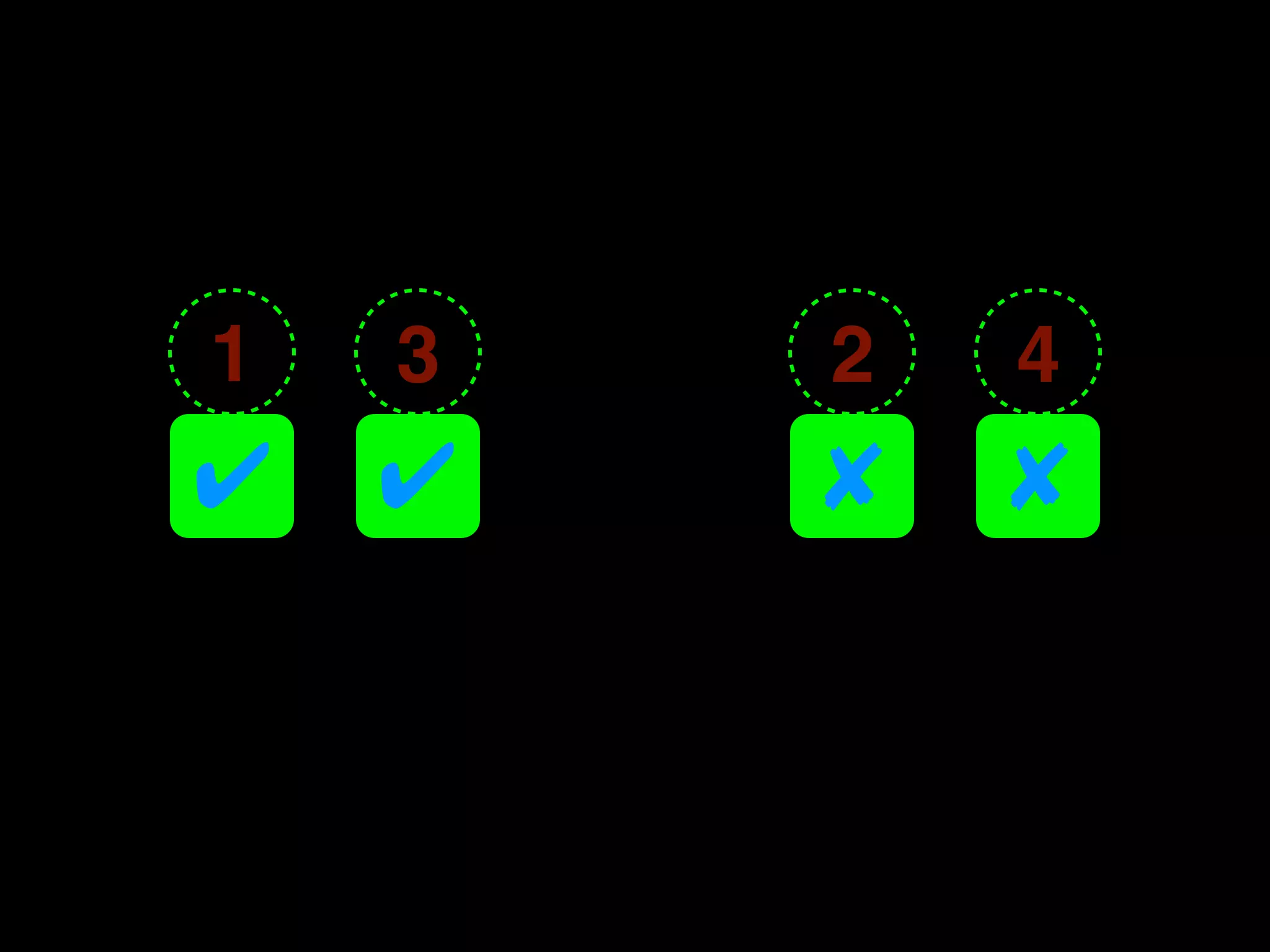
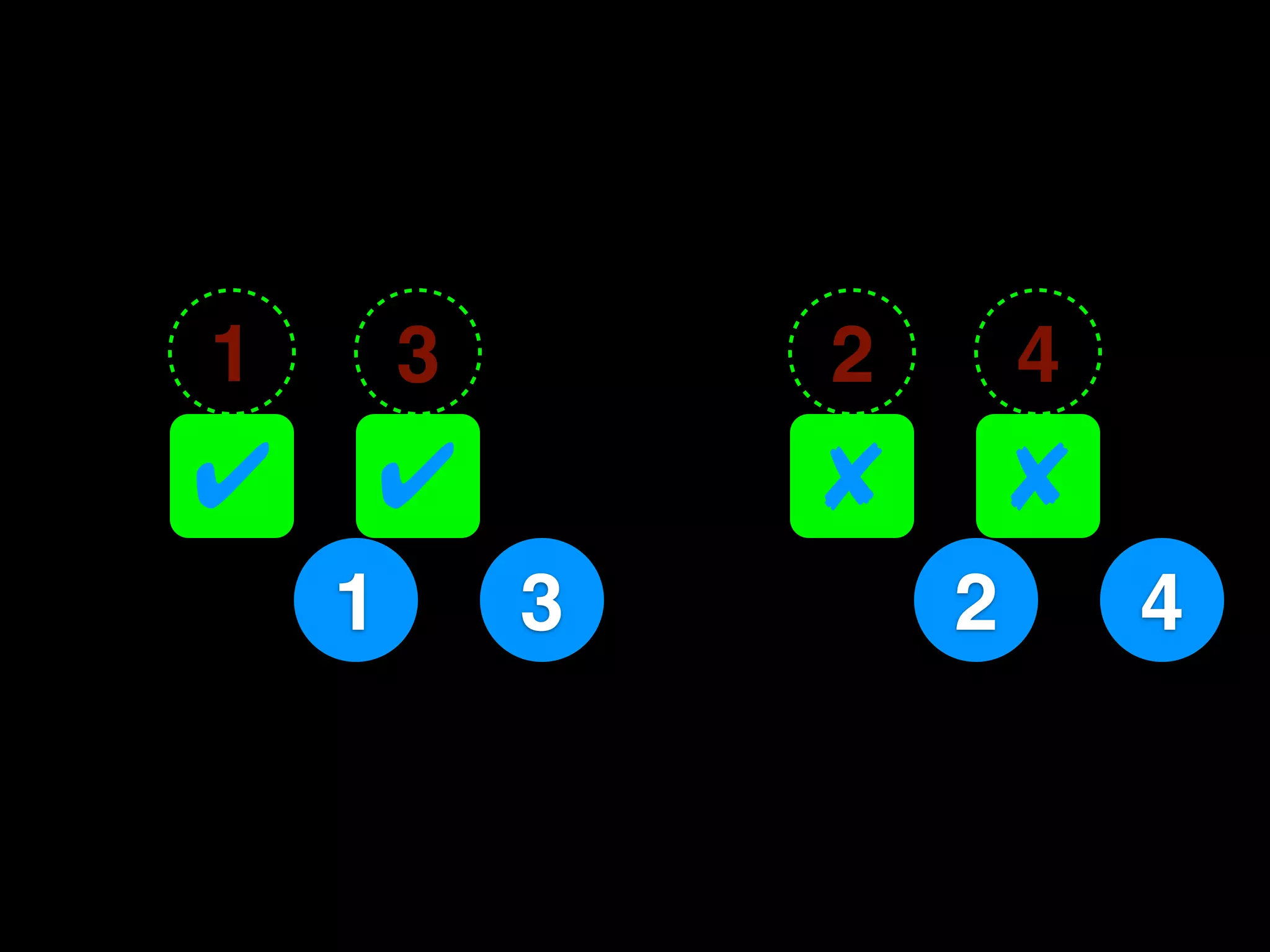
![[[ 1 , 3 ] , [ 2 , 4 ]]](https://image.slidesharecdn.com/thinking-functionally-in-ruby-091016082812-phpapp02/75/Thinking-Functionally-In-Ruby-62-2048.jpg)
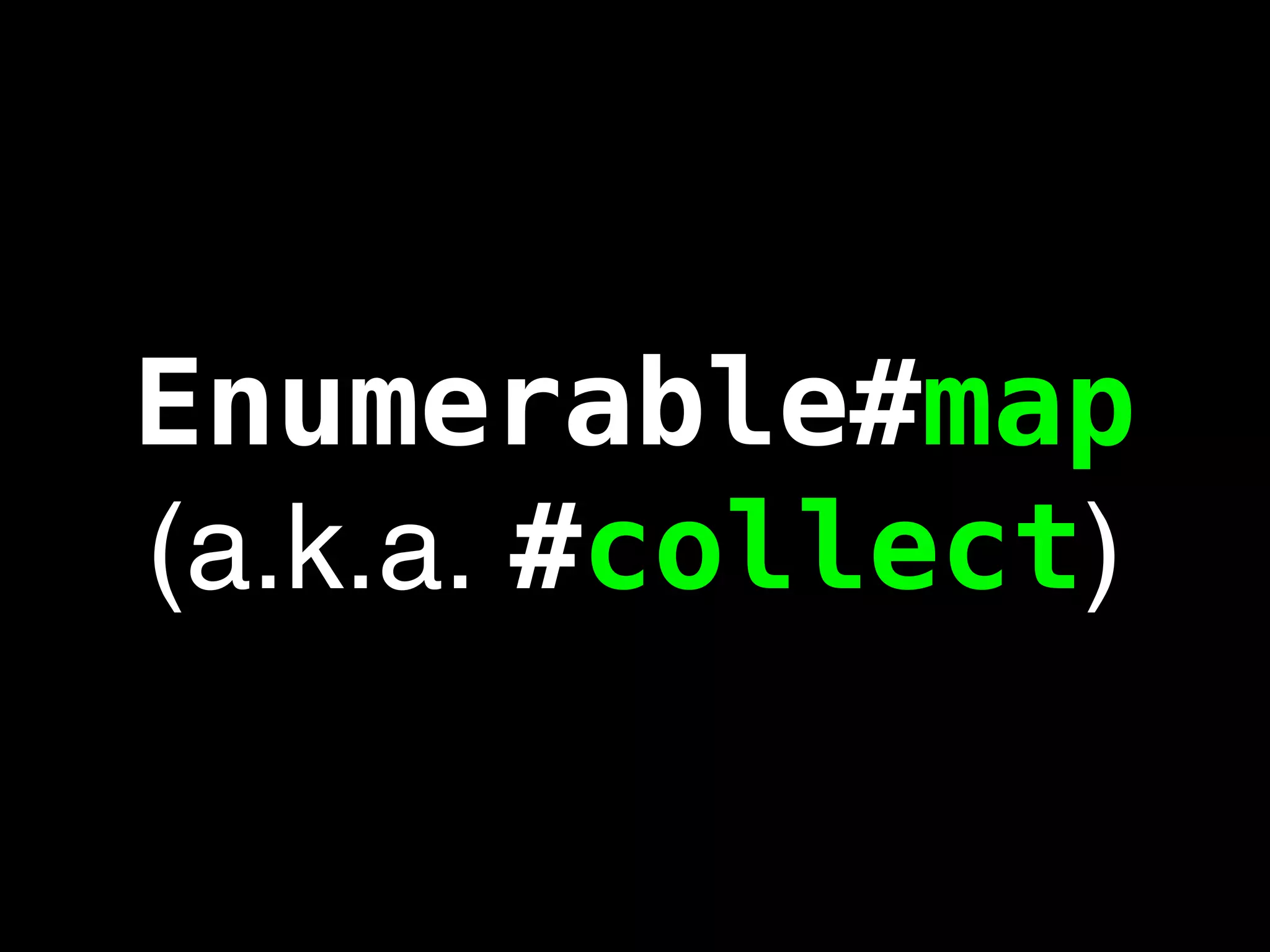
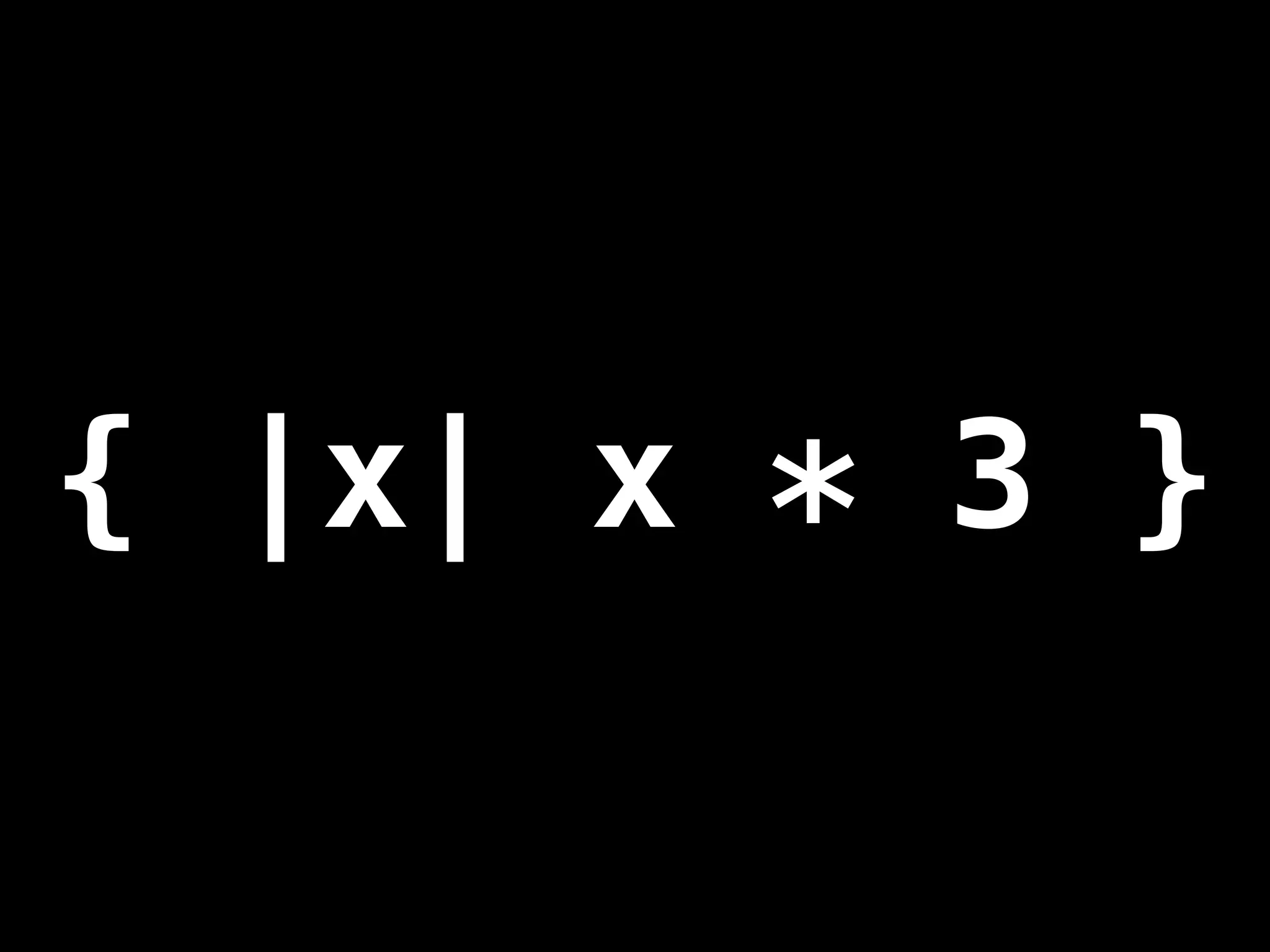
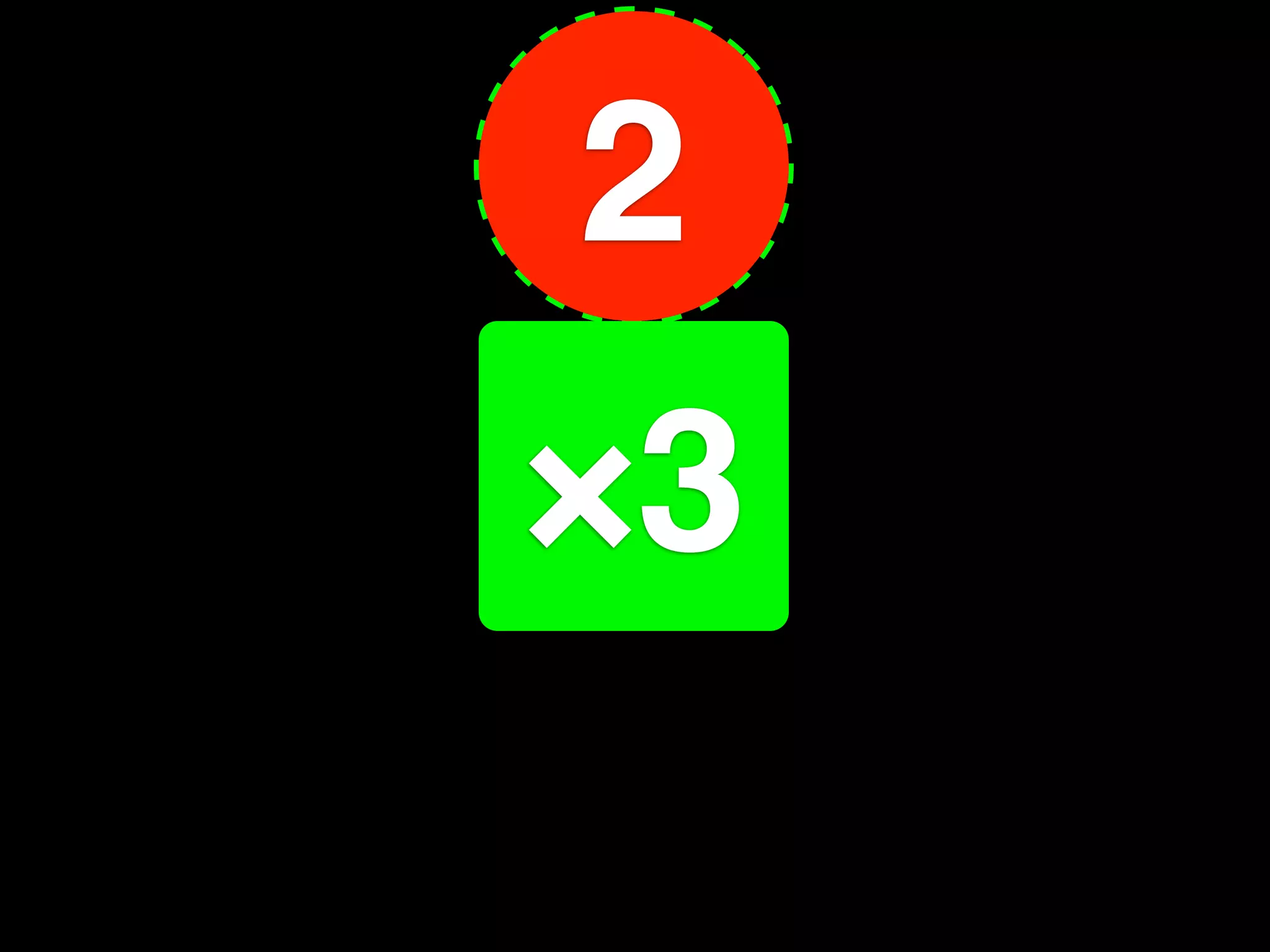
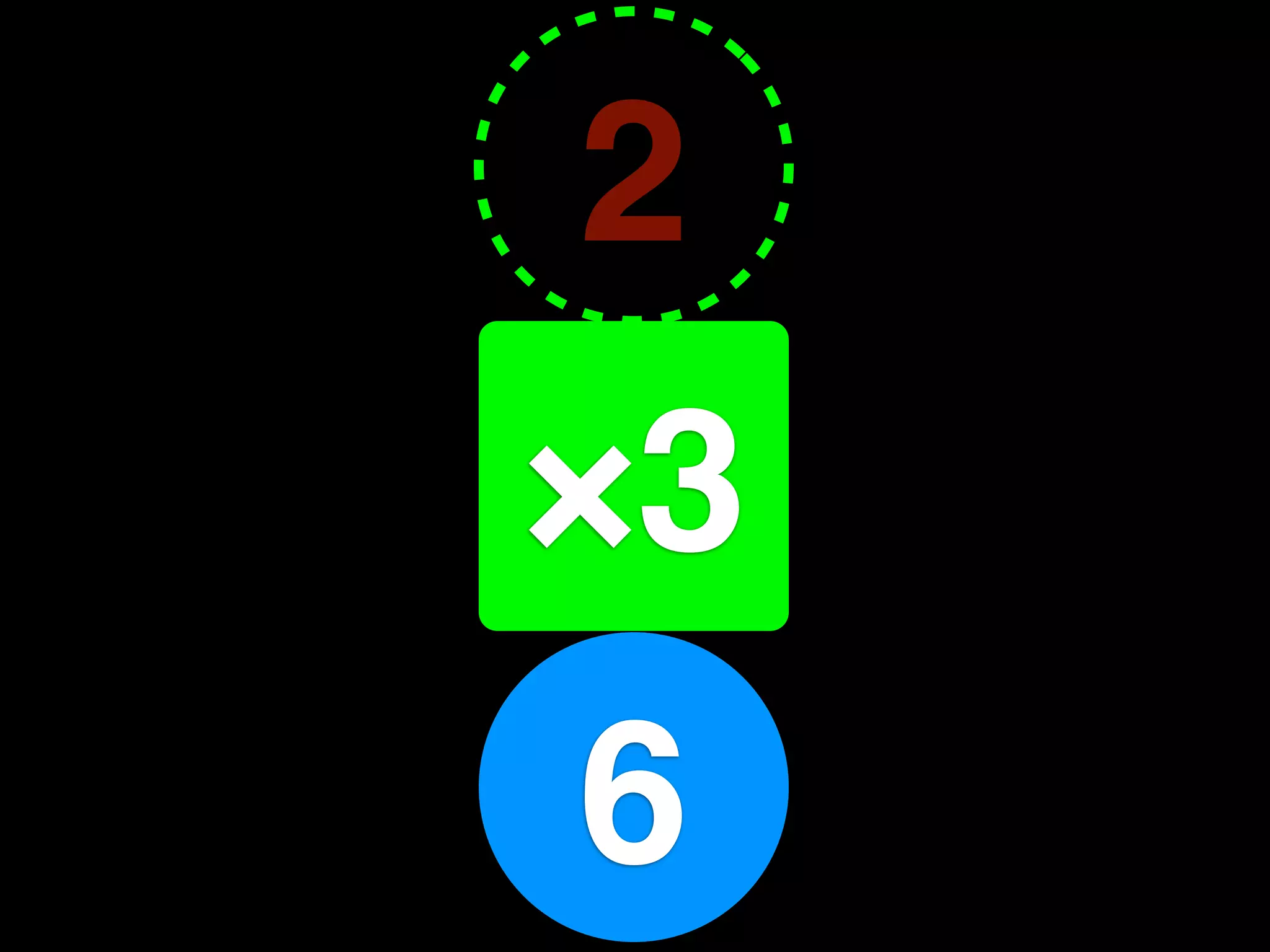
![[1, 2, 3, 4].
map { |x| x * 3 }](https://image.slidesharecdn.com/thinking-functionally-in-ruby-091016082812-phpapp02/75/Thinking-Functionally-In-Ruby-67-2048.jpg)
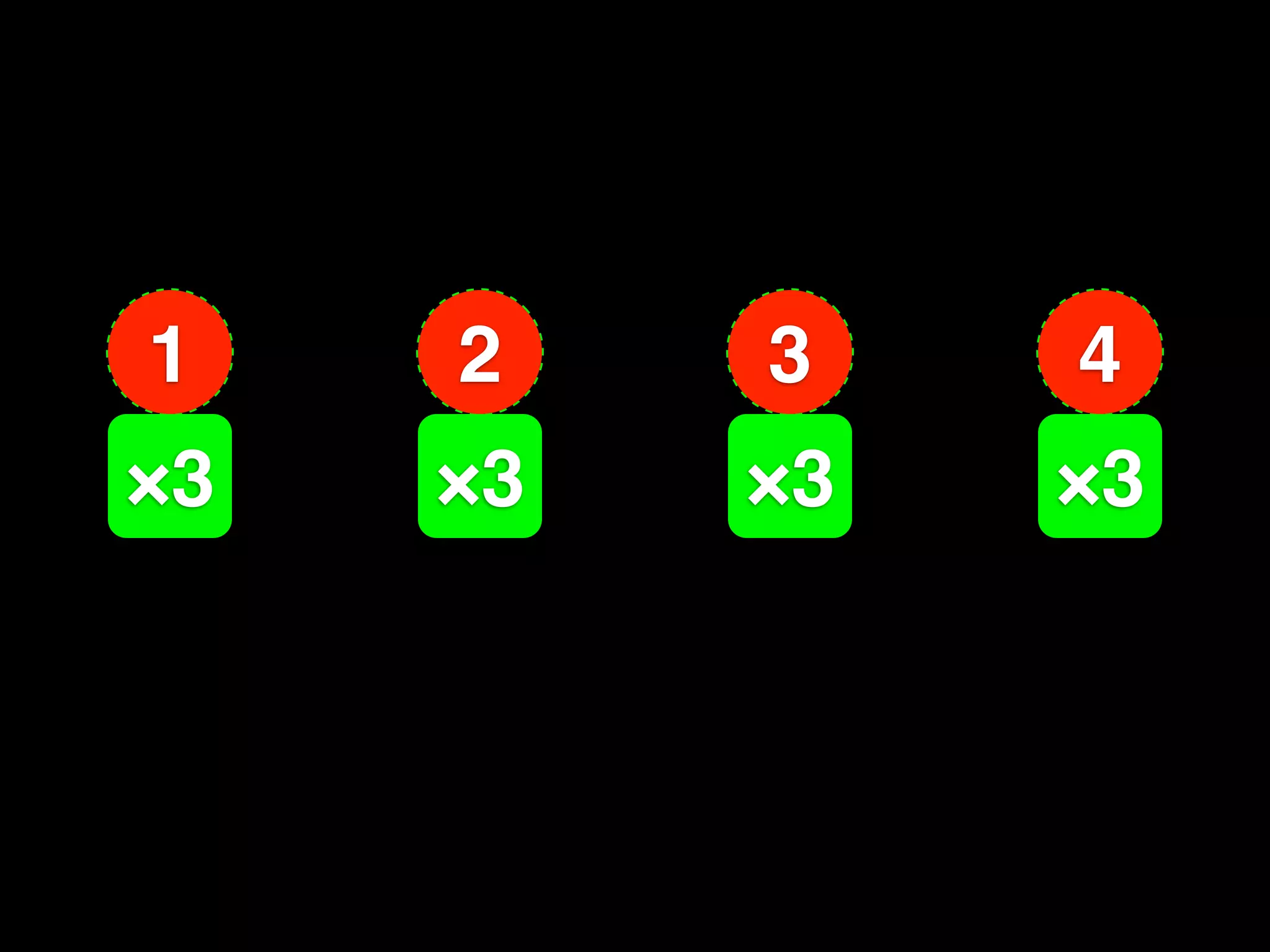
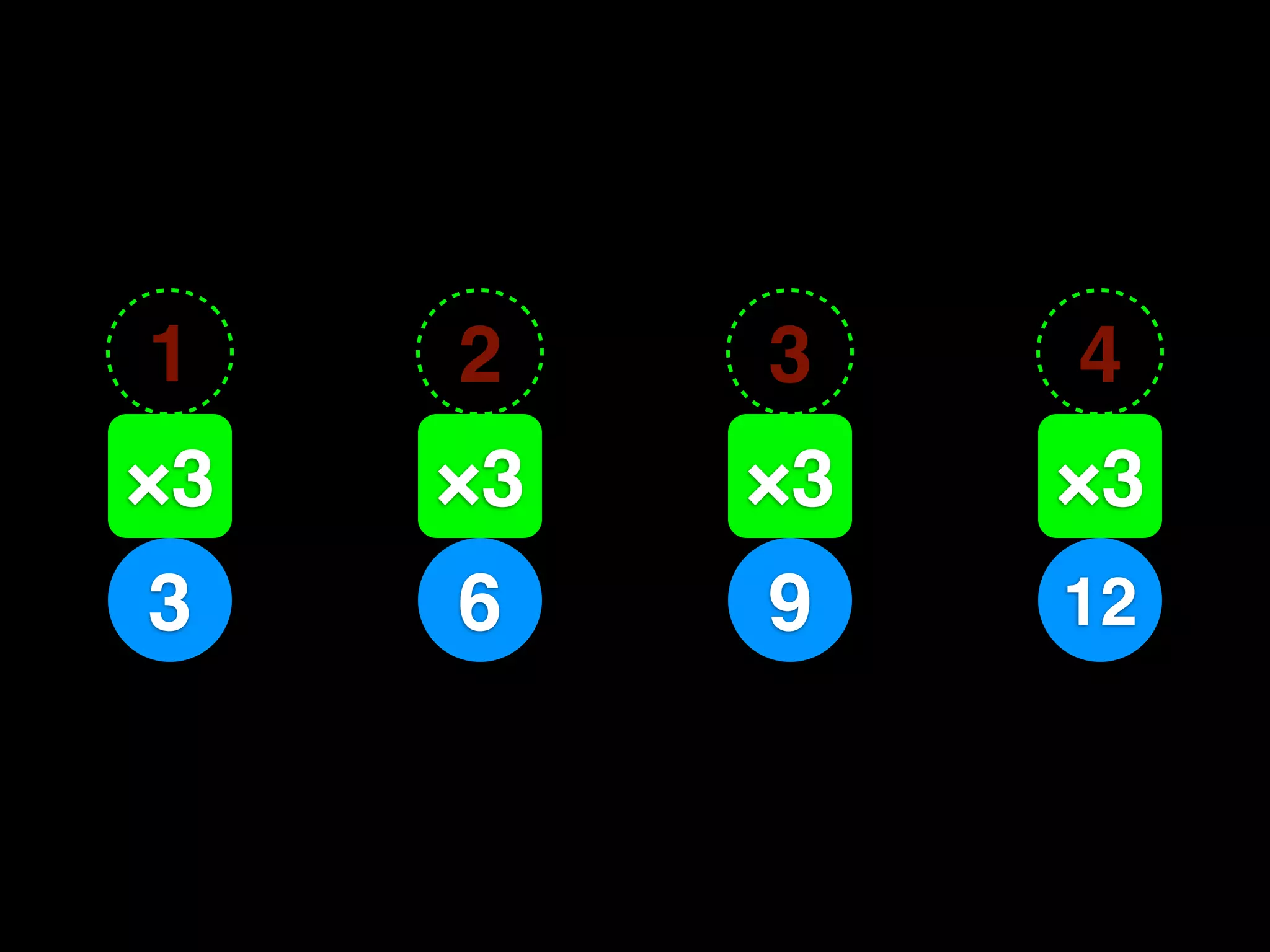
![[ , , , ]
3 6 9 12](https://image.slidesharecdn.com/thinking-functionally-in-ruby-091016082812-phpapp02/75/Thinking-Functionally-In-Ruby-70-2048.jpg)
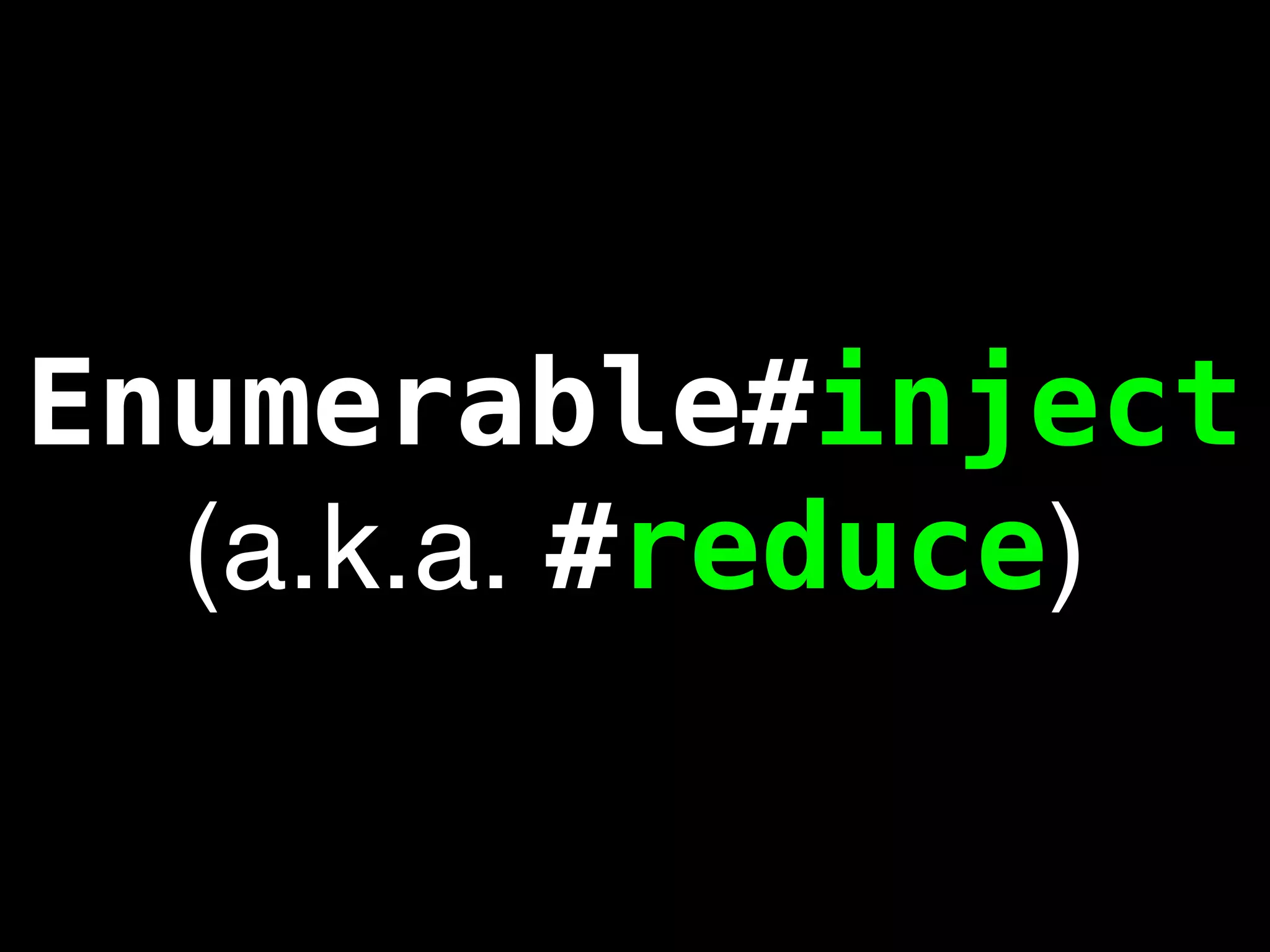
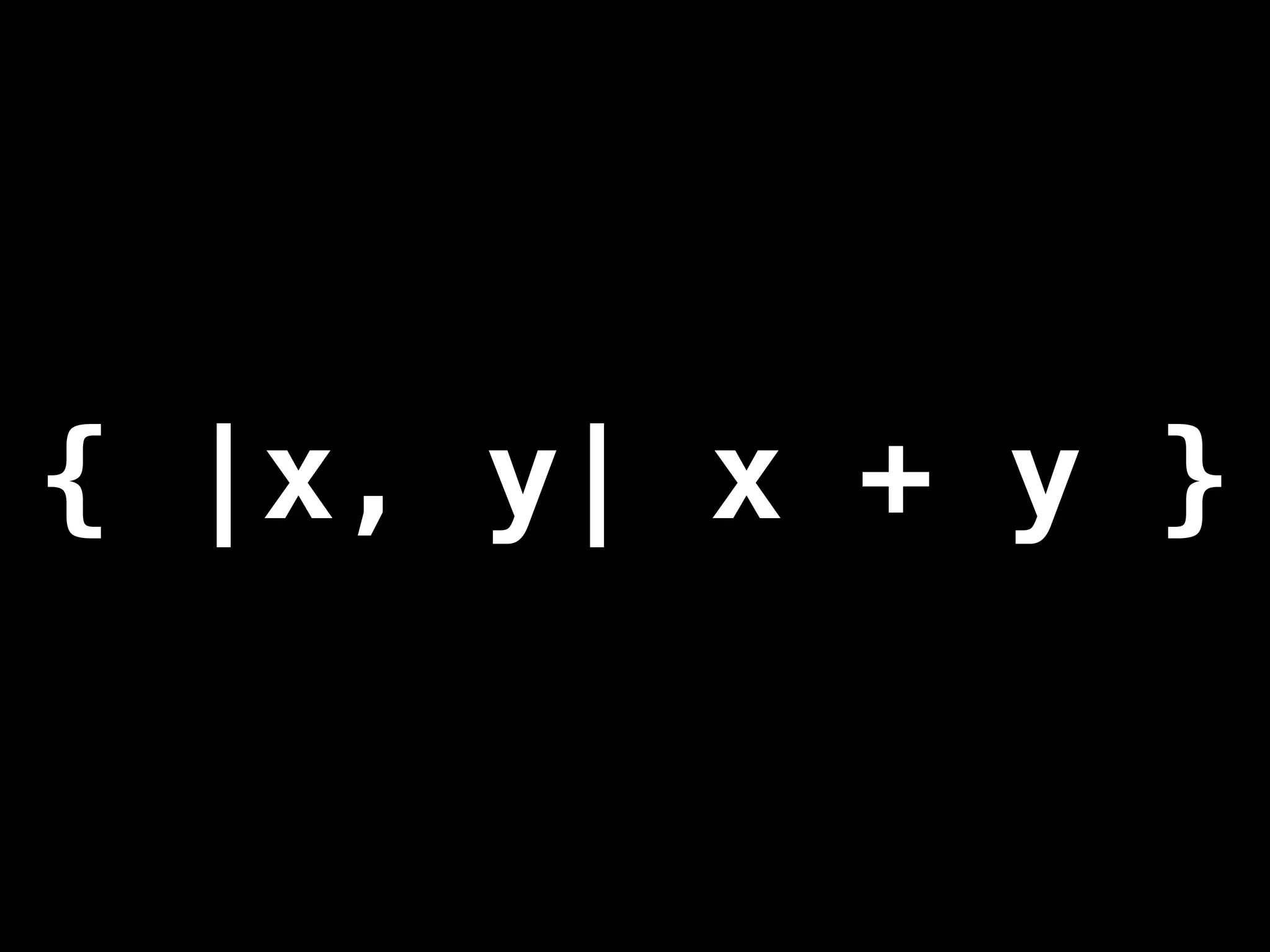
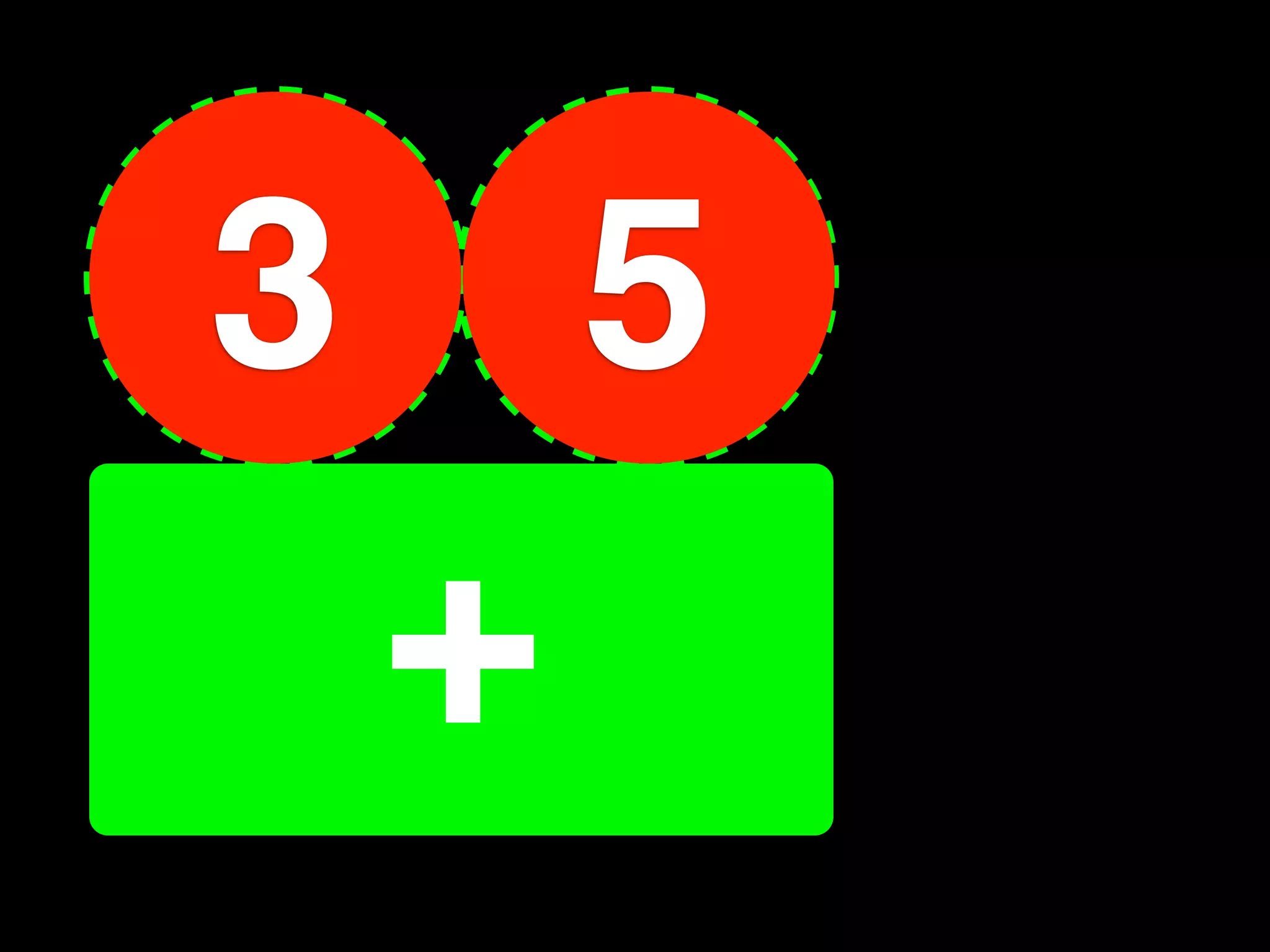
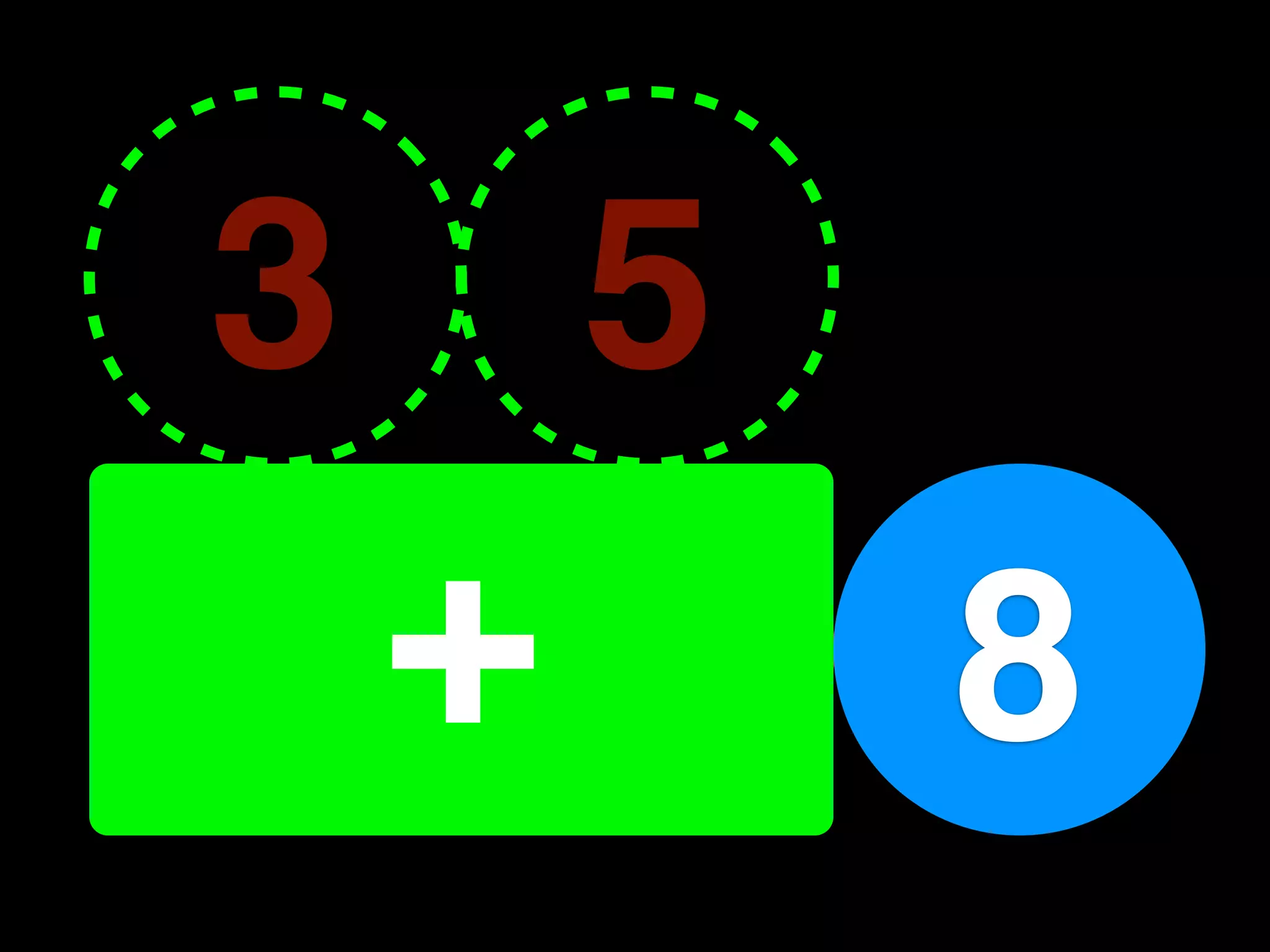
![[1, 2, 3, 4].
inject(0) { |x,y| x+y }](https://image.slidesharecdn.com/thinking-functionally-in-ruby-091016082812-phpapp02/75/Thinking-Functionally-In-Ruby-75-2048.jpg)
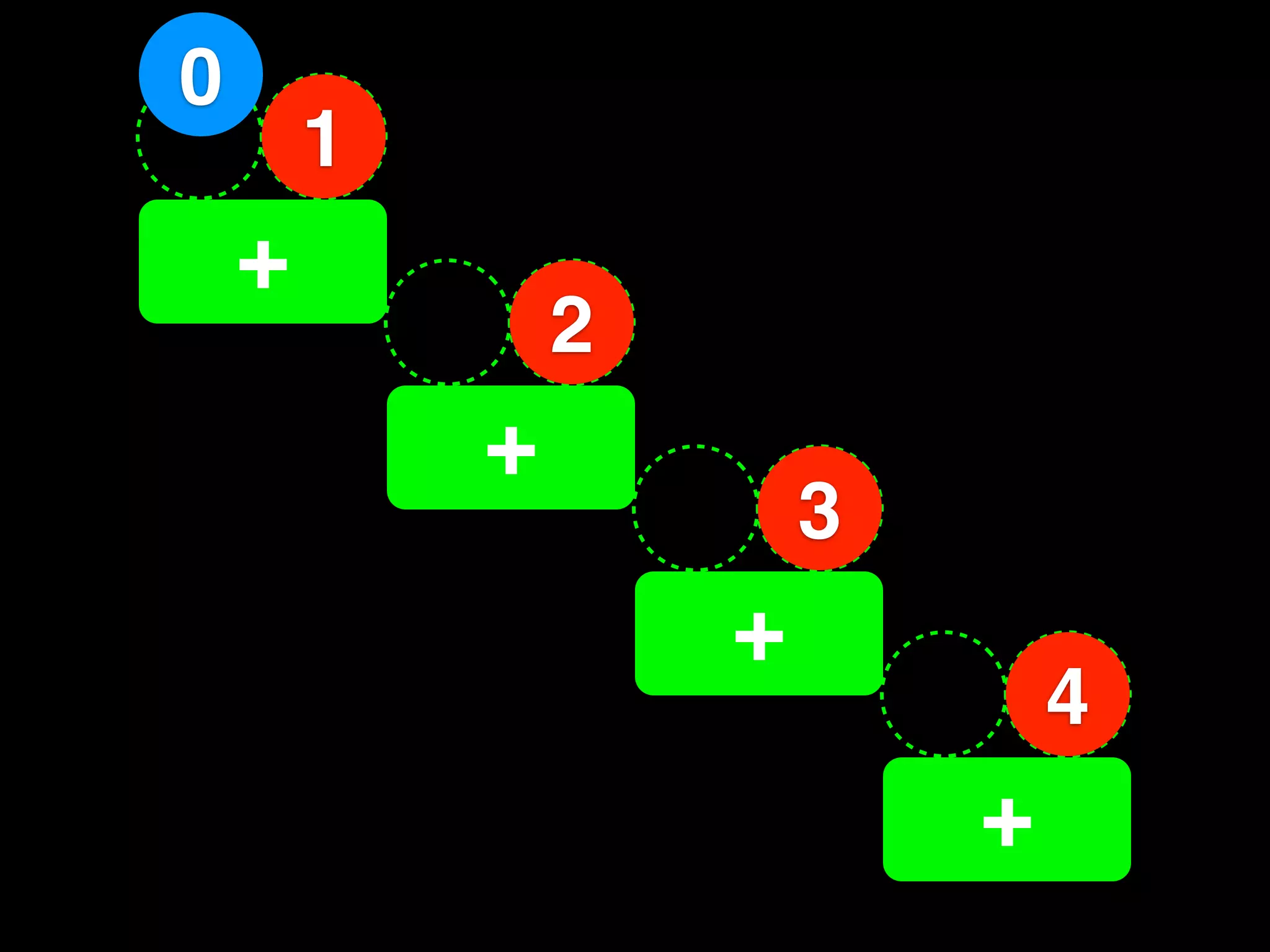
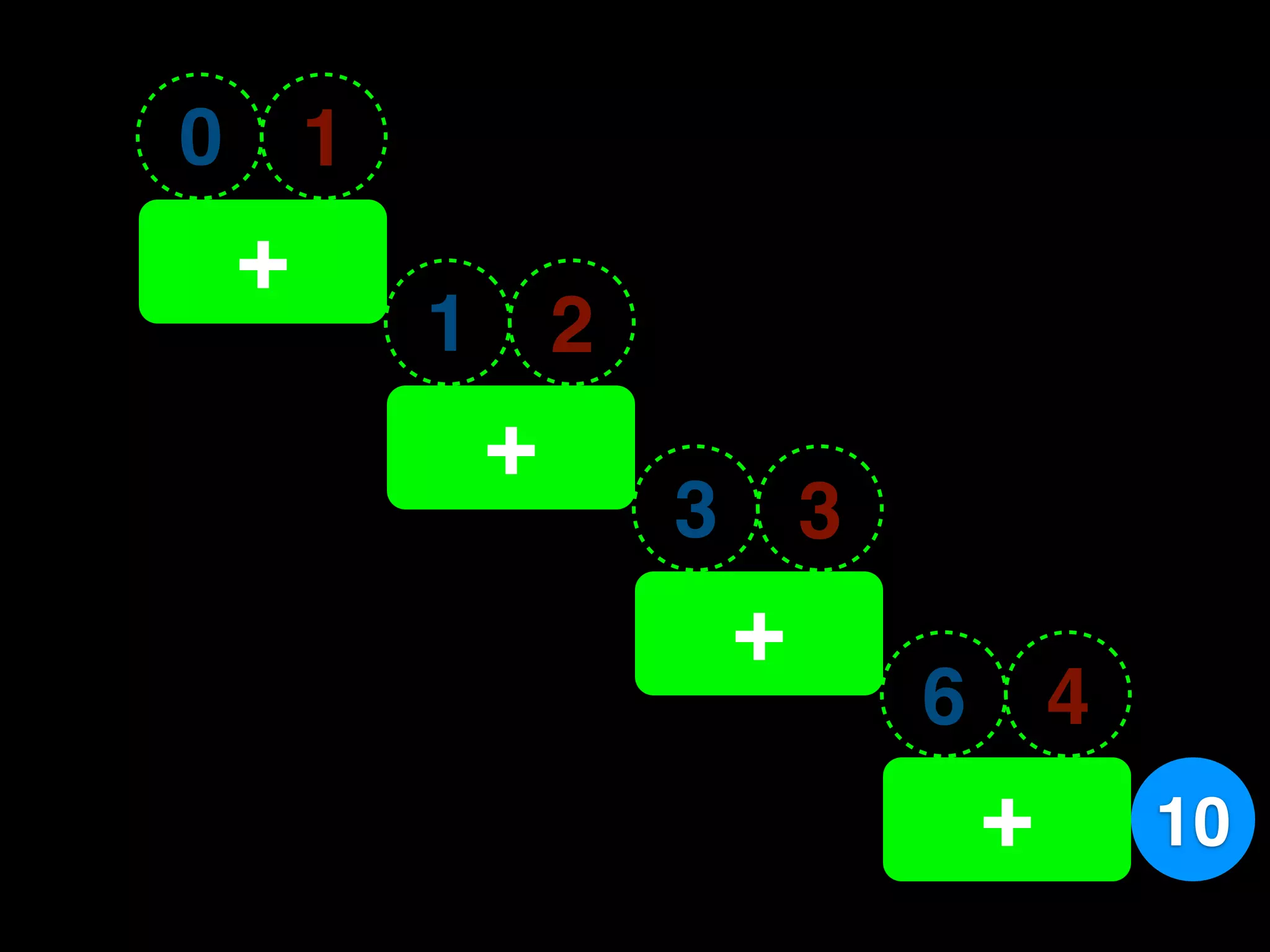
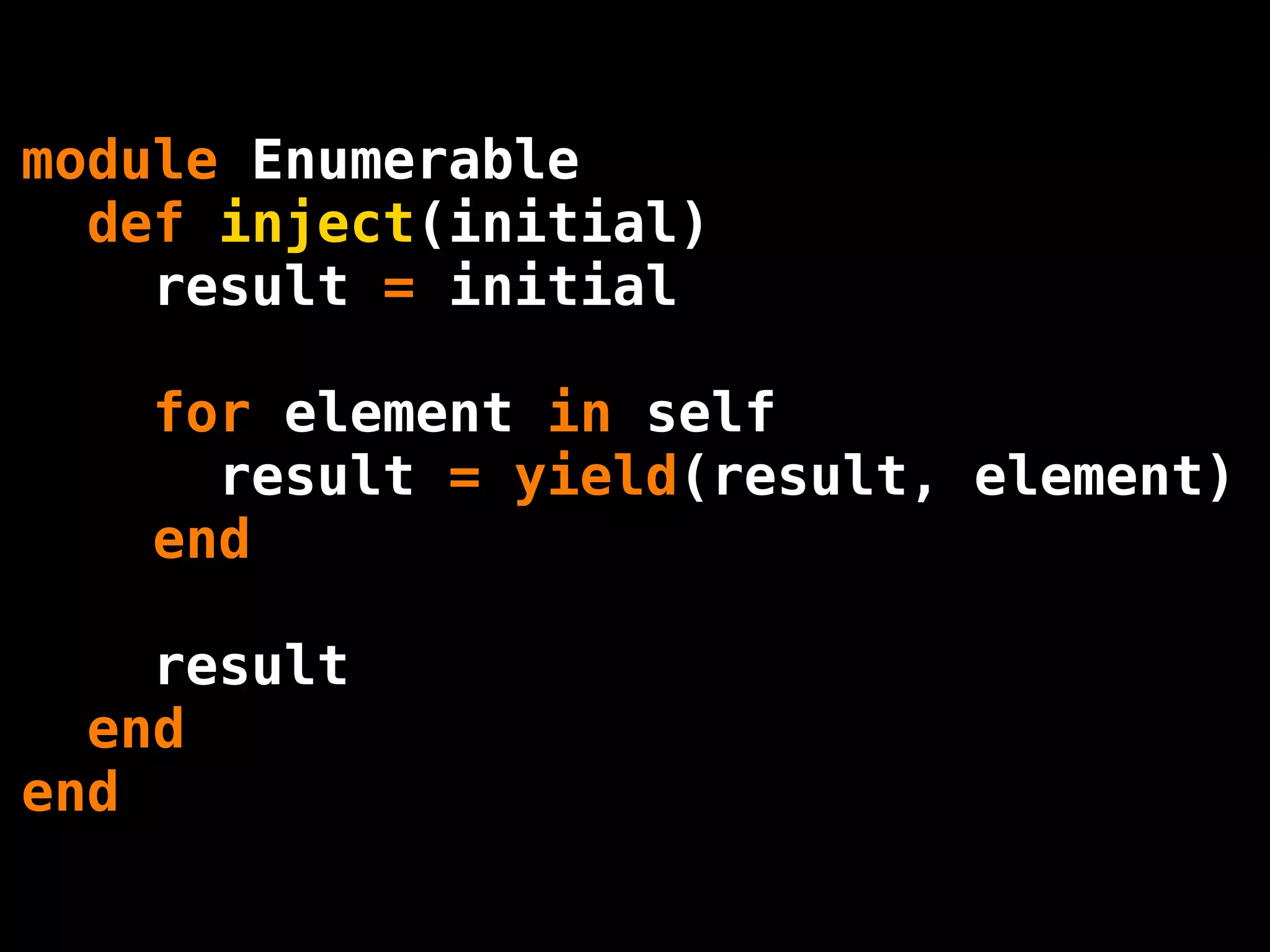
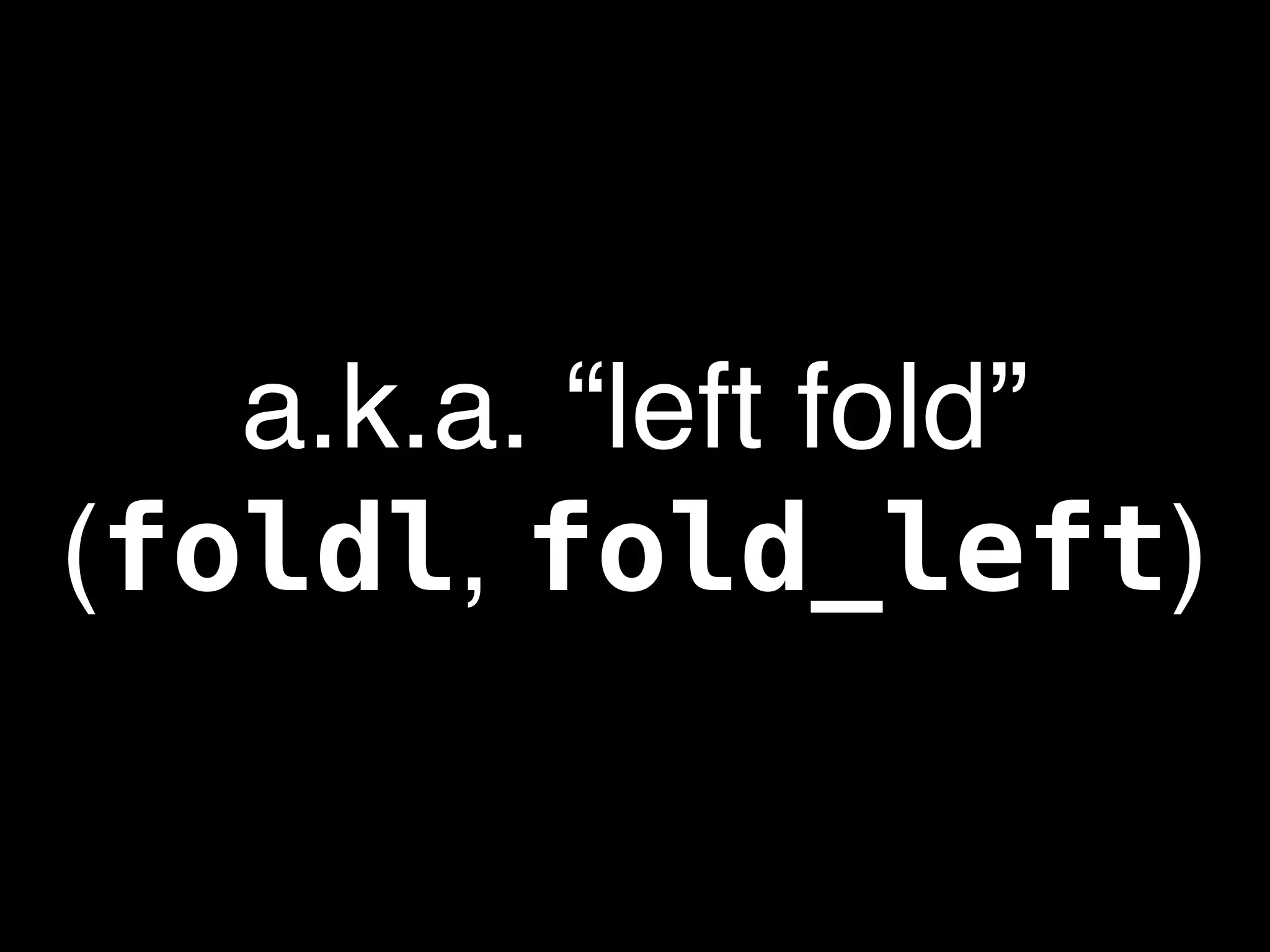
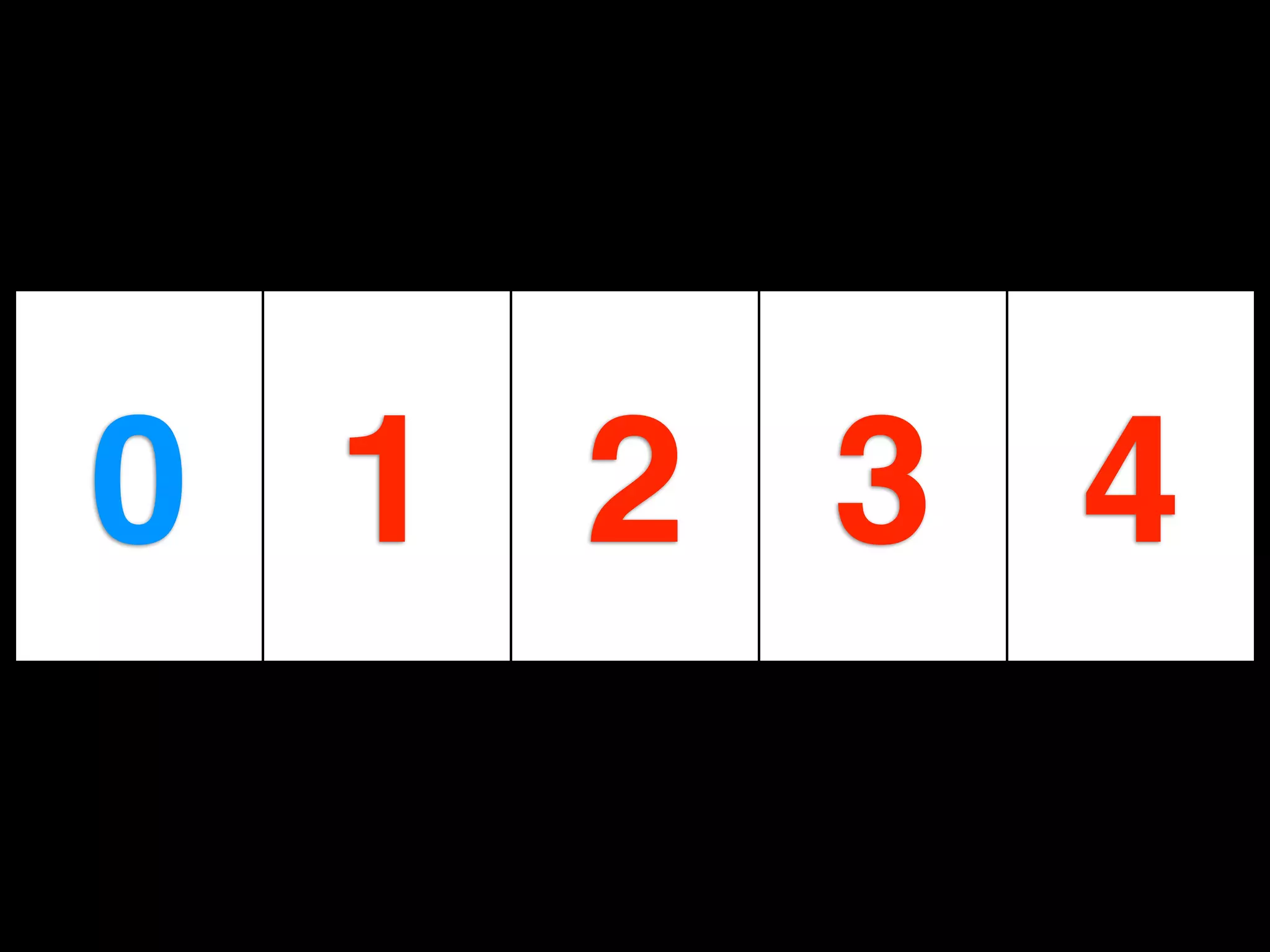
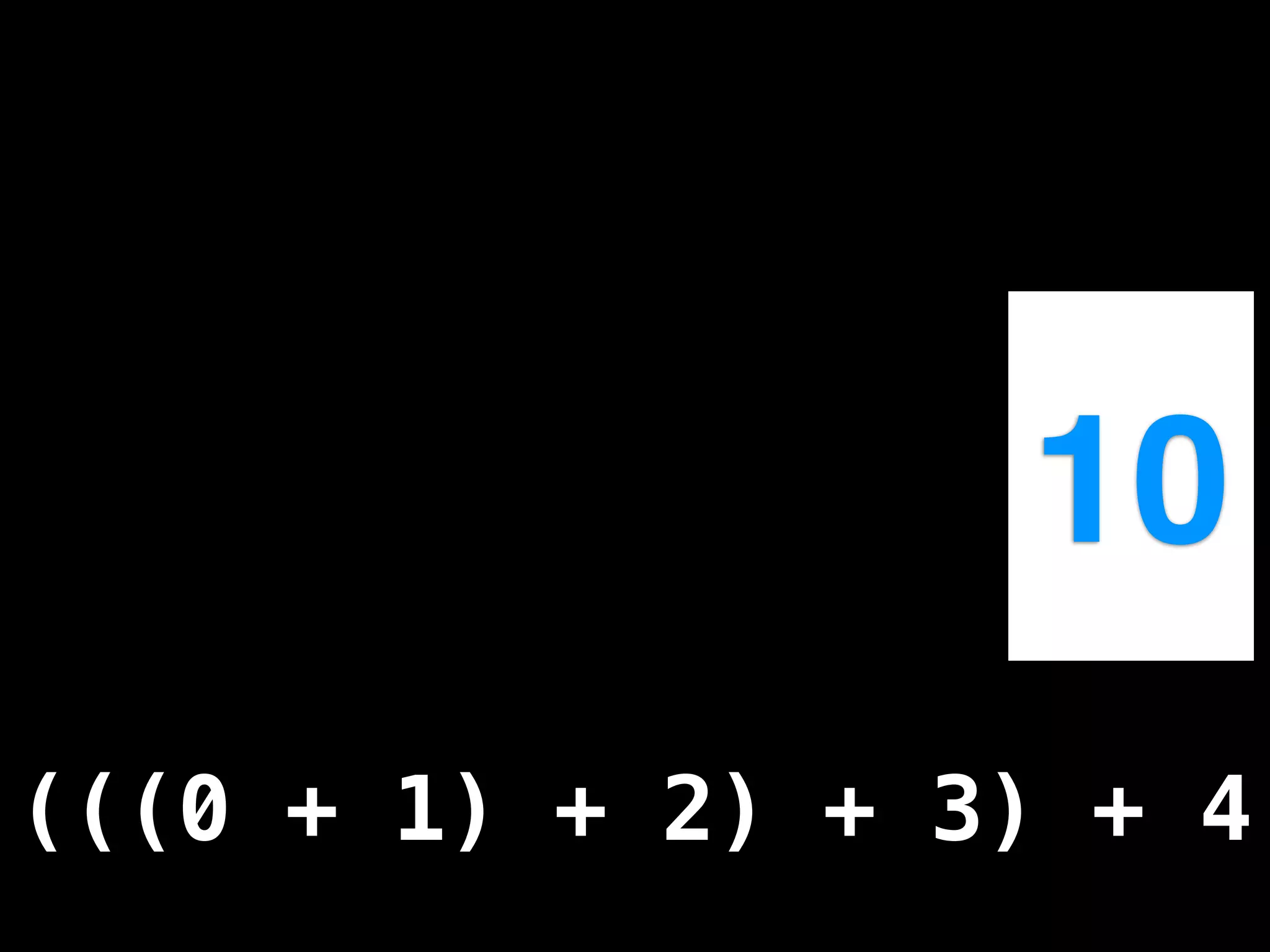
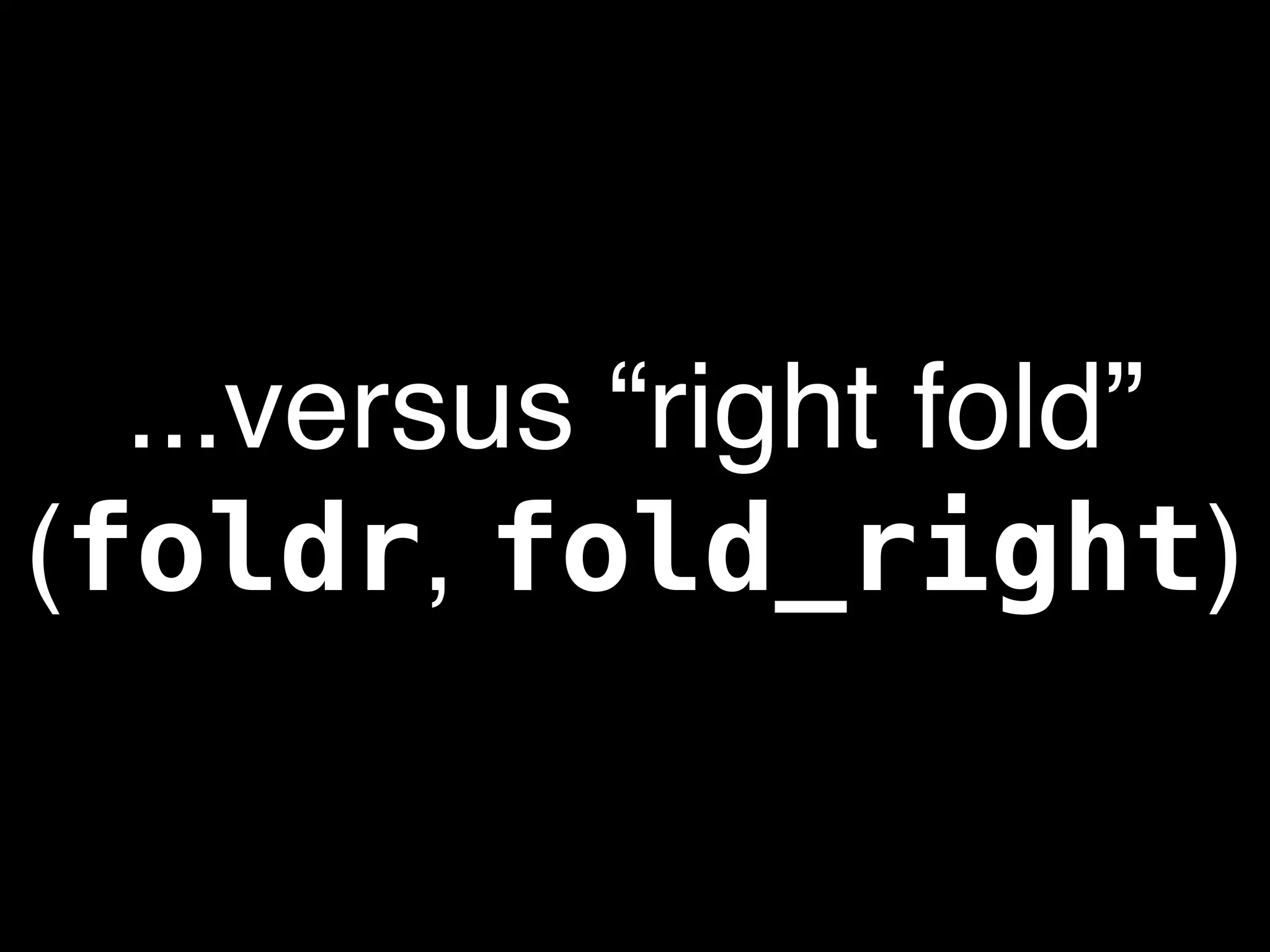
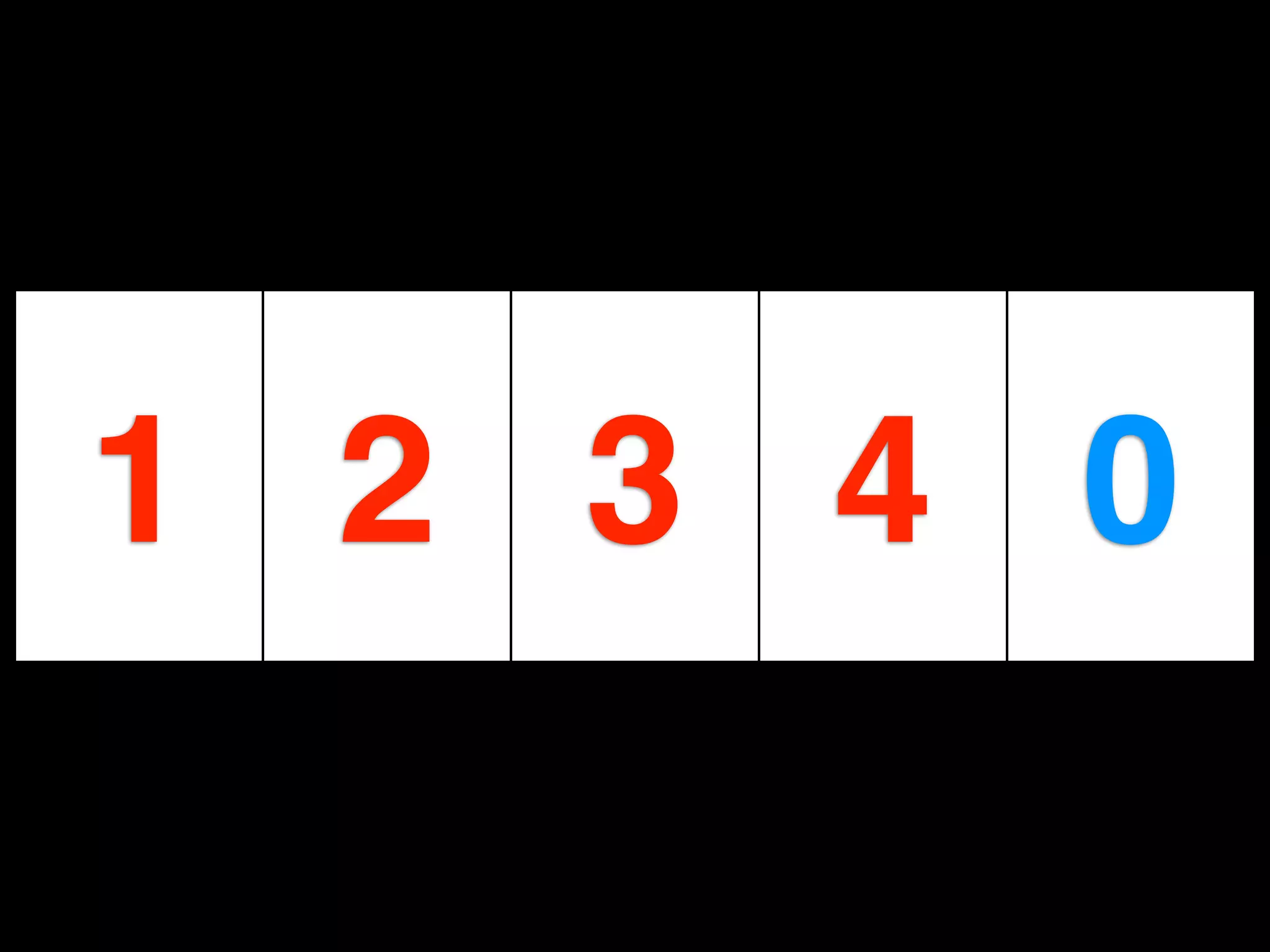
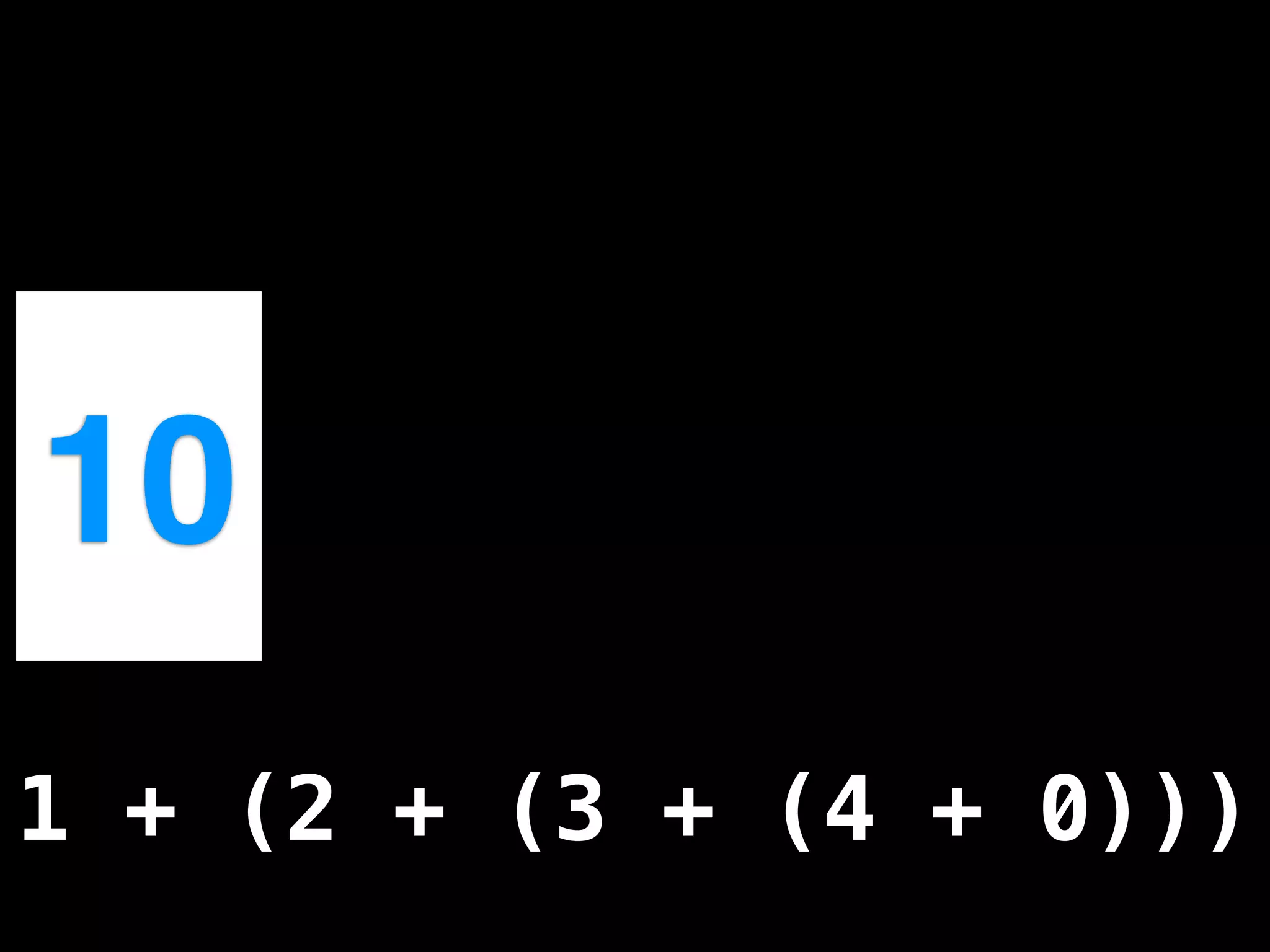
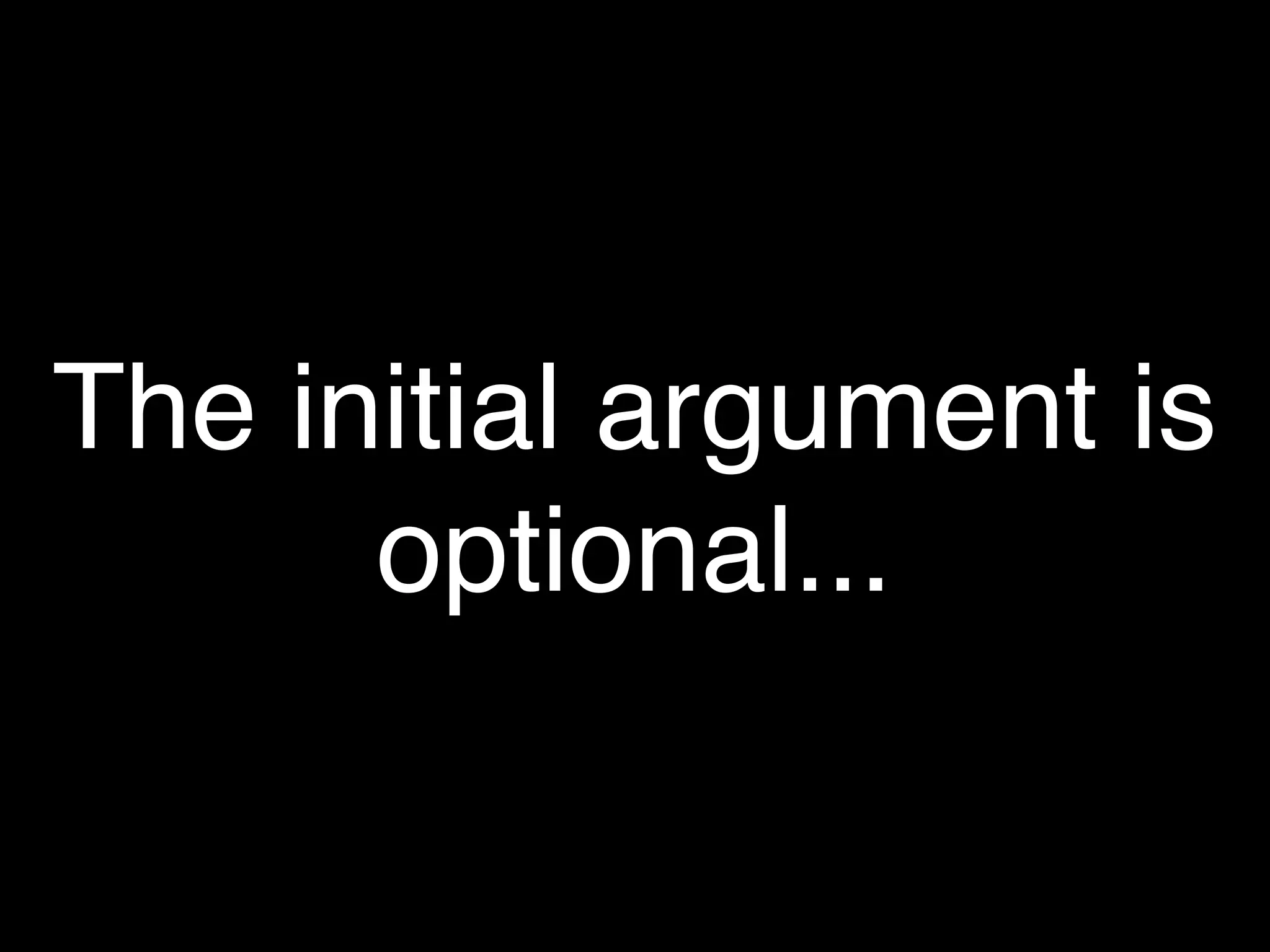
![[1, 2, 3, 4].
inject { |x,y| x+y }](https://image.slidesharecdn.com/thinking-functionally-in-ruby-091016082812-phpapp02/75/Thinking-Functionally-In-Ruby-86-2048.jpg)
![[2, 3, 4].4].
[1, 2, 3,
inject(1)|x,y| x+yx+y }
inject { { |x,y| }](https://image.slidesharecdn.com/thinking-functionally-in-ruby-091016082812-phpapp02/75/Thinking-Functionally-In-Ruby-87-2048.jpg)
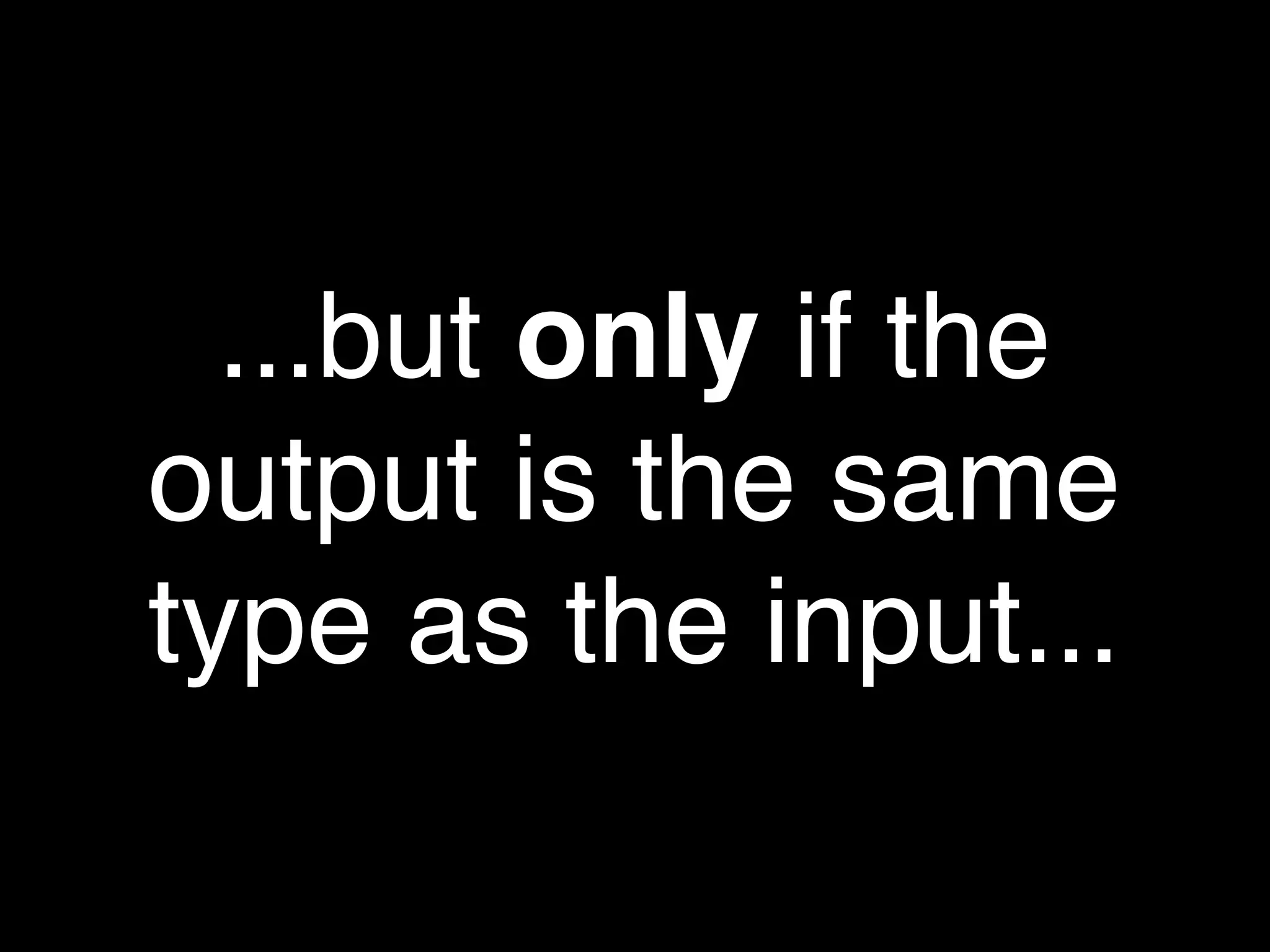
![>> ['El', 'rug'].
inject(0) { |l,s| l + s.length }
=> 5
>> ['El', 'rug'].
inject { |l,s| l + s.length }
TypeError: can't convert Fixnum into String
from (irb):1:in `+'
from (irb):1
from (irb):1:in `inject'
from (irb):1:in `each'
from (irb):1:in `inject'
from (irb):1](https://image.slidesharecdn.com/thinking-functionally-in-ruby-091016082812-phpapp02/75/Thinking-Functionally-In-Ruby-89-2048.jpg)
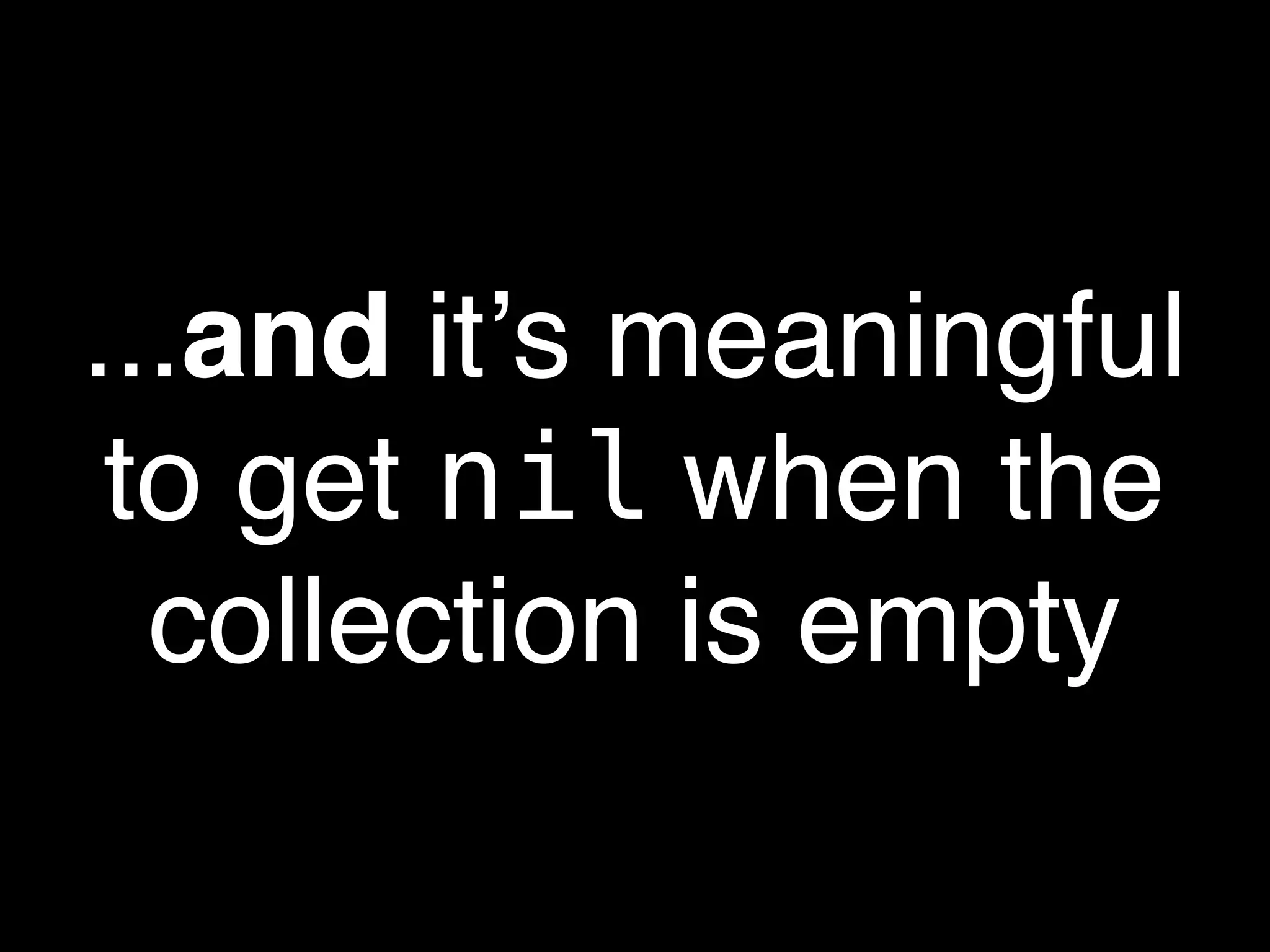
![>> [].inject { |x,y| x+y }
=> nil
>> [].inject(0) { |x,y| x+y }
=> 0
>> [].inject(1) { |x,y| x*y }
=> 1](https://image.slidesharecdn.com/thinking-functionally-in-ruby-091016082812-phpapp02/75/Thinking-Functionally-In-Ruby-91-2048.jpg)

![[1, 2, 3, 4].
map { |x| x * 3 }.
inject(0) { |x| x+y }](https://image.slidesharecdn.com/thinking-functionally-in-ruby-091016082812-phpapp02/75/Thinking-Functionally-In-Ruby-93-2048.jpg)
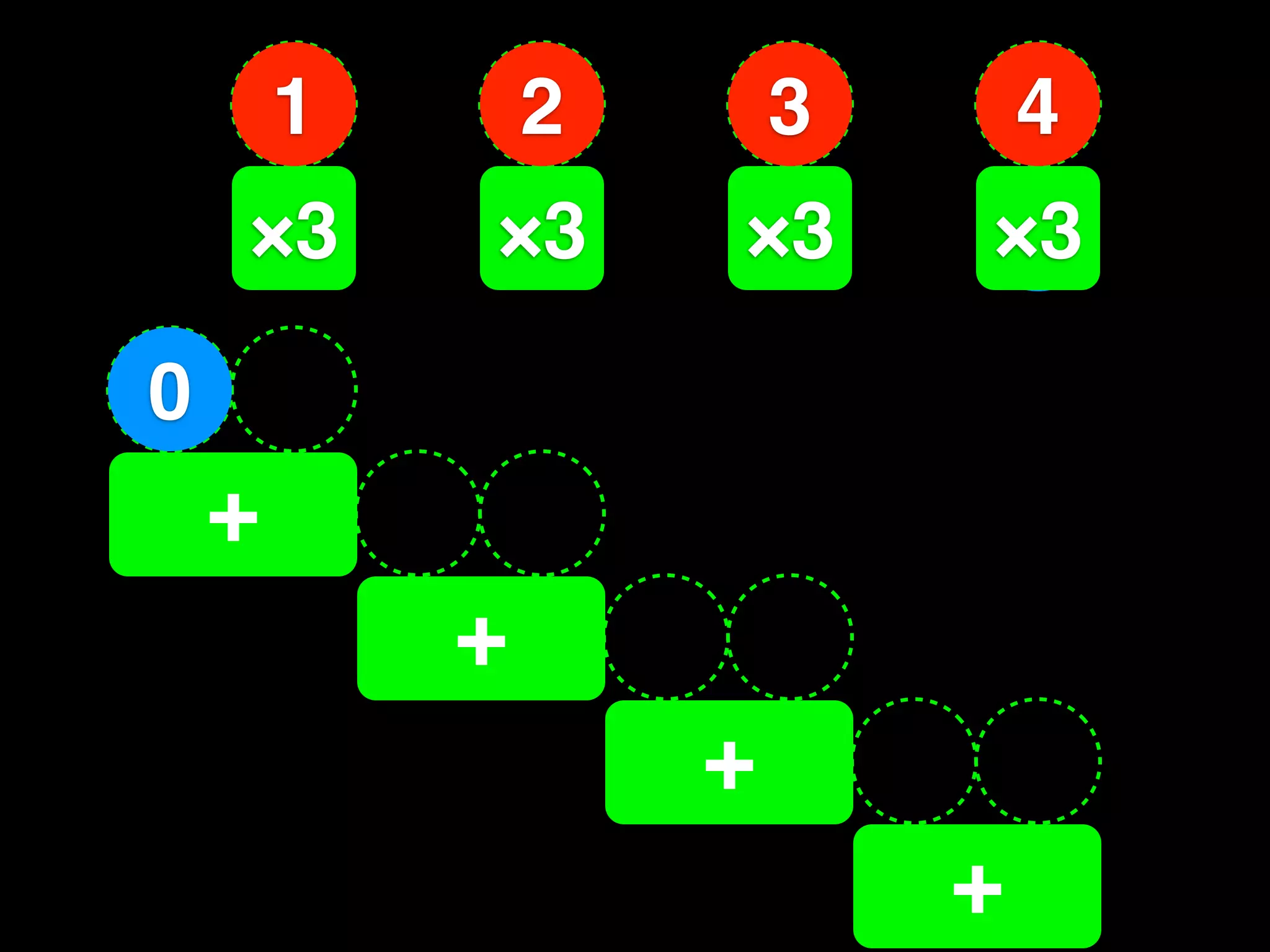
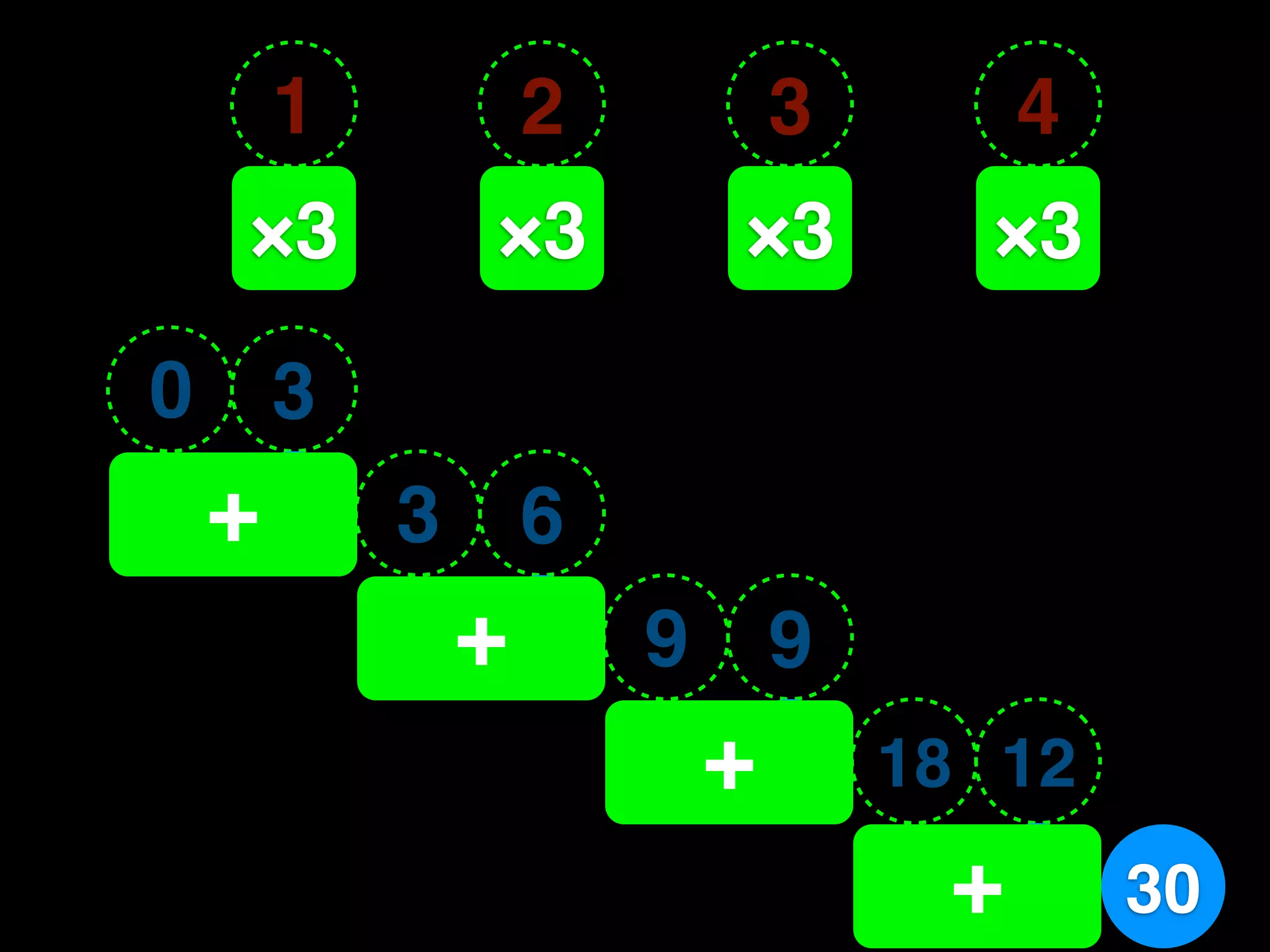


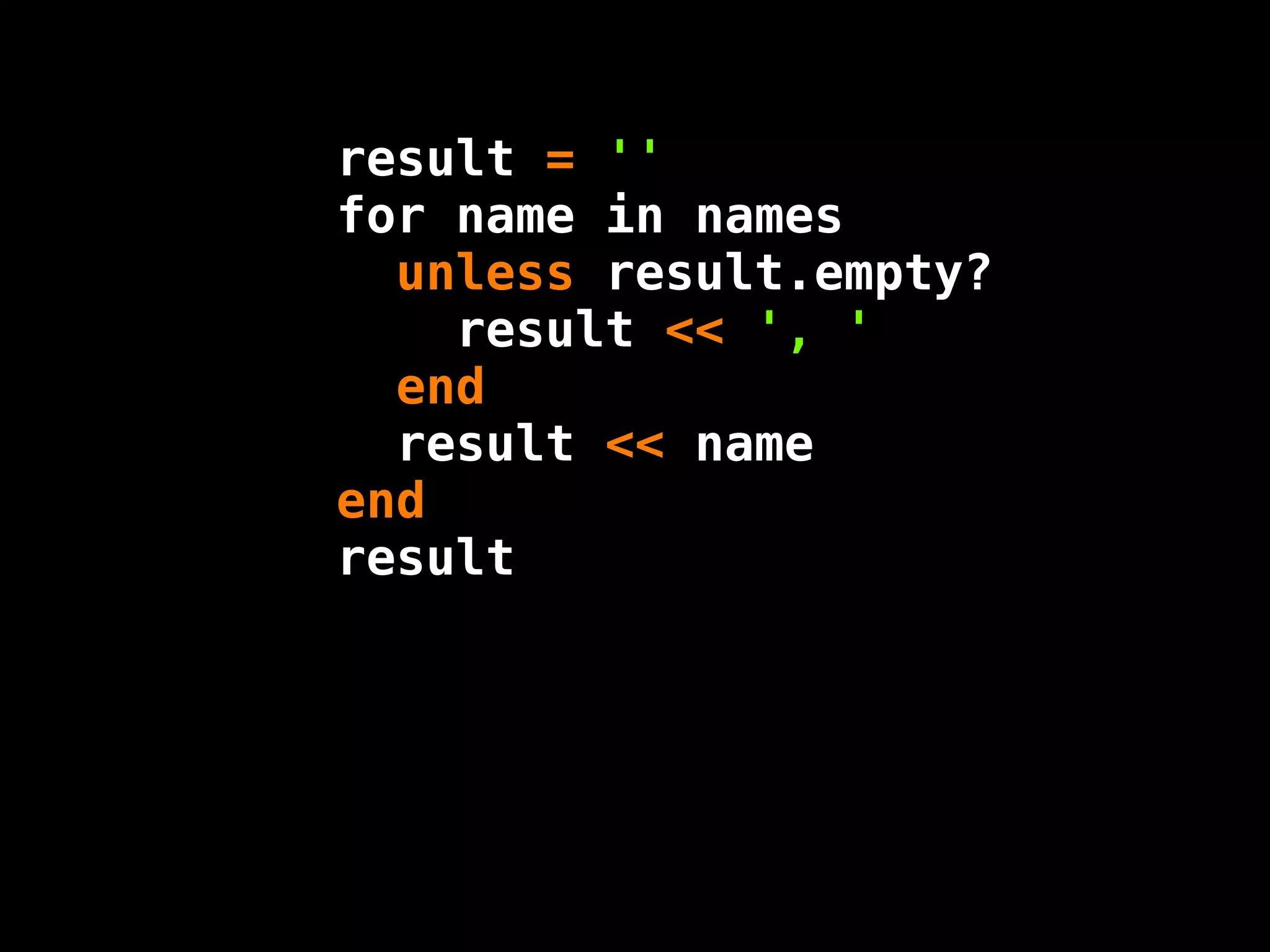
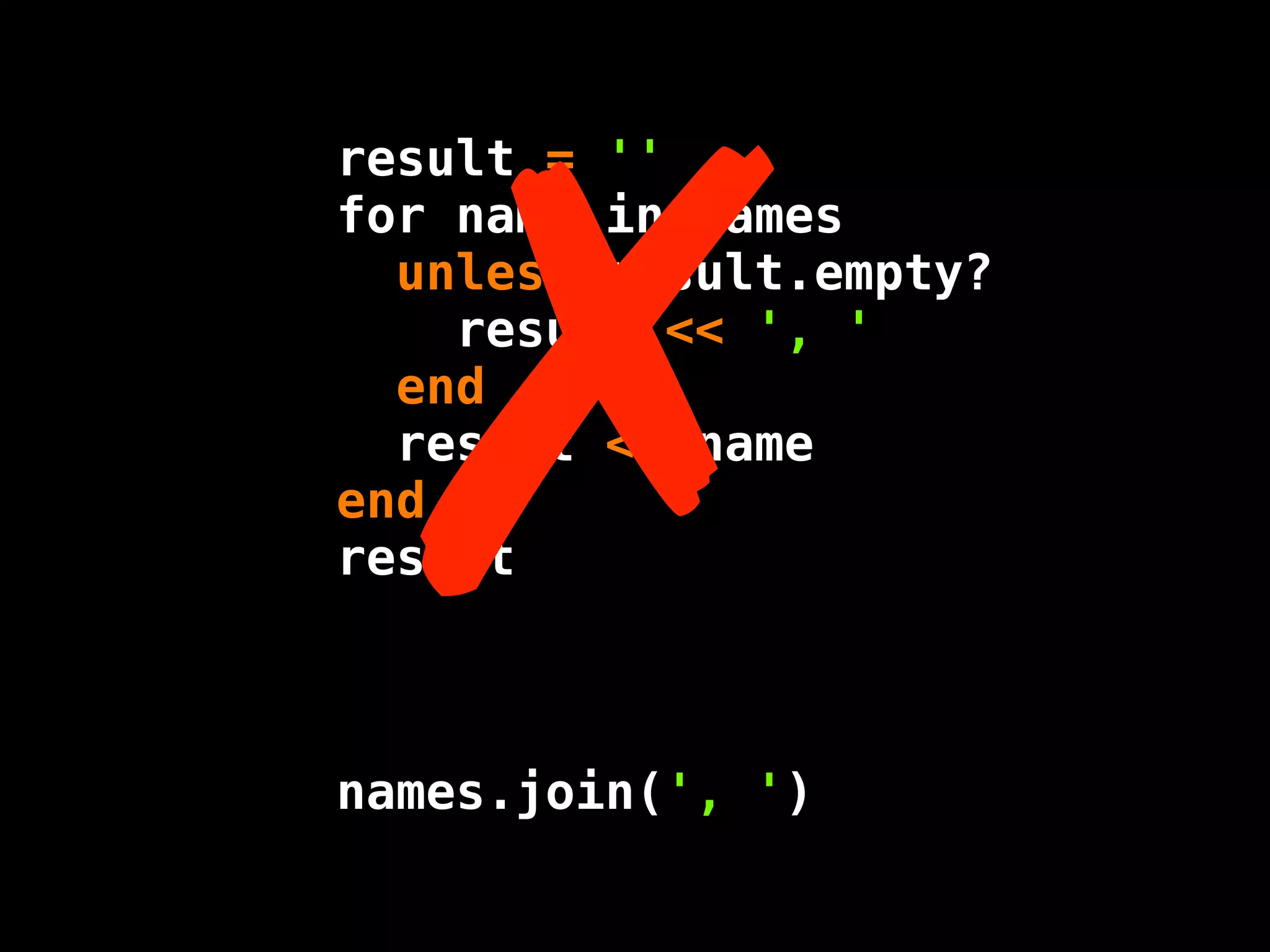
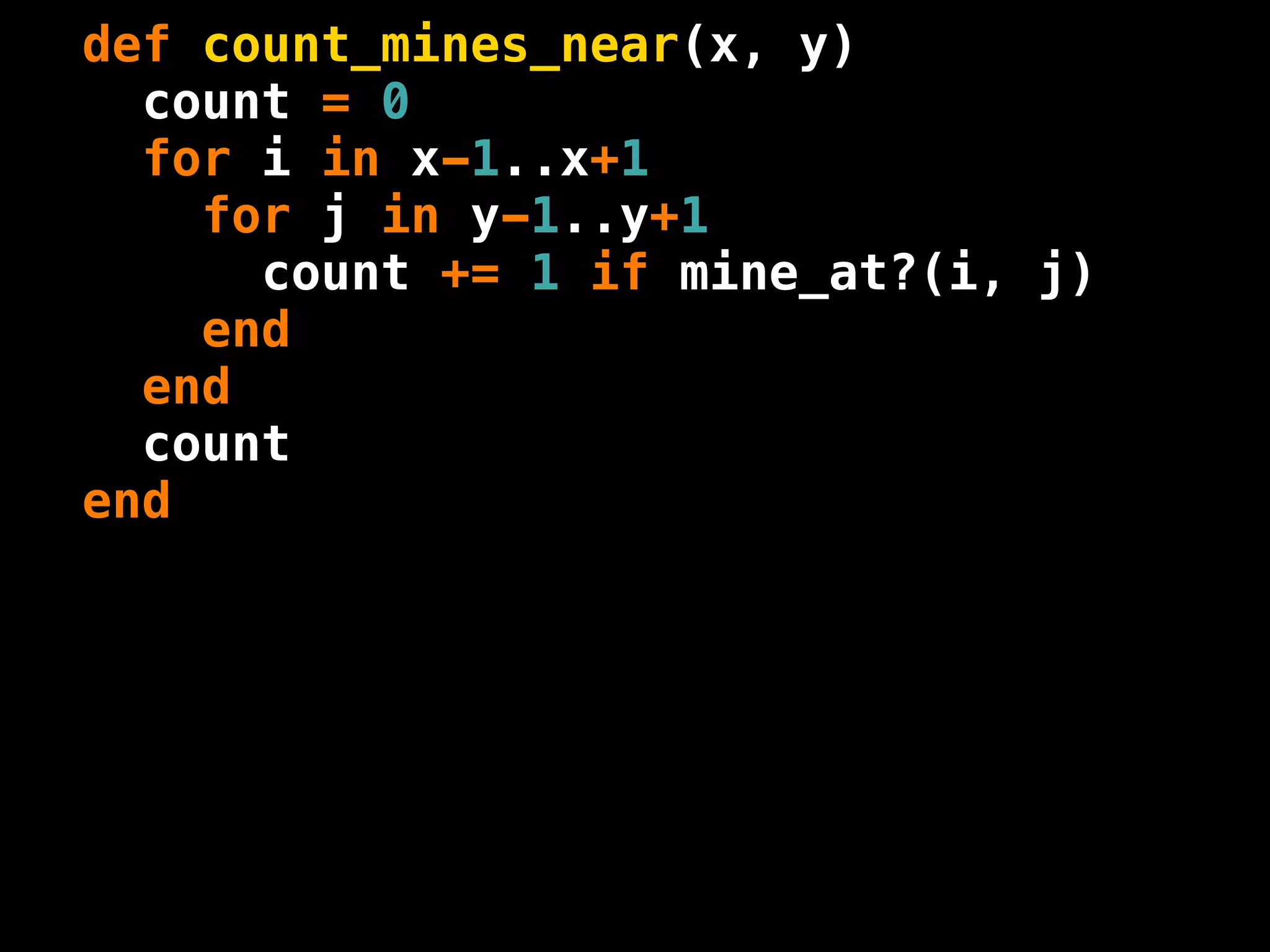
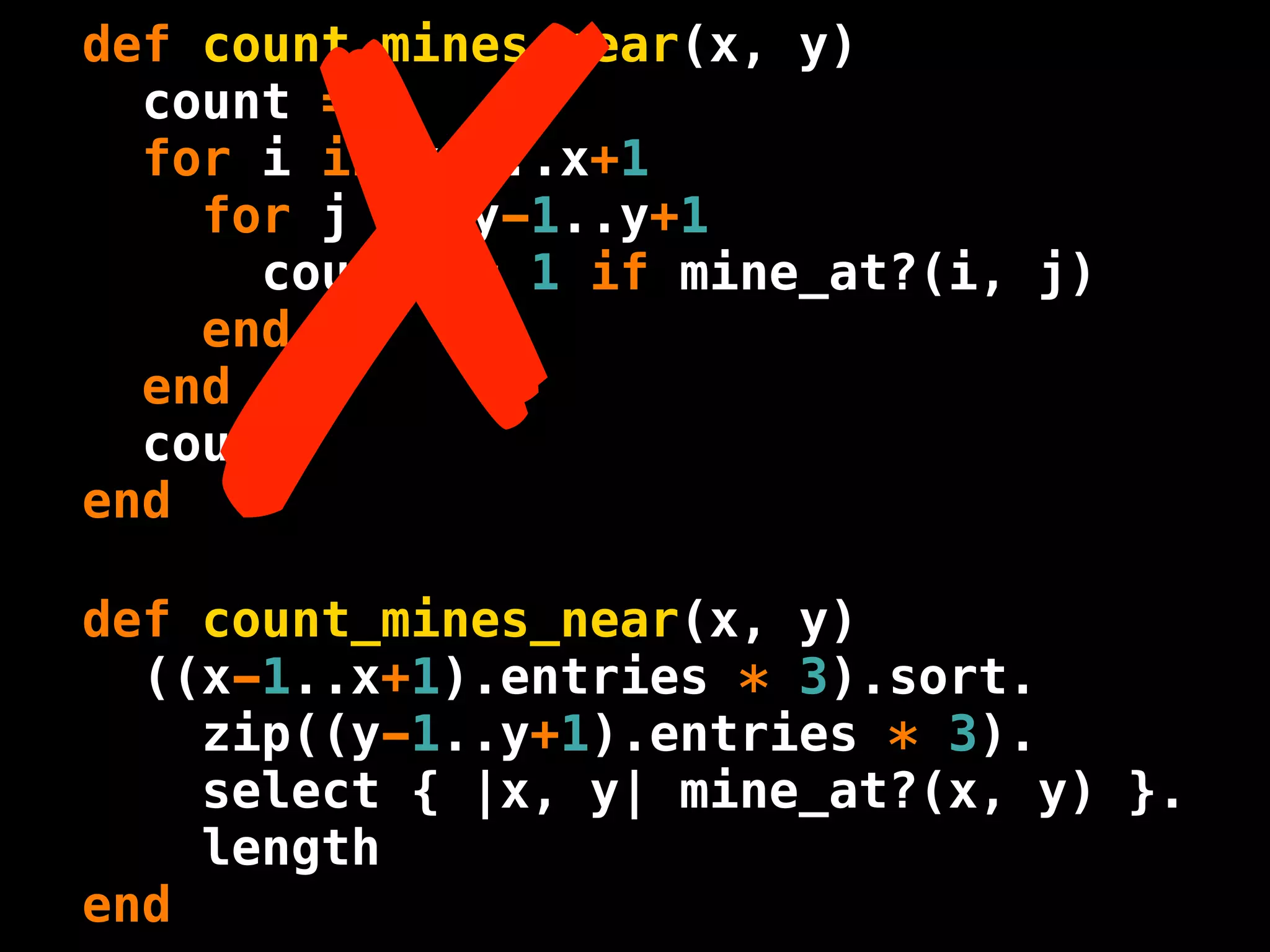
![[1, 2, 3, 1, 2, 3, 1, 2, 3].sort =
[1, 1, 1, 2, 2, 2, 3, 3, 3]
def count_mines_near(x, y) # = (2, 8)
((x-1..x+1).entries * 3).sort.
zip((y-1..y+1).entries * 3).
select { |x, y| mine_at?(x, y) }.
length
end](https://image.slidesharecdn.com/thinking-functionally-in-ruby-091016082812-phpapp02/75/Thinking-Functionally-In-Ruby-102-2048.jpg)
![[1, 2, 3, 1, 2, 3, 1, 2, 3].sort =
[1, 1, 1, 2, 2, 2, 3, 3, 3].zip(
[7, 8, 9, 7, 8, 9, 7, 8, 9]) =
[[1, 7], [1, 8], [1, 9],
[2, 7], [2, 8], [2, 9],
[3, 7], [3, 8], [3, 9]]
def count_mines_near(x, y) # = (2, 8)
((x-1..x+1).entries * 3).sort.
zip((y-1..y+1).entries * 3).
select { |x, y| mine_at?(x, y) }.
length
end](https://image.slidesharecdn.com/thinking-functionally-in-ruby-091016082812-phpapp02/75/Thinking-Functionally-In-Ruby-103-2048.jpg)
![[1, 2, 3, 1, 2, 3, 1, 2, 3].sort =
[1, 1, 1, 2, 2, 2, 3, 3, 3].zip(
[7, 8, 9, 7, 8, 9, 7, 8, 9]) =
[[1, 7], [1, 8], [1, 9],
[2, 7], [2, 8], [2, 9],
[3, 7], [3, 8], [3, 9]].select {…} =
[[1, 8], [3, 7]].length = 2
def count_mines_near(x, y) # = (2, 8)
((x-1..x+1).entries * 3).sort.
zip((y-1..y+1).entries * 3).
select { |x, y| mine_at?(x, y) }.
length
end](https://image.slidesharecdn.com/thinking-functionally-in-ruby-091016082812-phpapp02/75/Thinking-Functionally-In-Ruby-104-2048.jpg)
![[ [1, 7], [1, 8], …, [1, 1007],
[2, 7], [2, 8], …, [2, 1007],
…, …, …,
[1000, 7], [1000, 8], …, [1000, 1007],
[1001, 7], [1000, 8], …, [1001, 1007]]
def count_mines_near(x, y)
((x-500..x+500).entries * 1001).sort.
zip((y-500..y+500).entries * 1001).
select { |x, y| mine_at?(x, y) }.
length
end](https://image.slidesharecdn.com/thinking-functionally-in-ruby-091016082812-phpapp02/75/Thinking-Functionally-In-Ruby-105-2048.jpg)
![[ [1, 7], [1, 8], …, [1, 1007],
[2, 7], [2, 8], …, [2, 1007],
…, …, …,
[1000, 7], [1000, 8], …, [1000, 1007],
[1001, 7], [1000, 8], …, [1001, 1007]]
173 96 121 78 237
705](https://image.slidesharecdn.com/thinking-functionally-in-ruby-091016082812-phpapp02/75/Thinking-Functionally-In-Ruby-106-2048.jpg)
